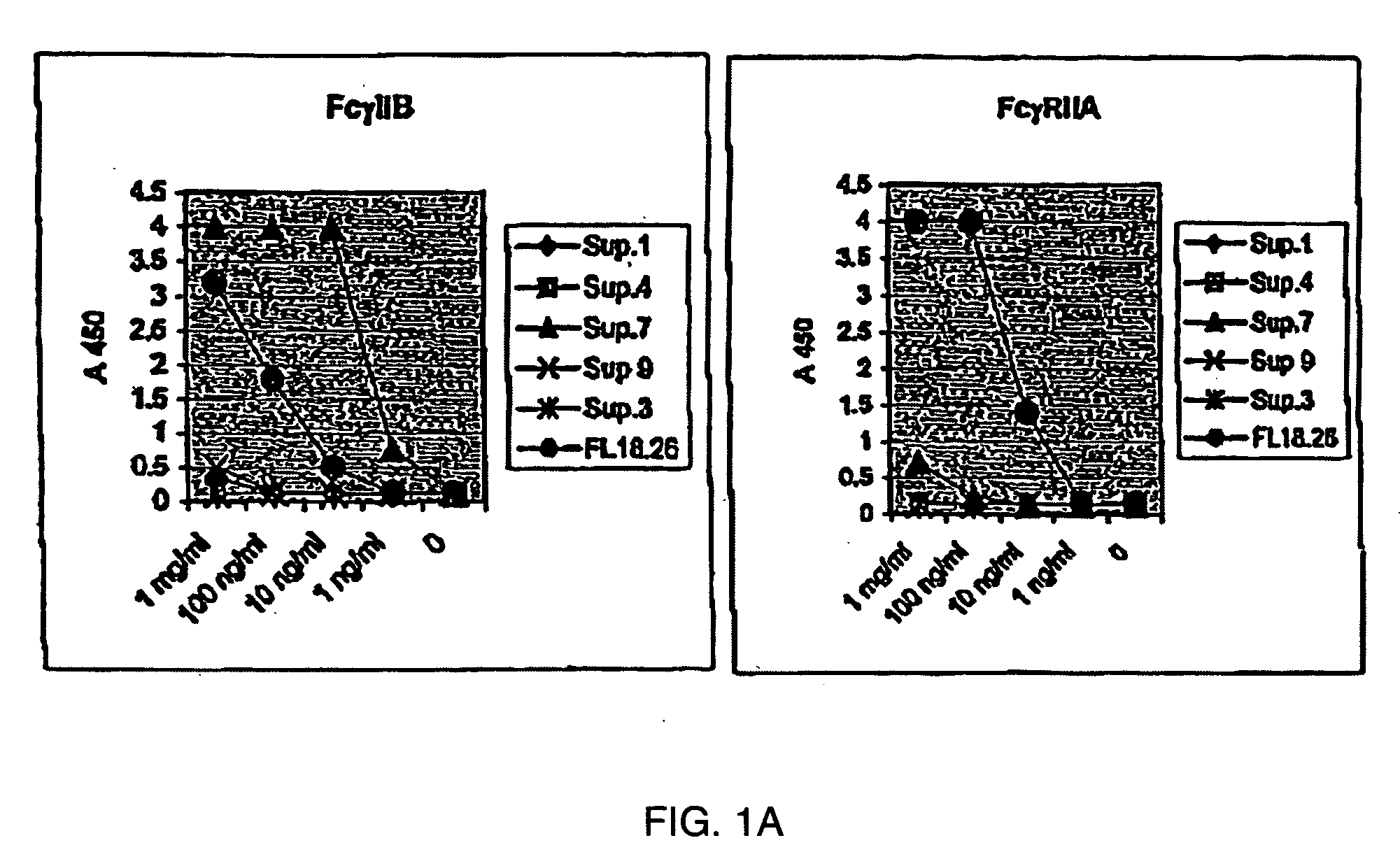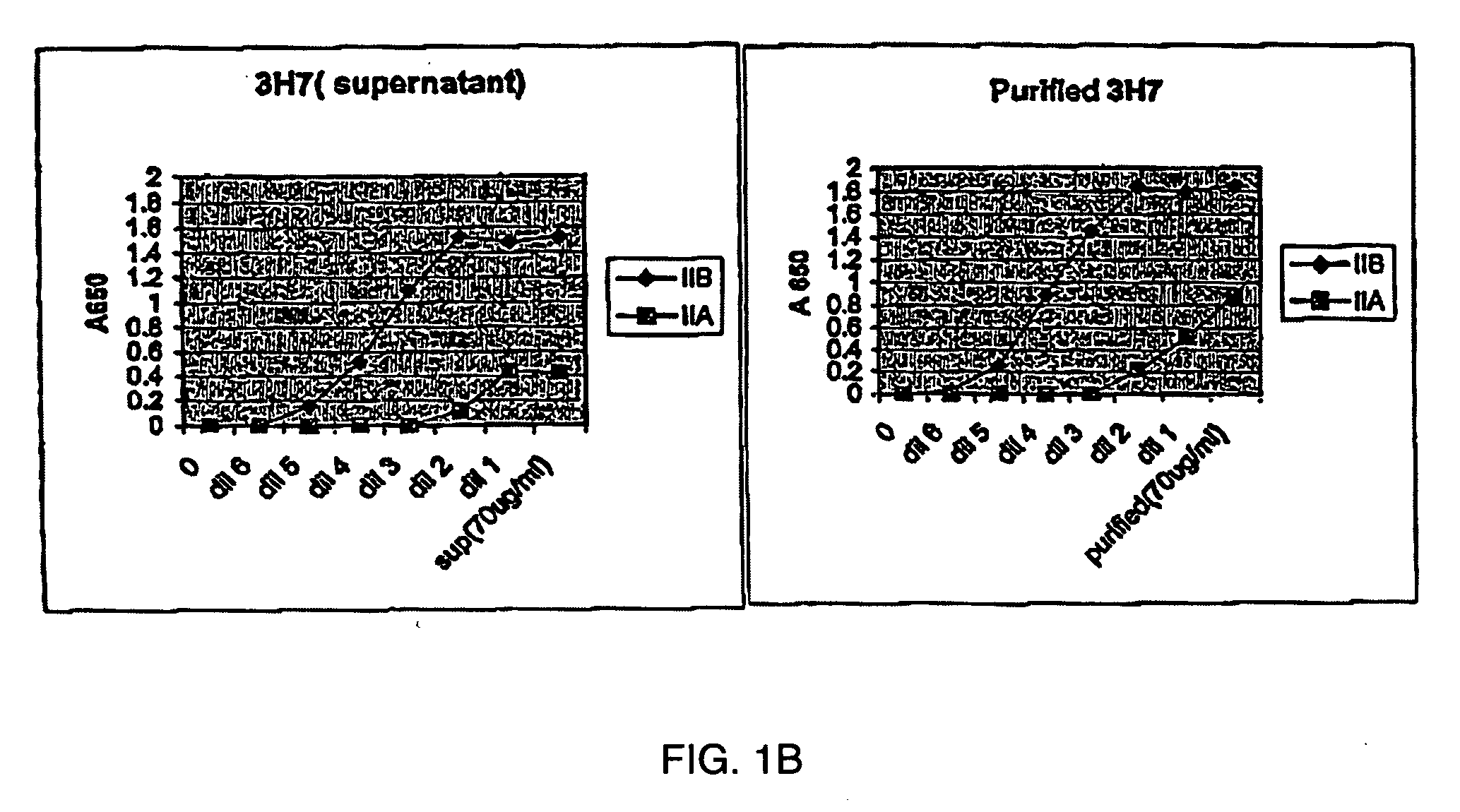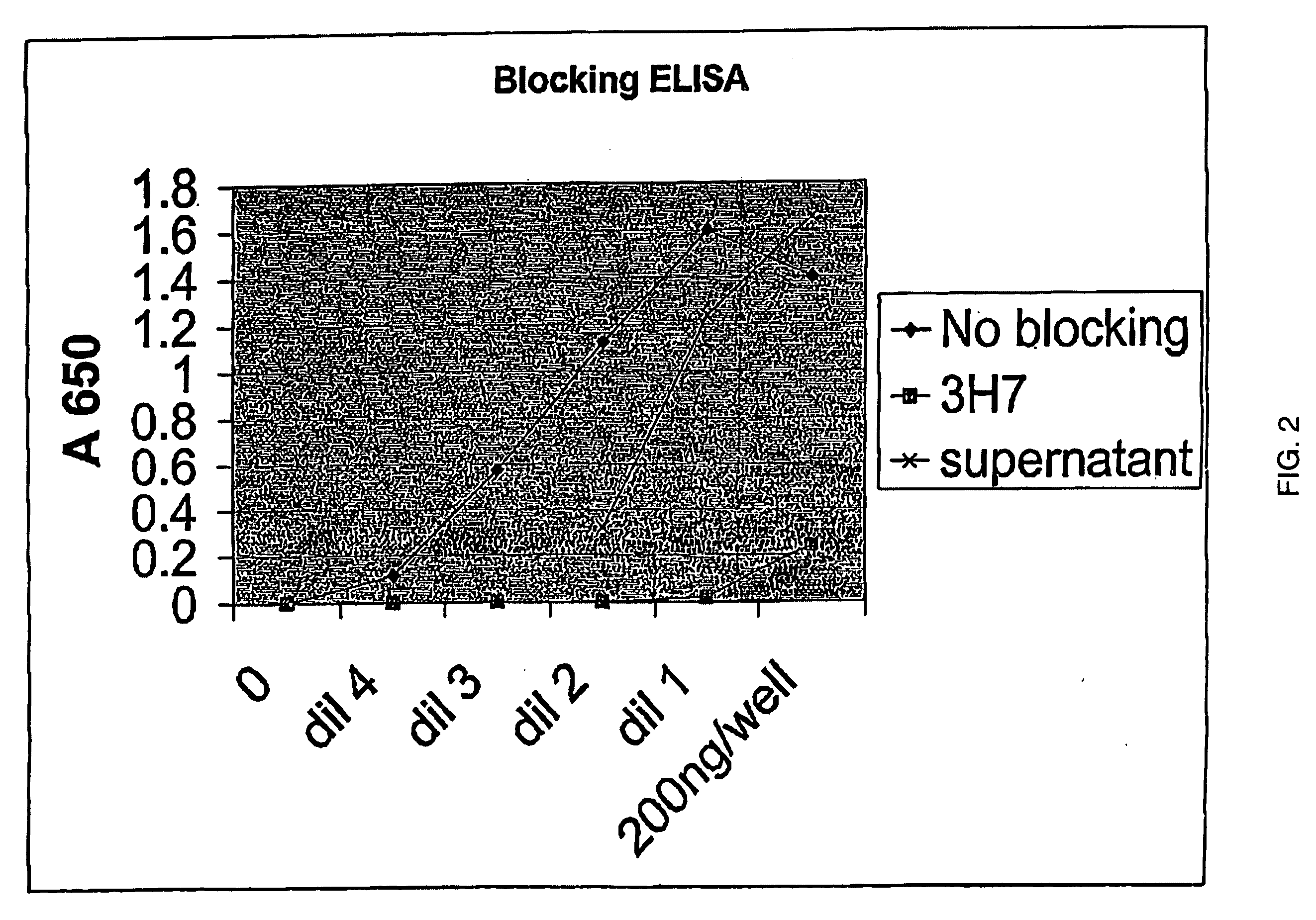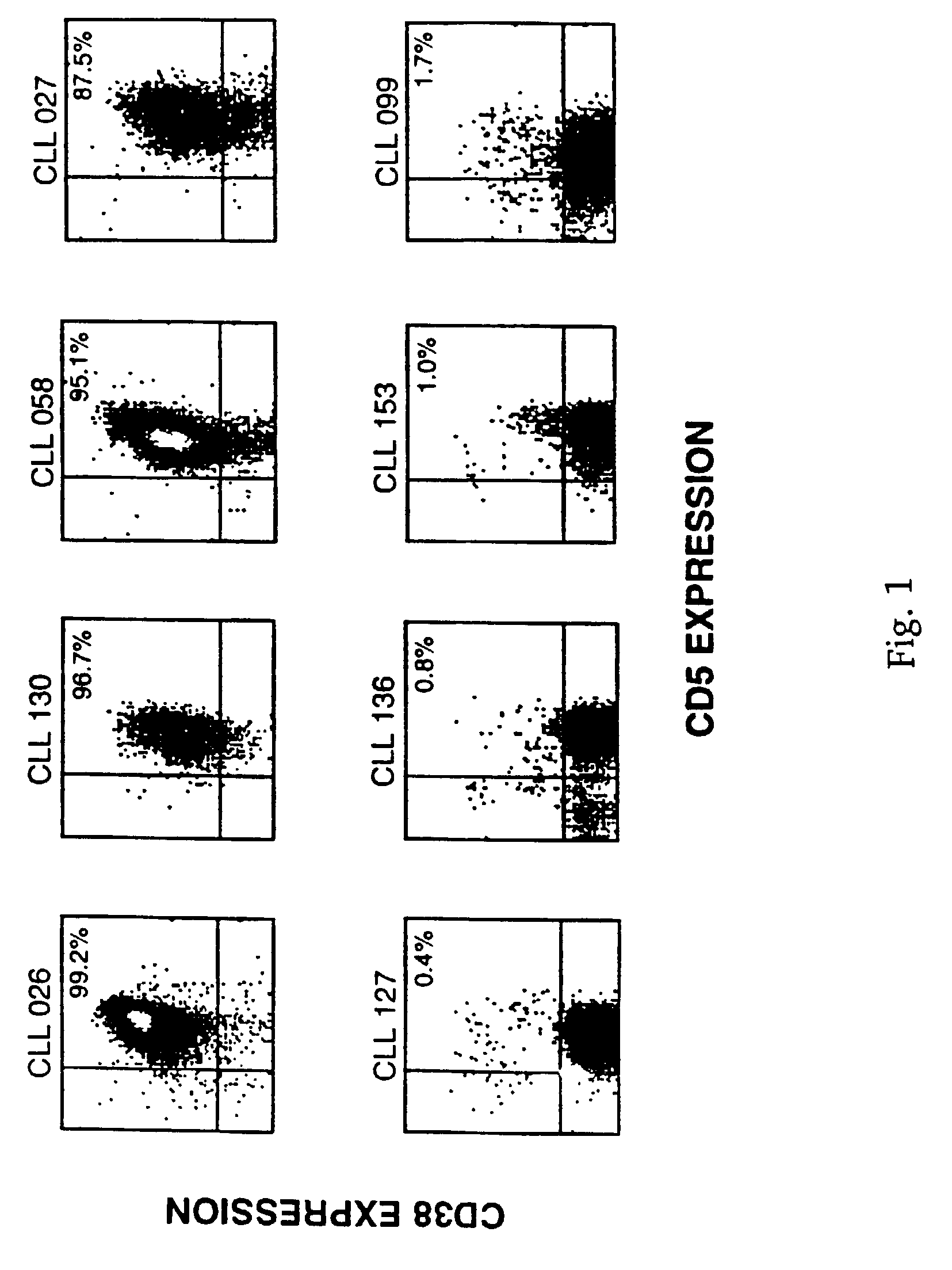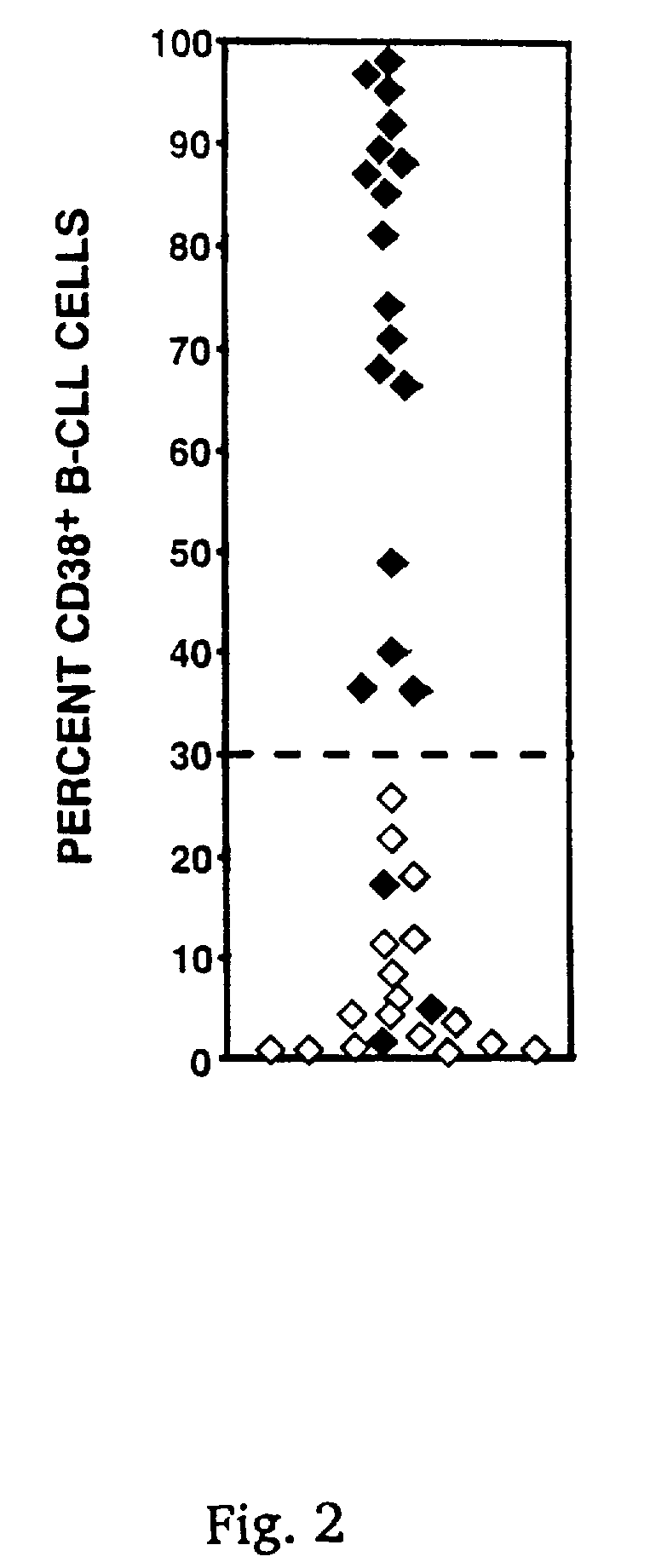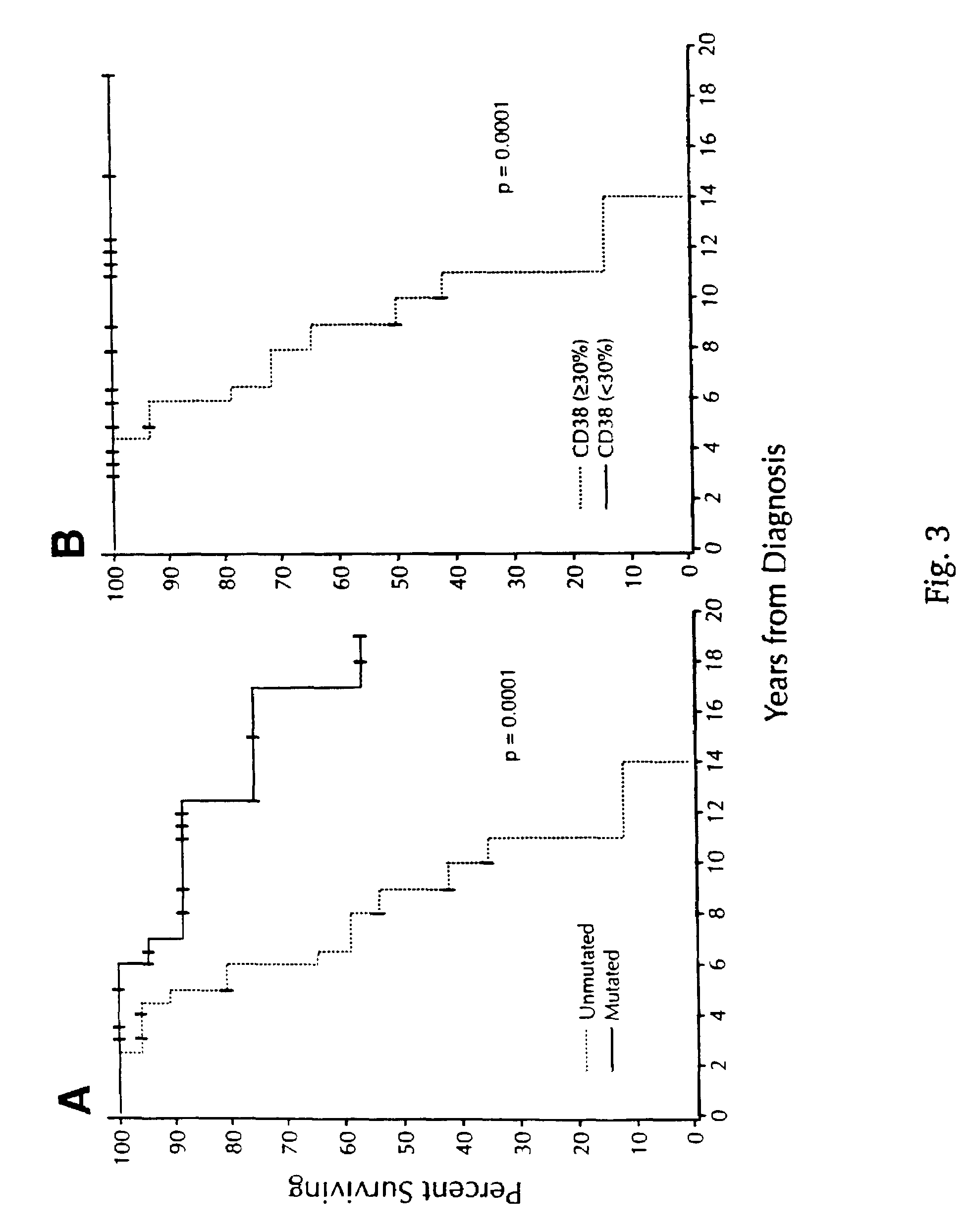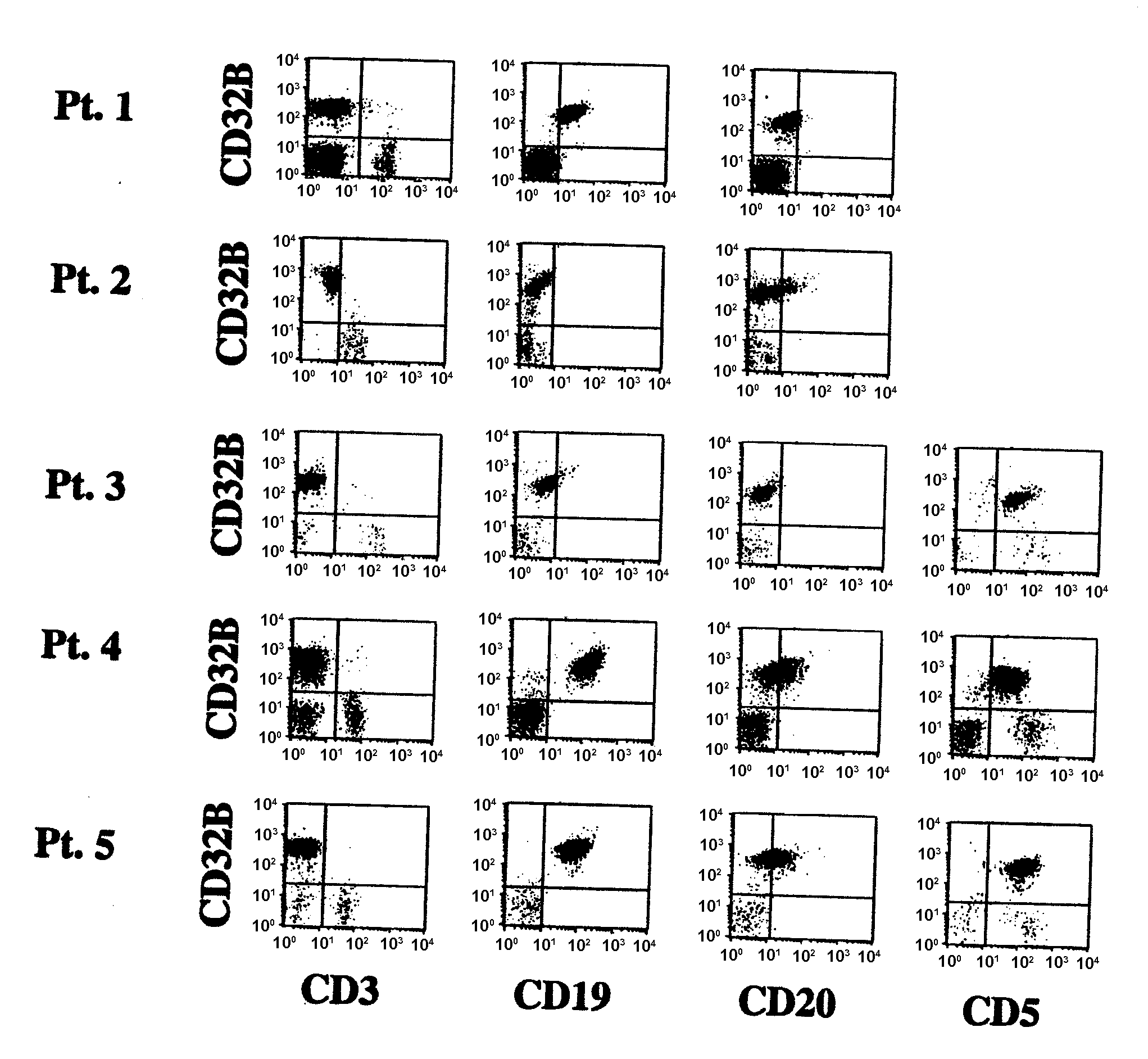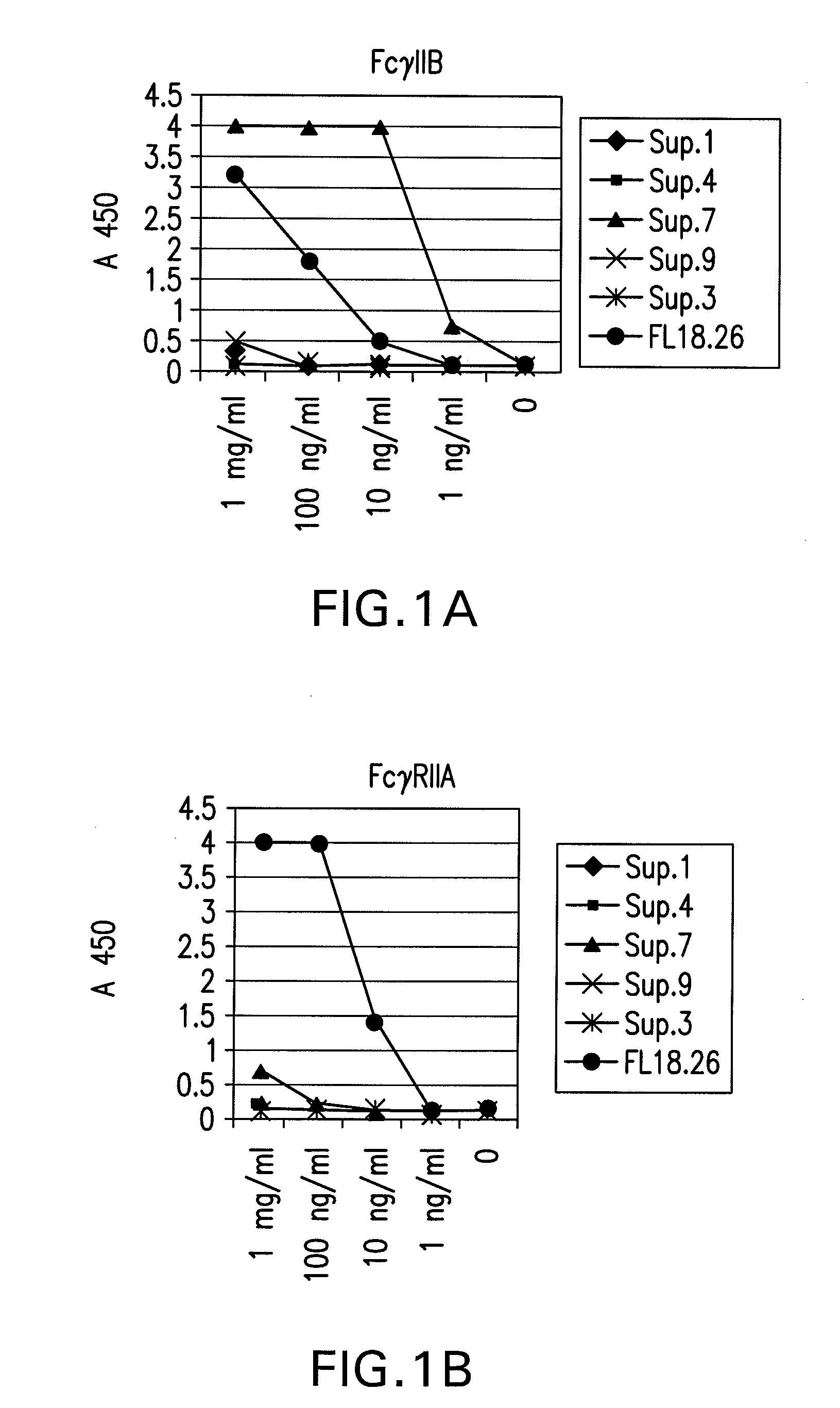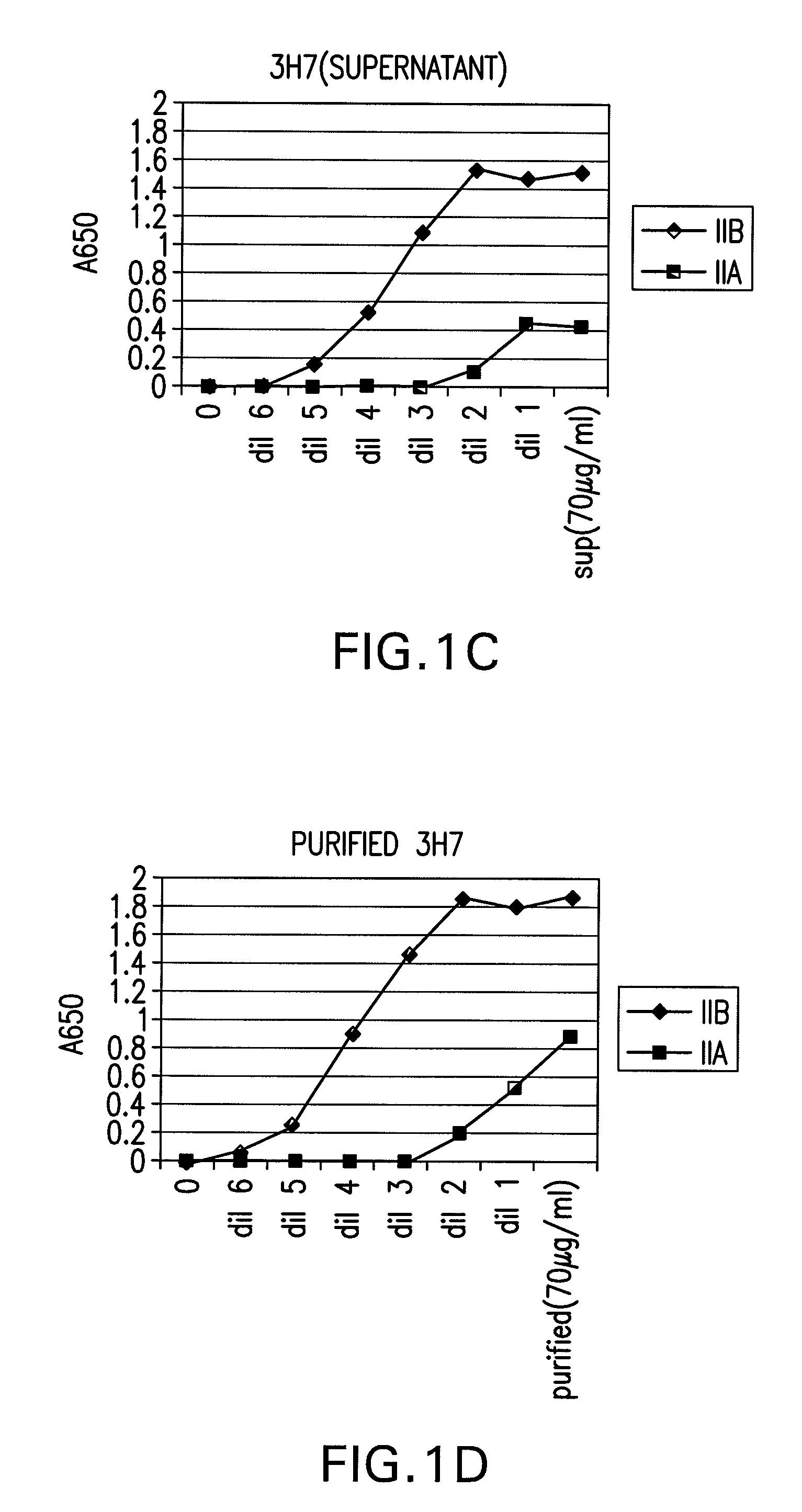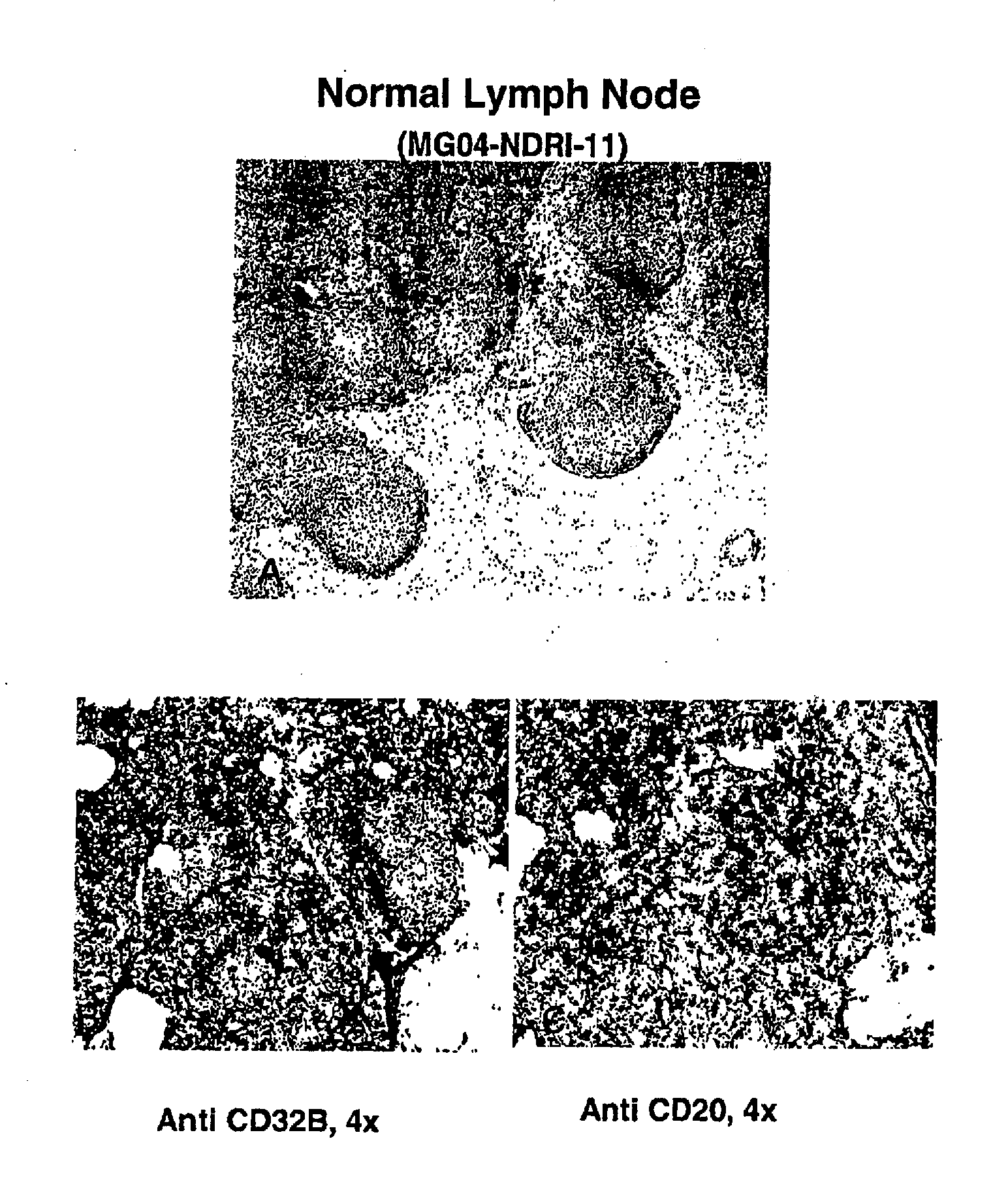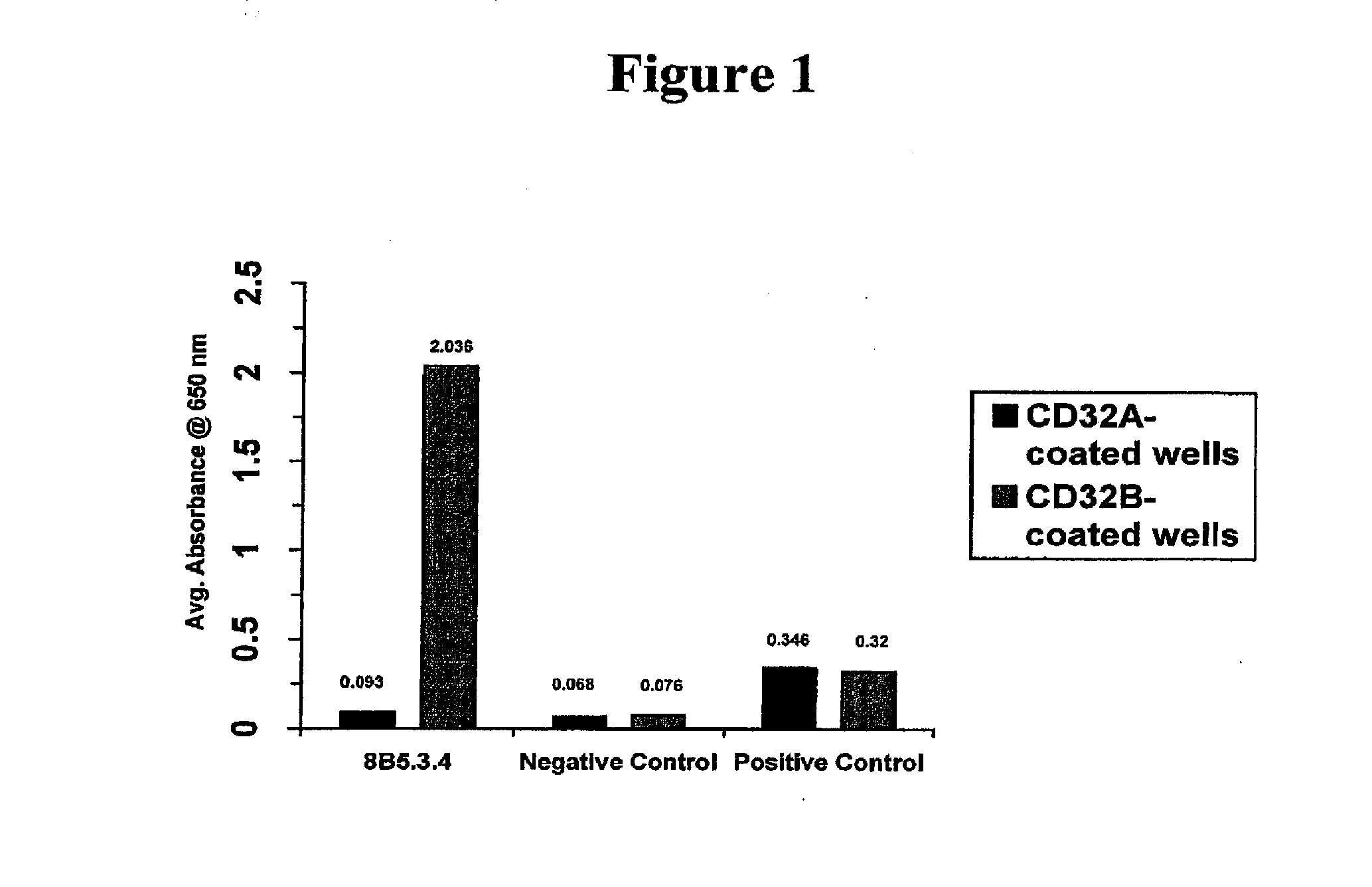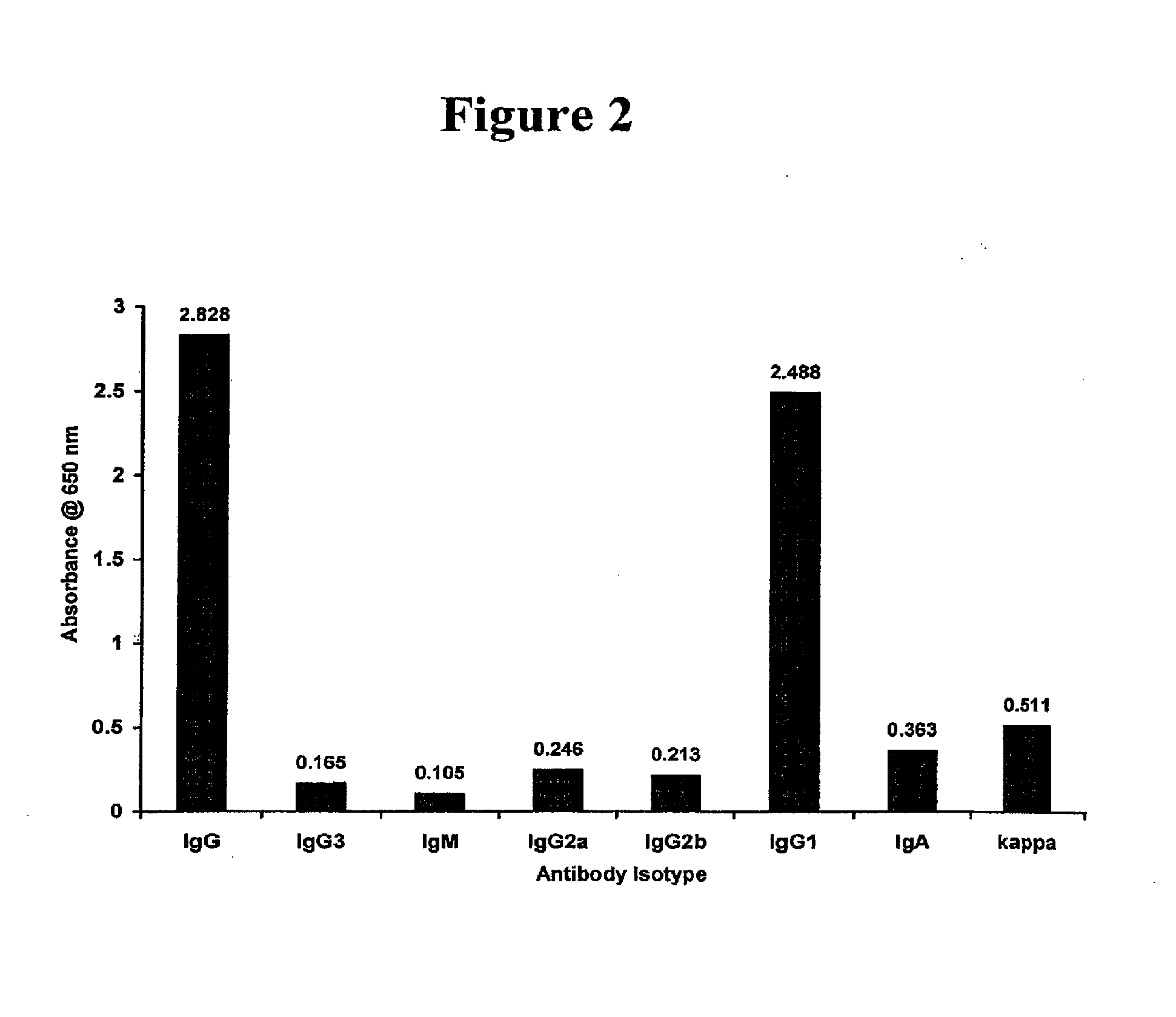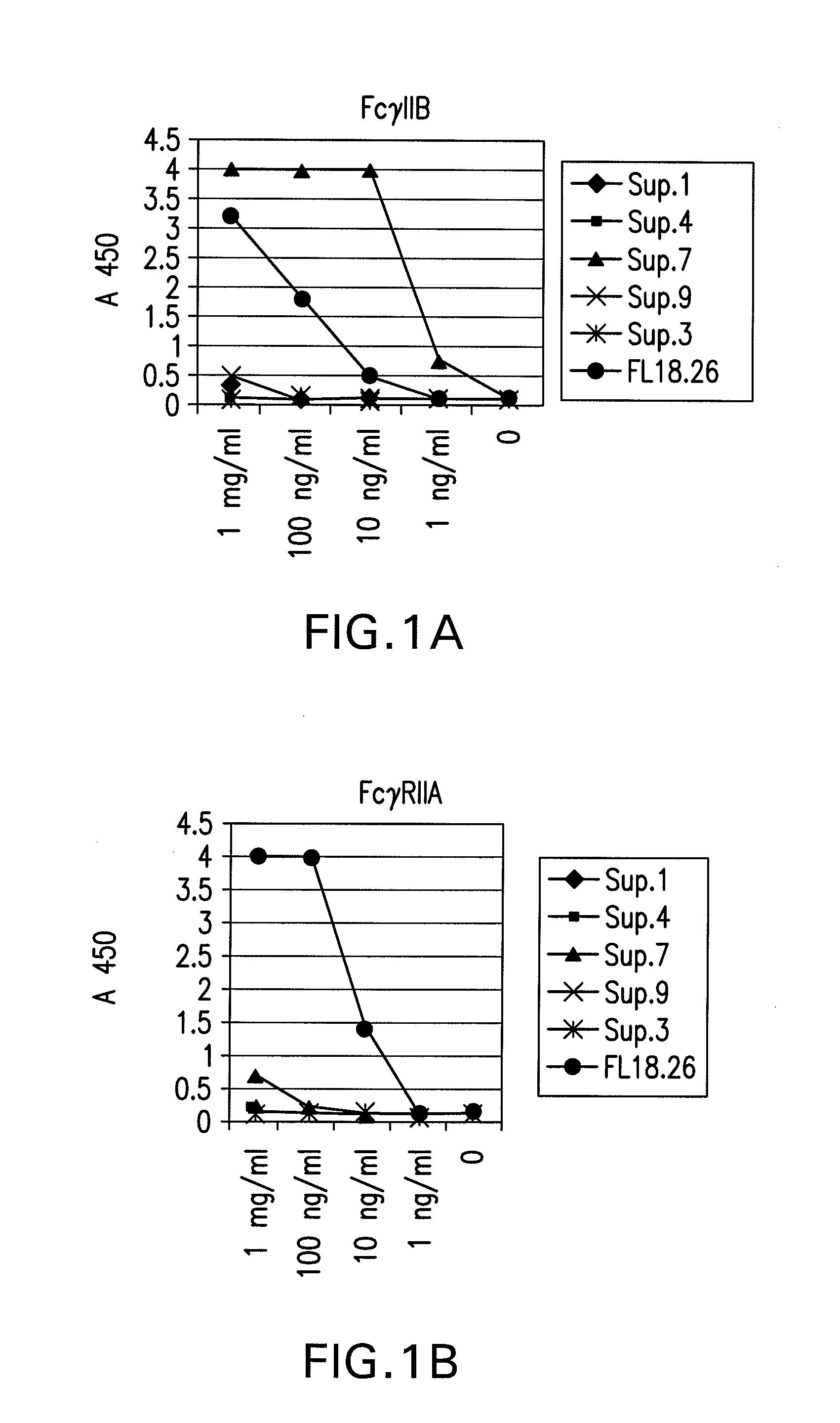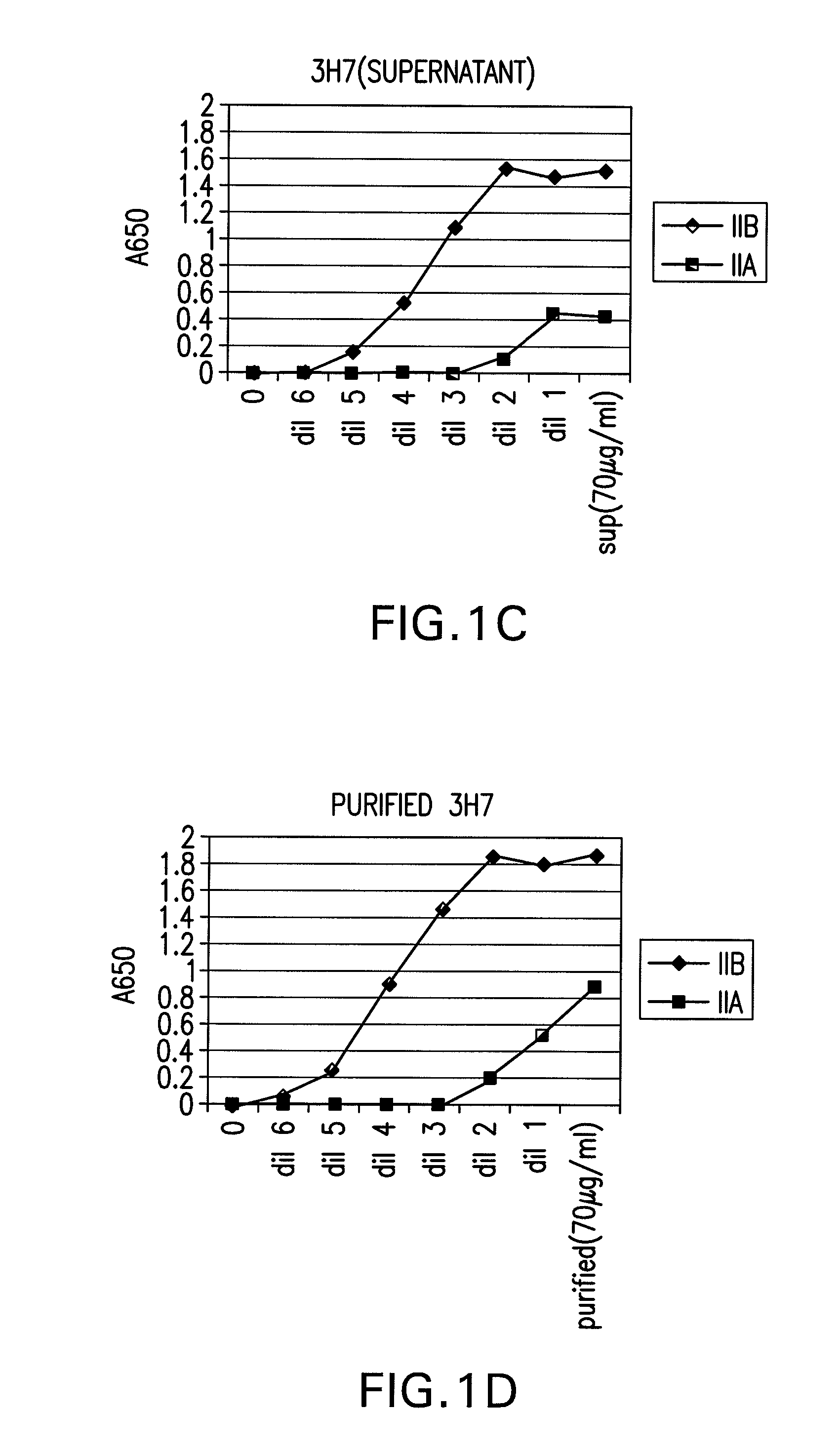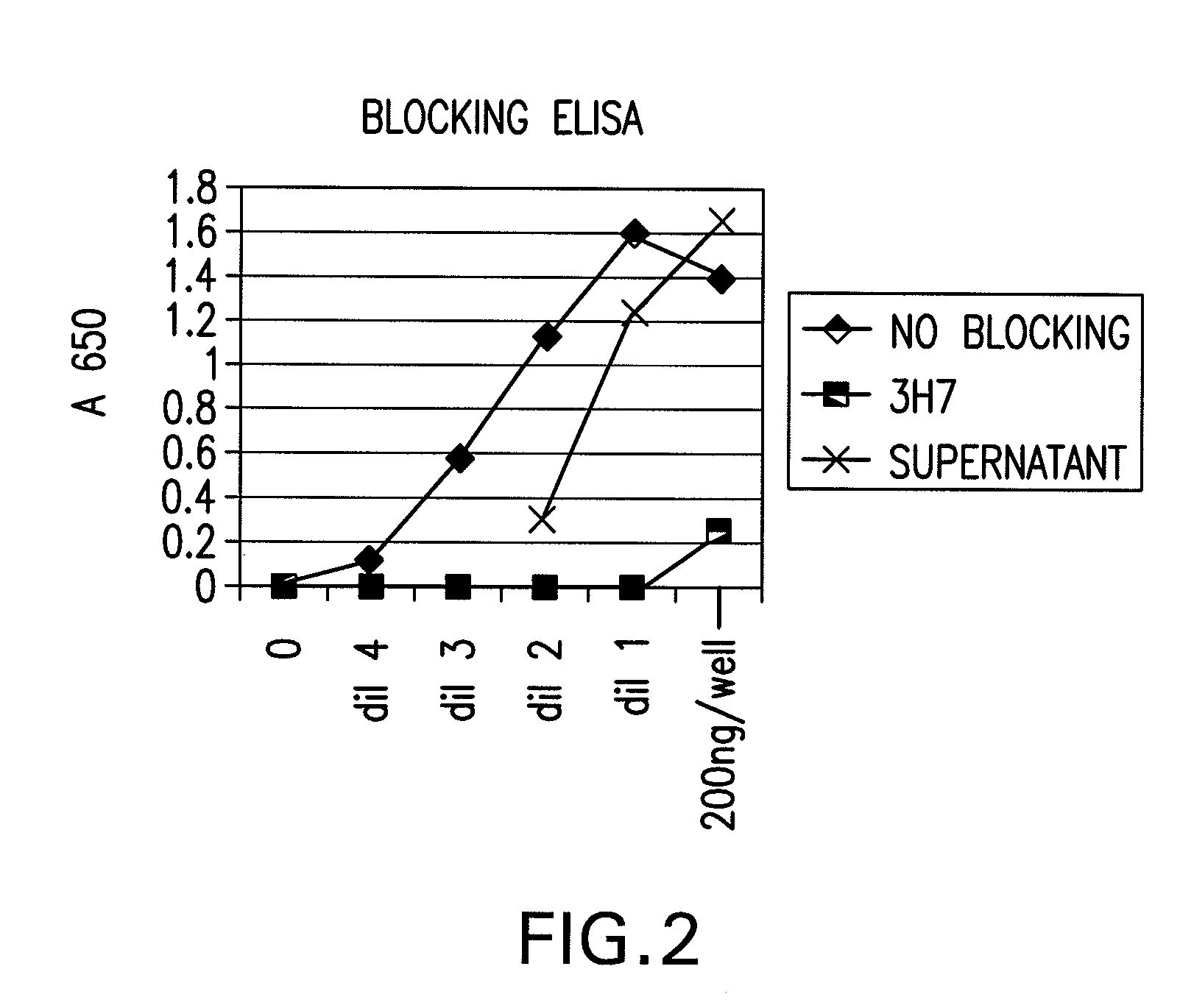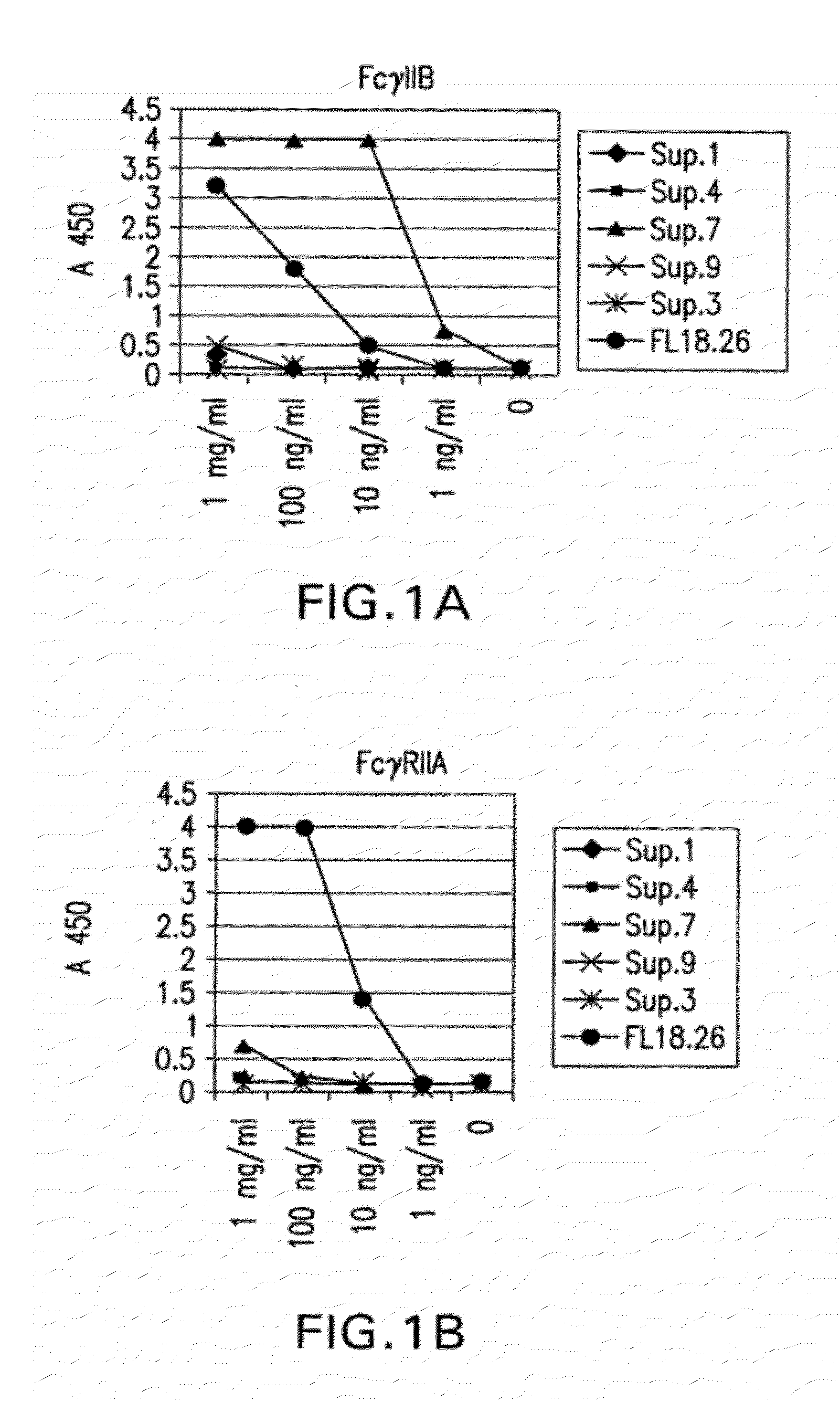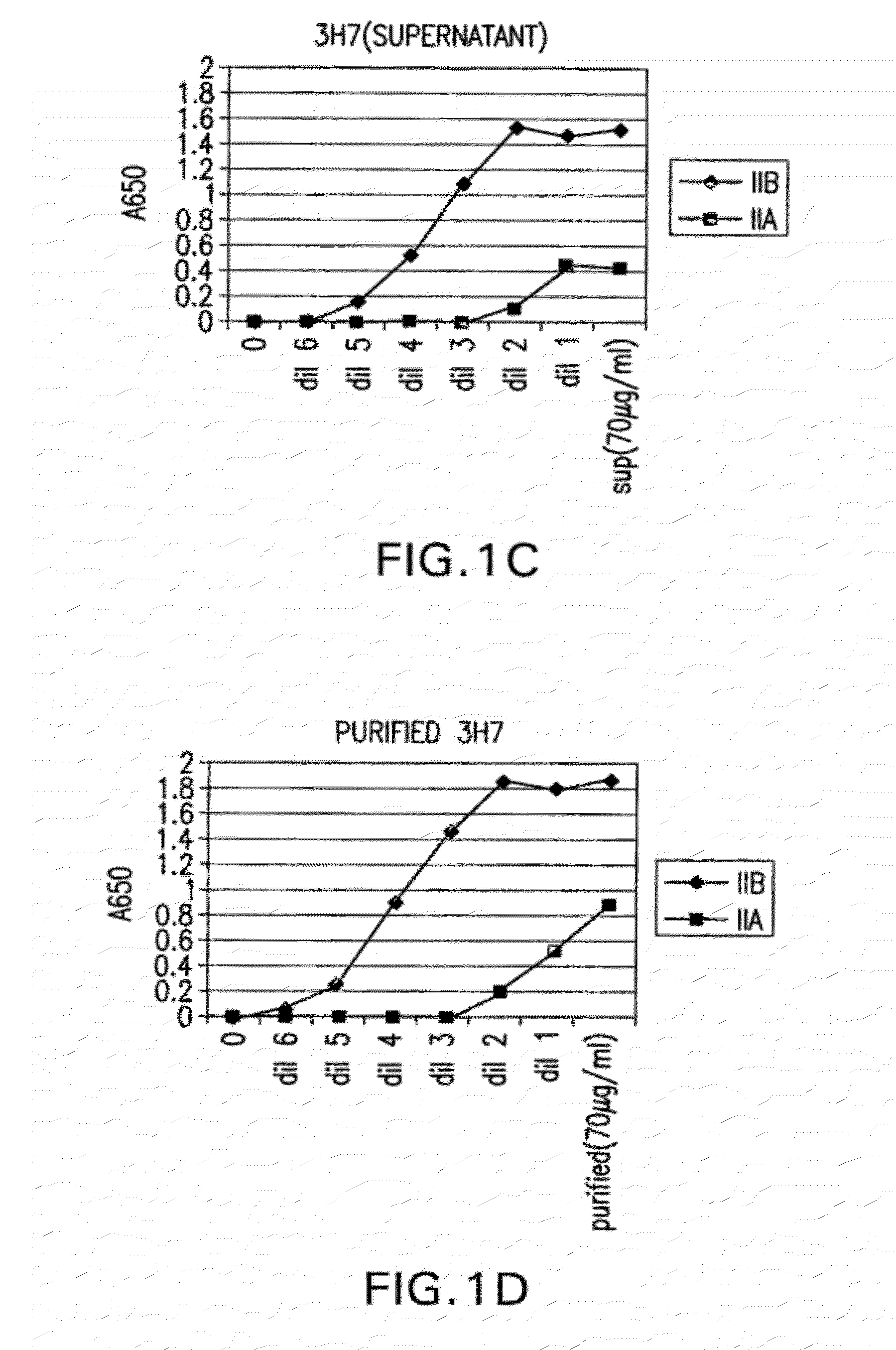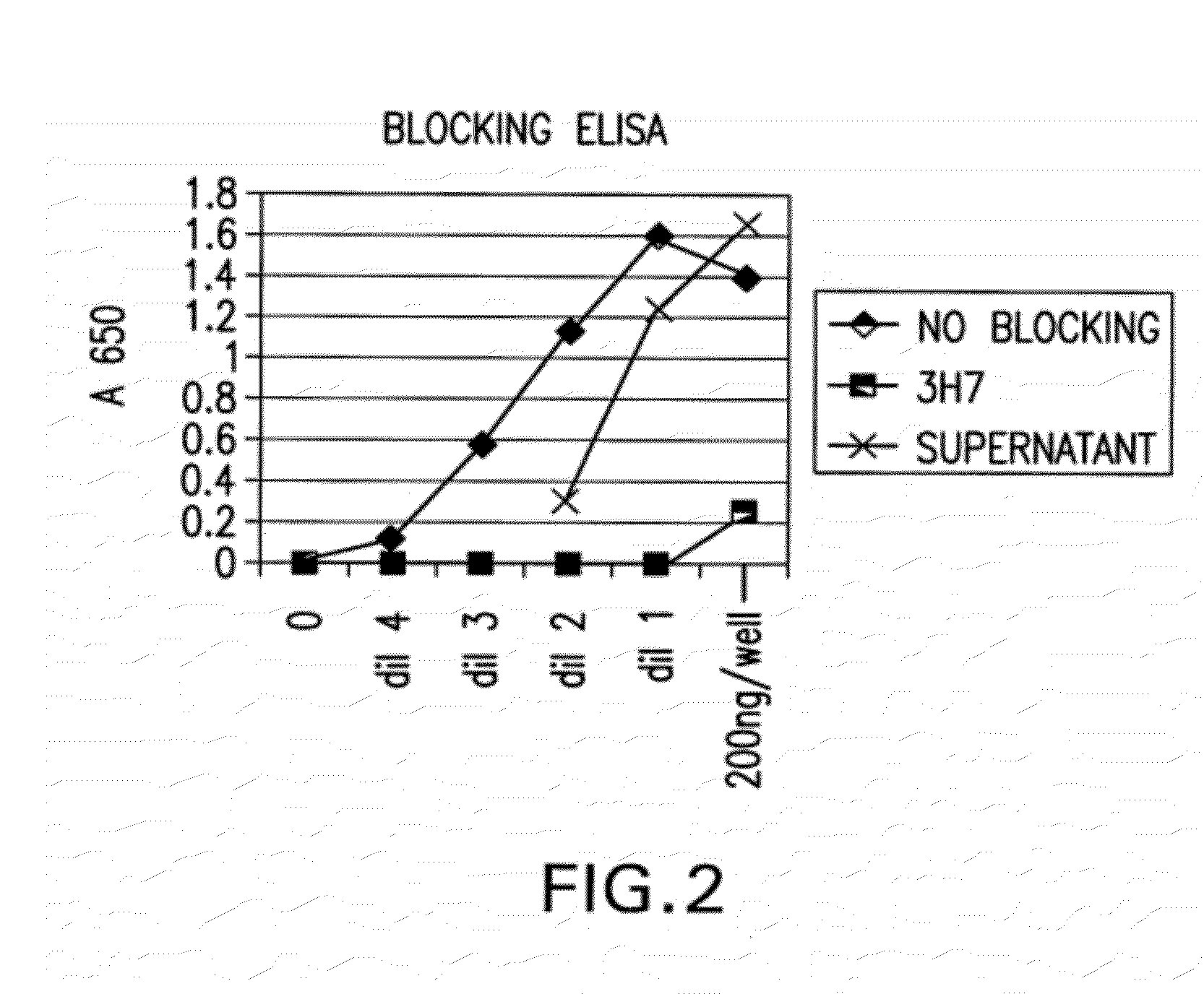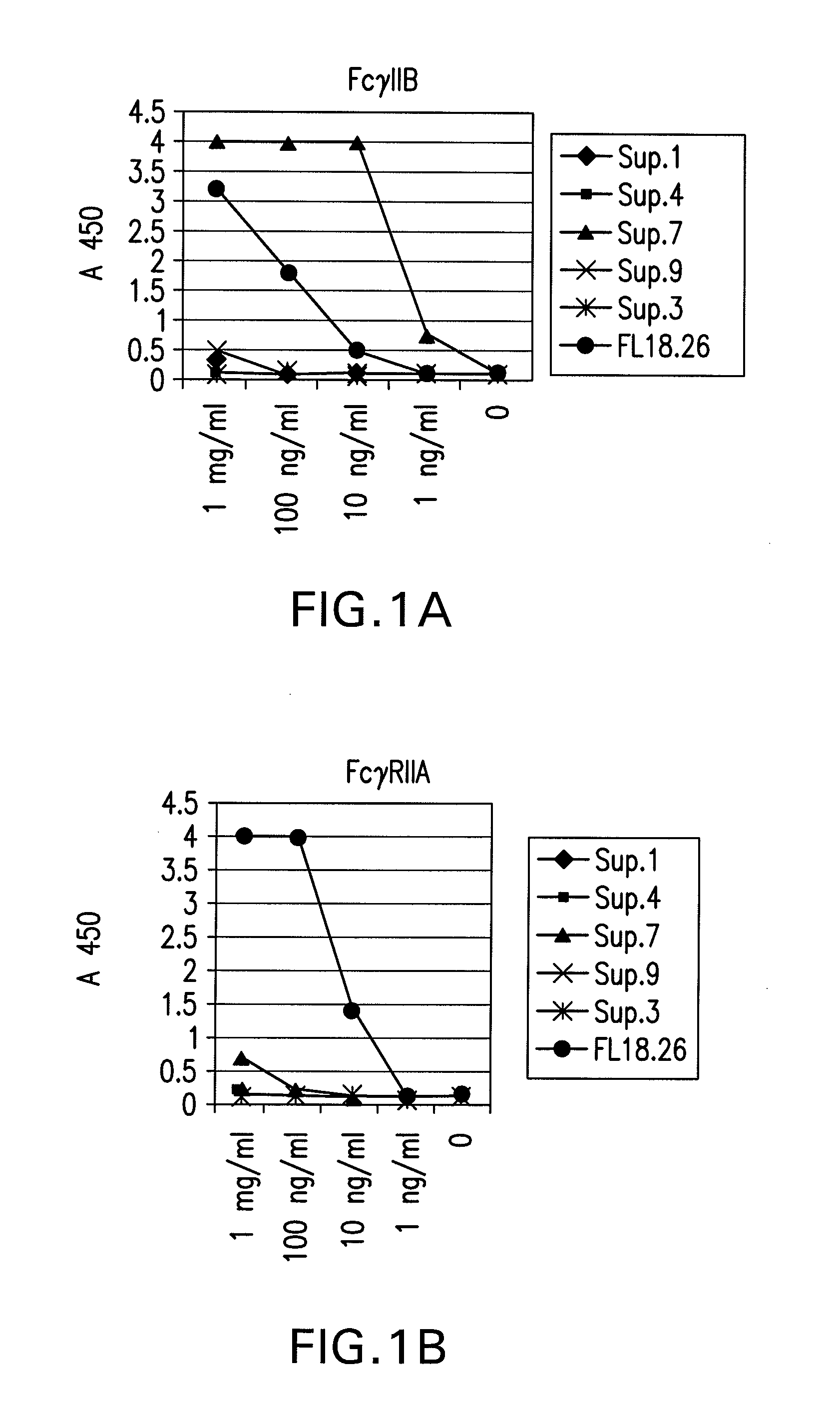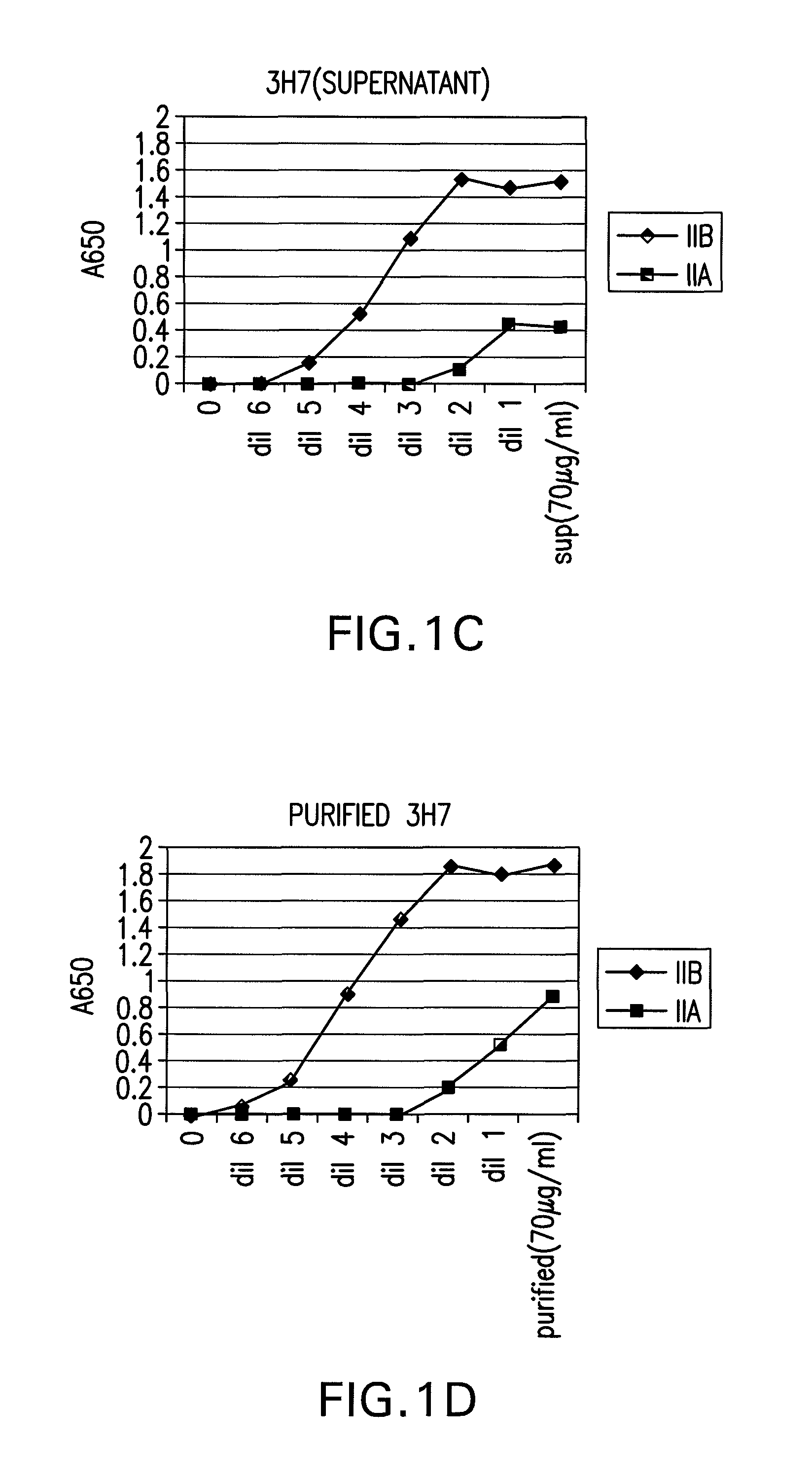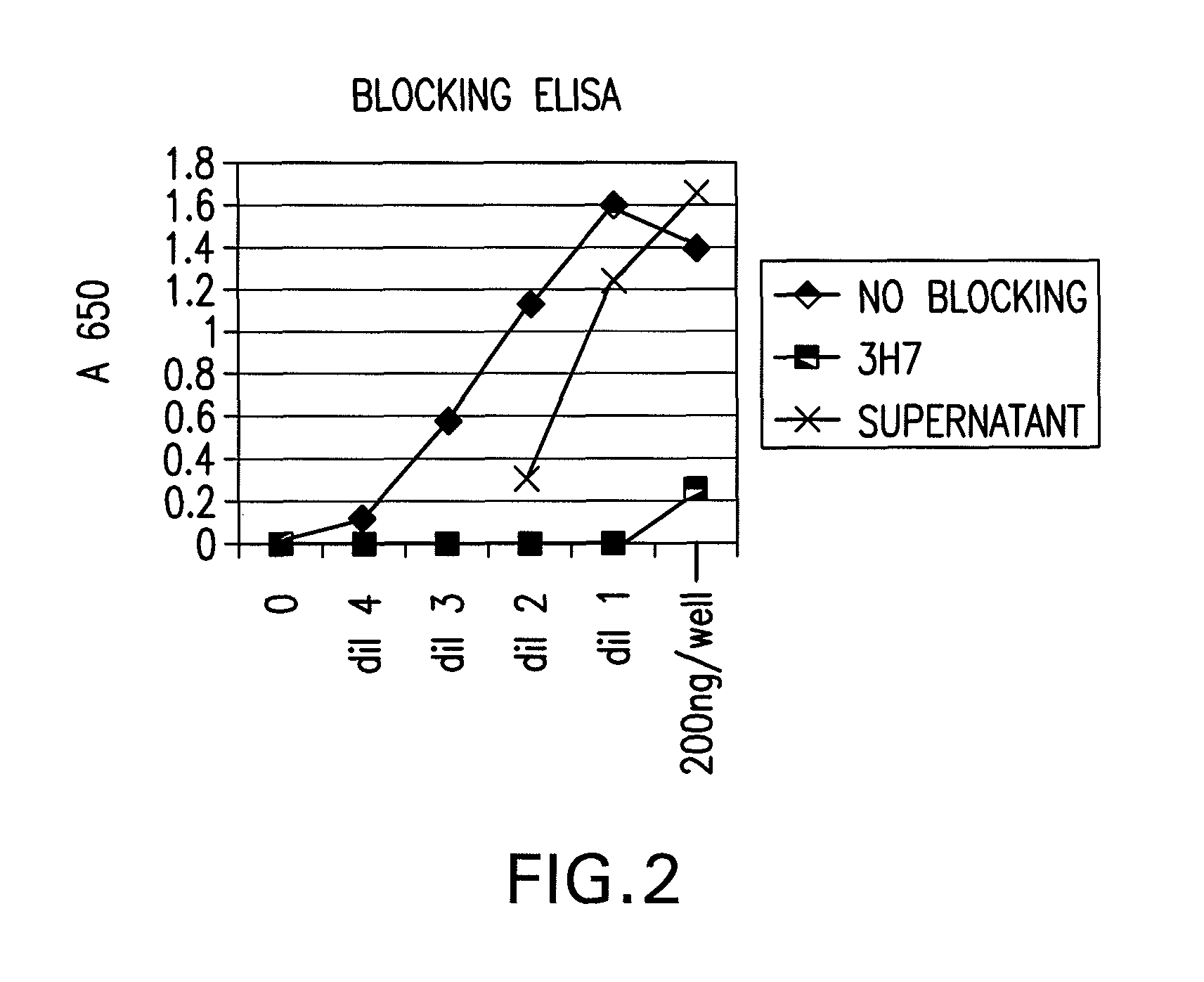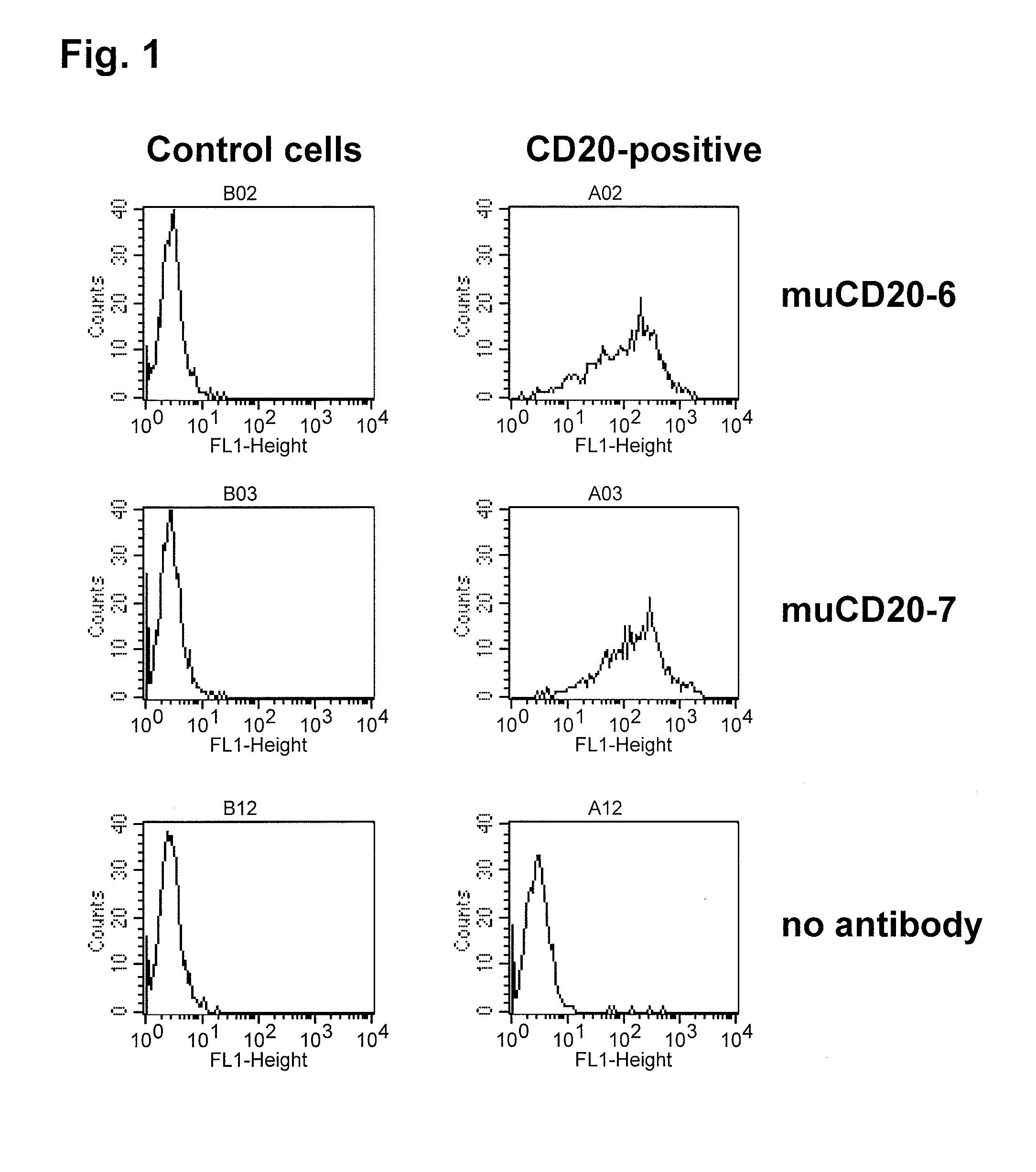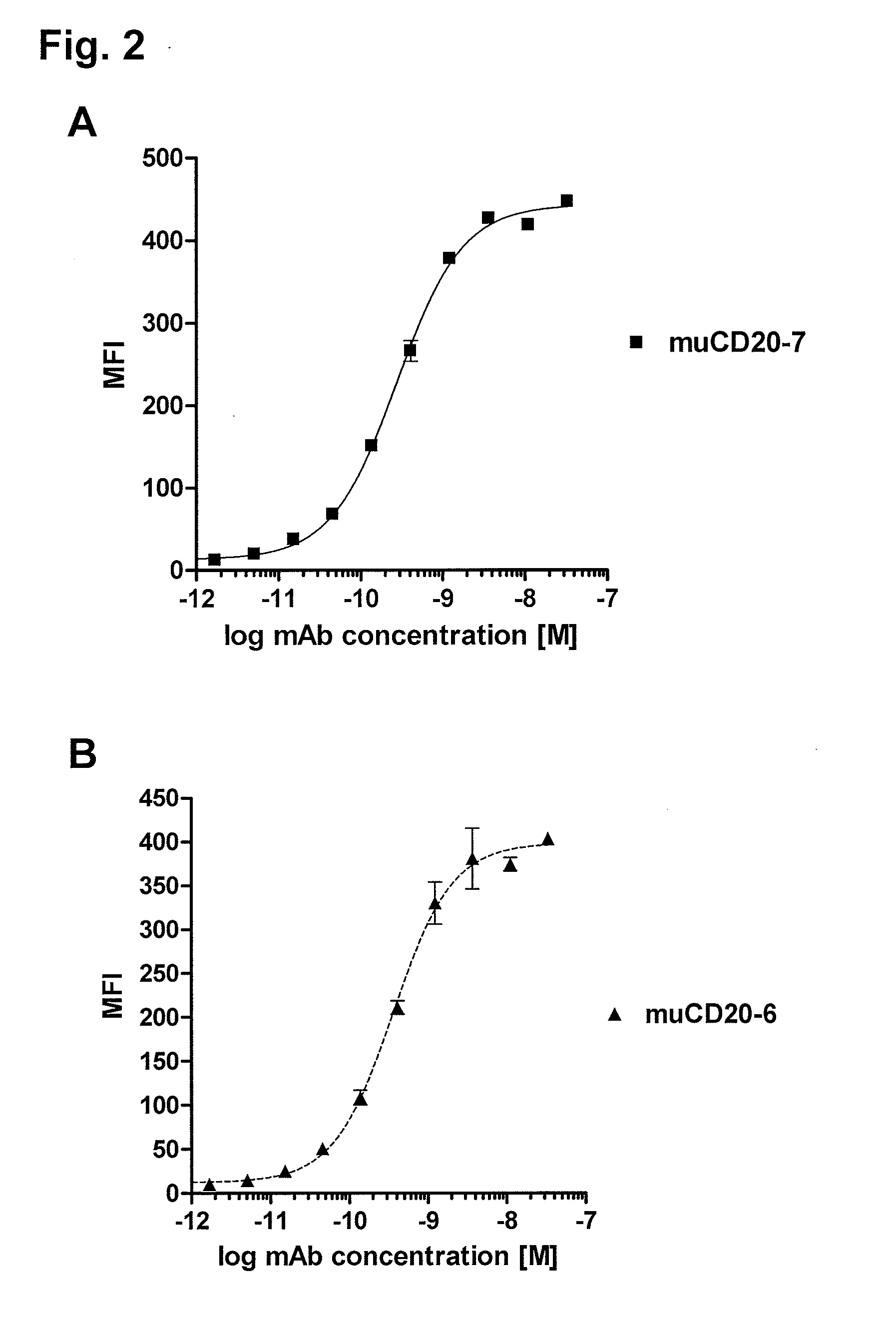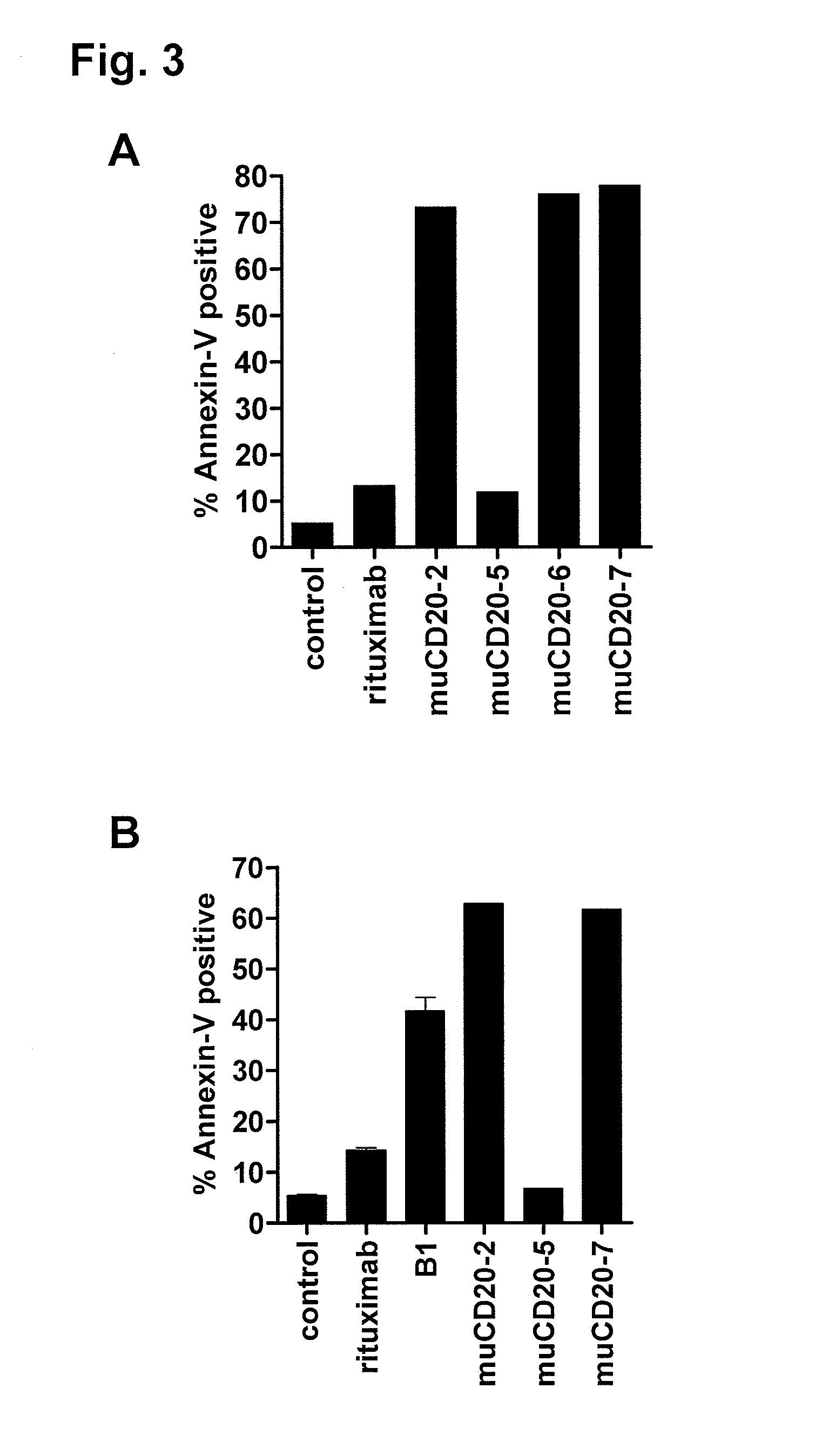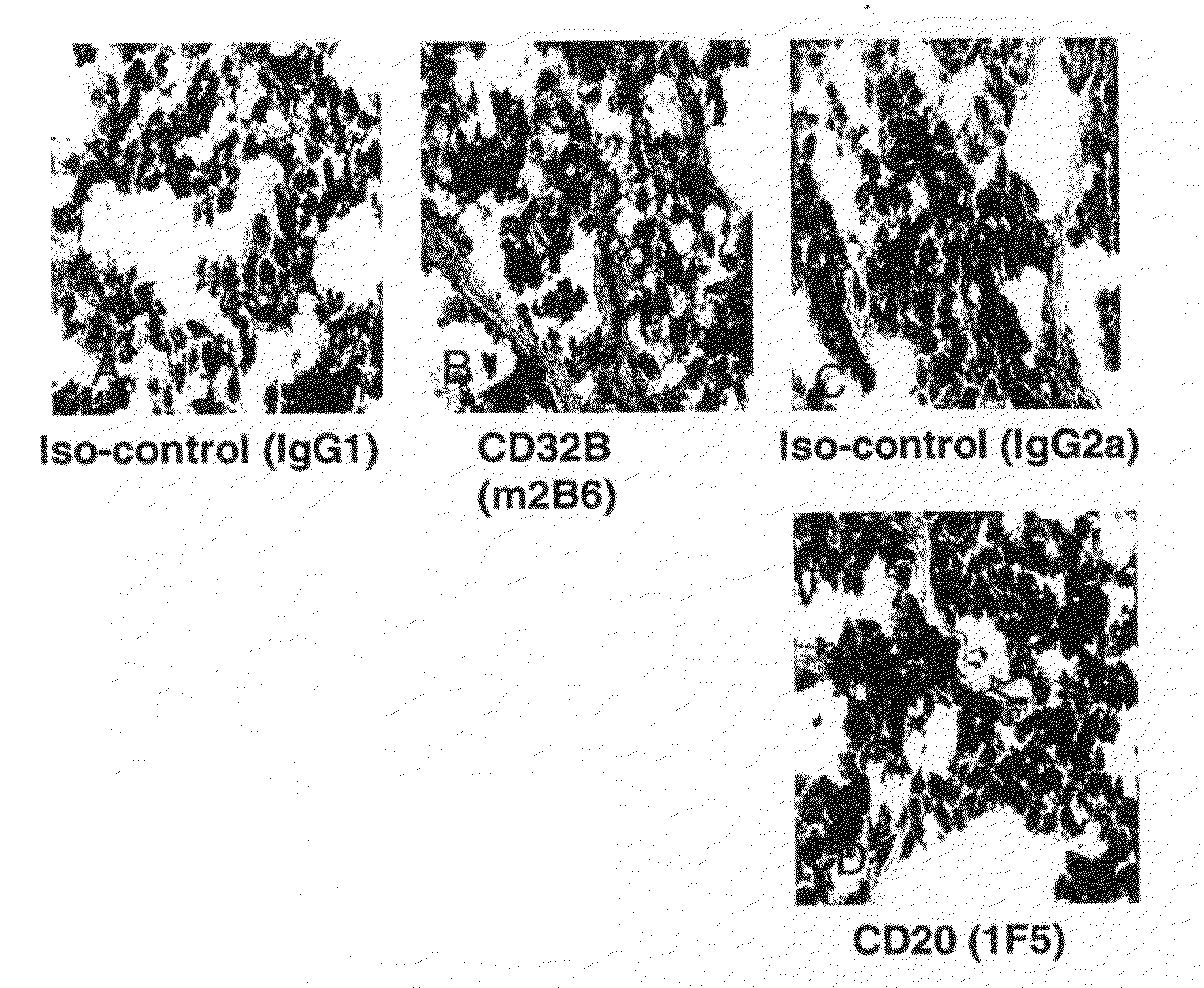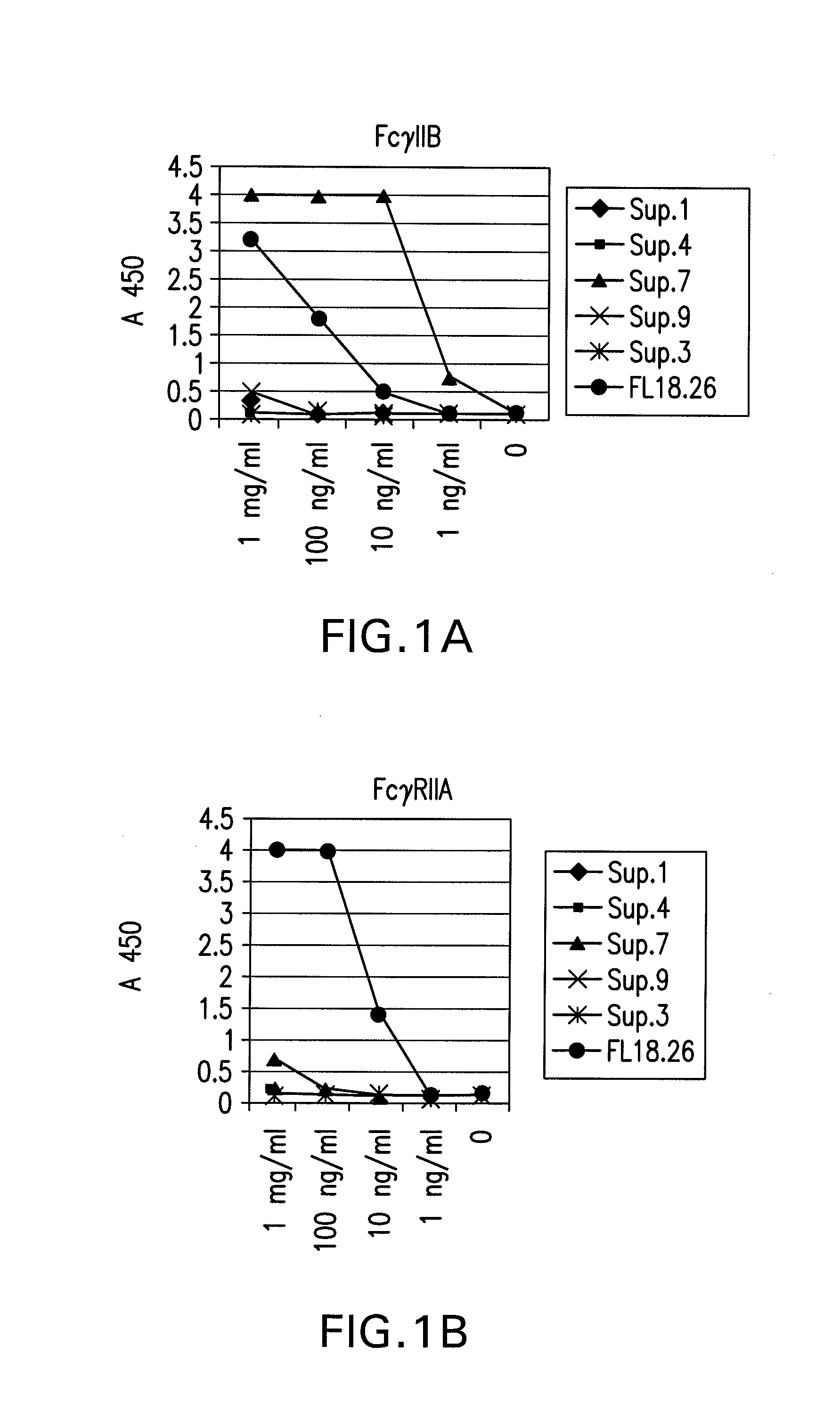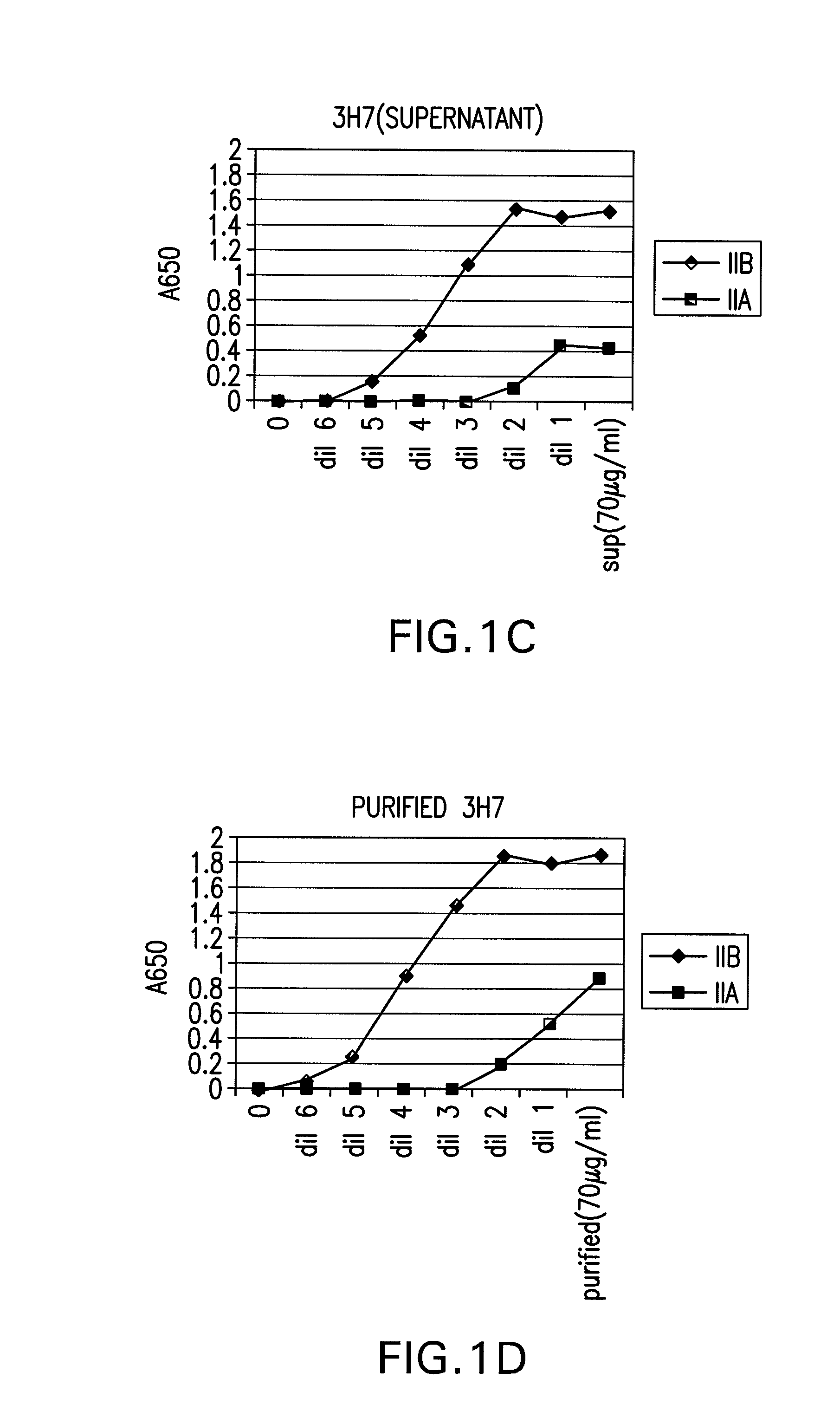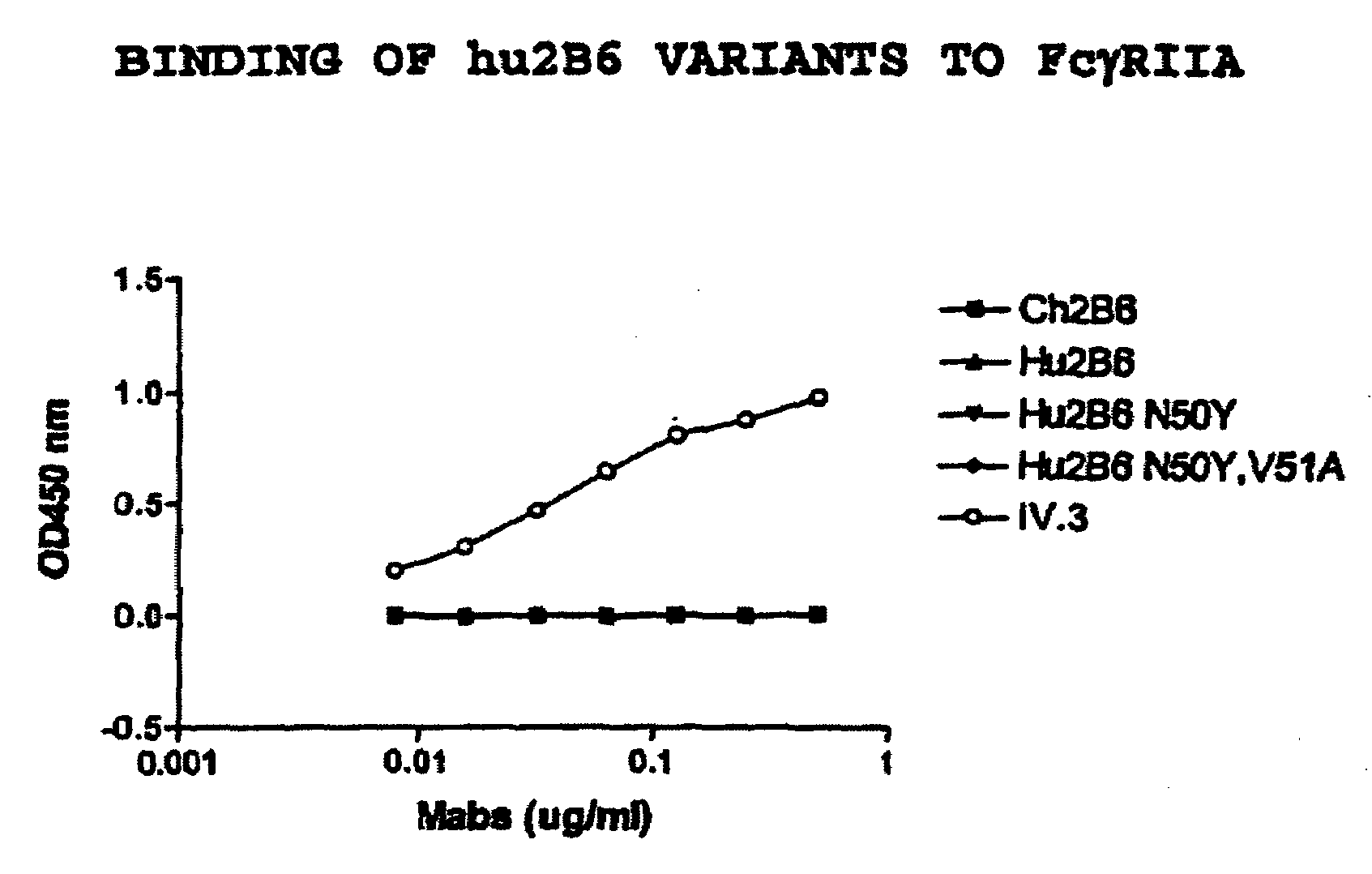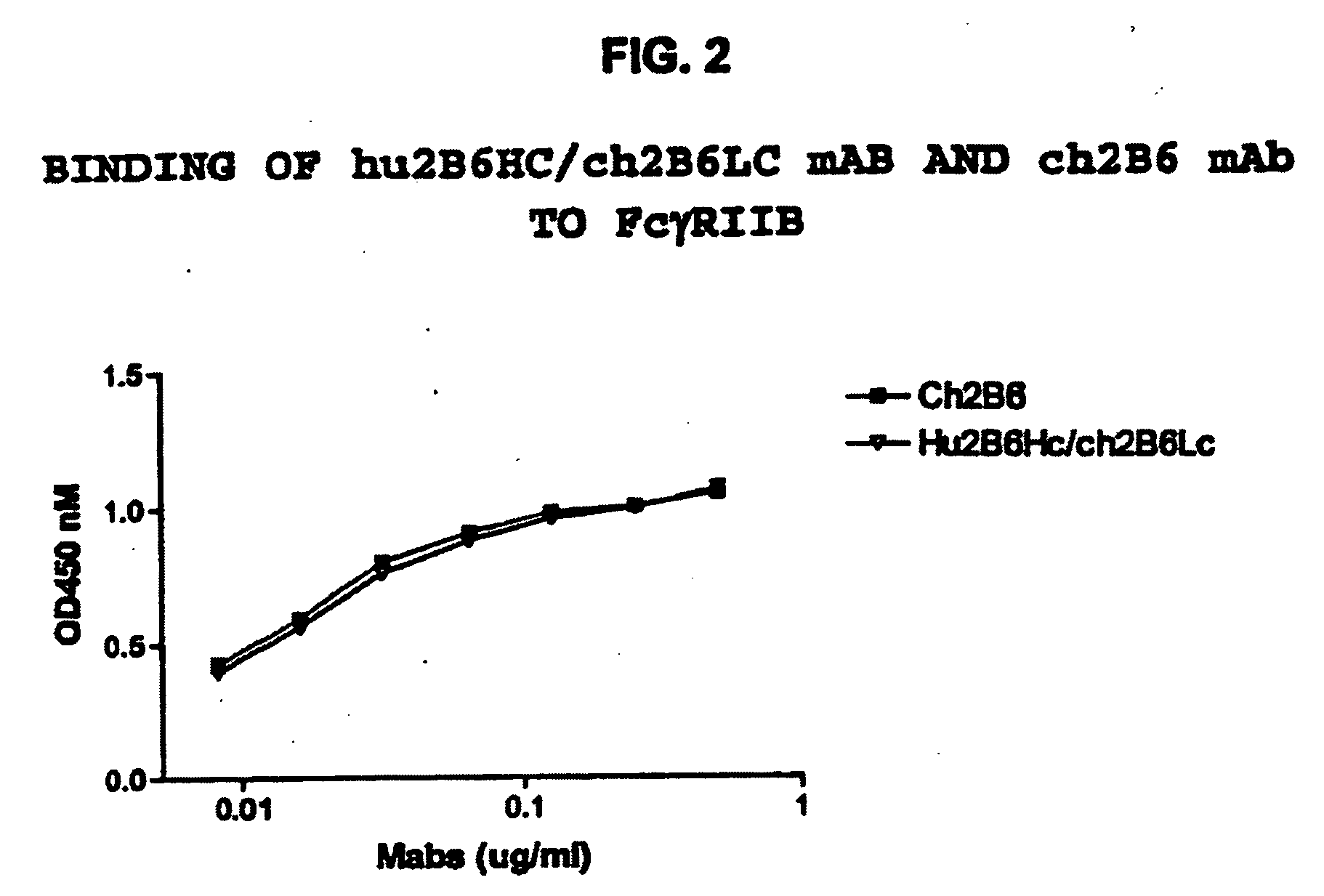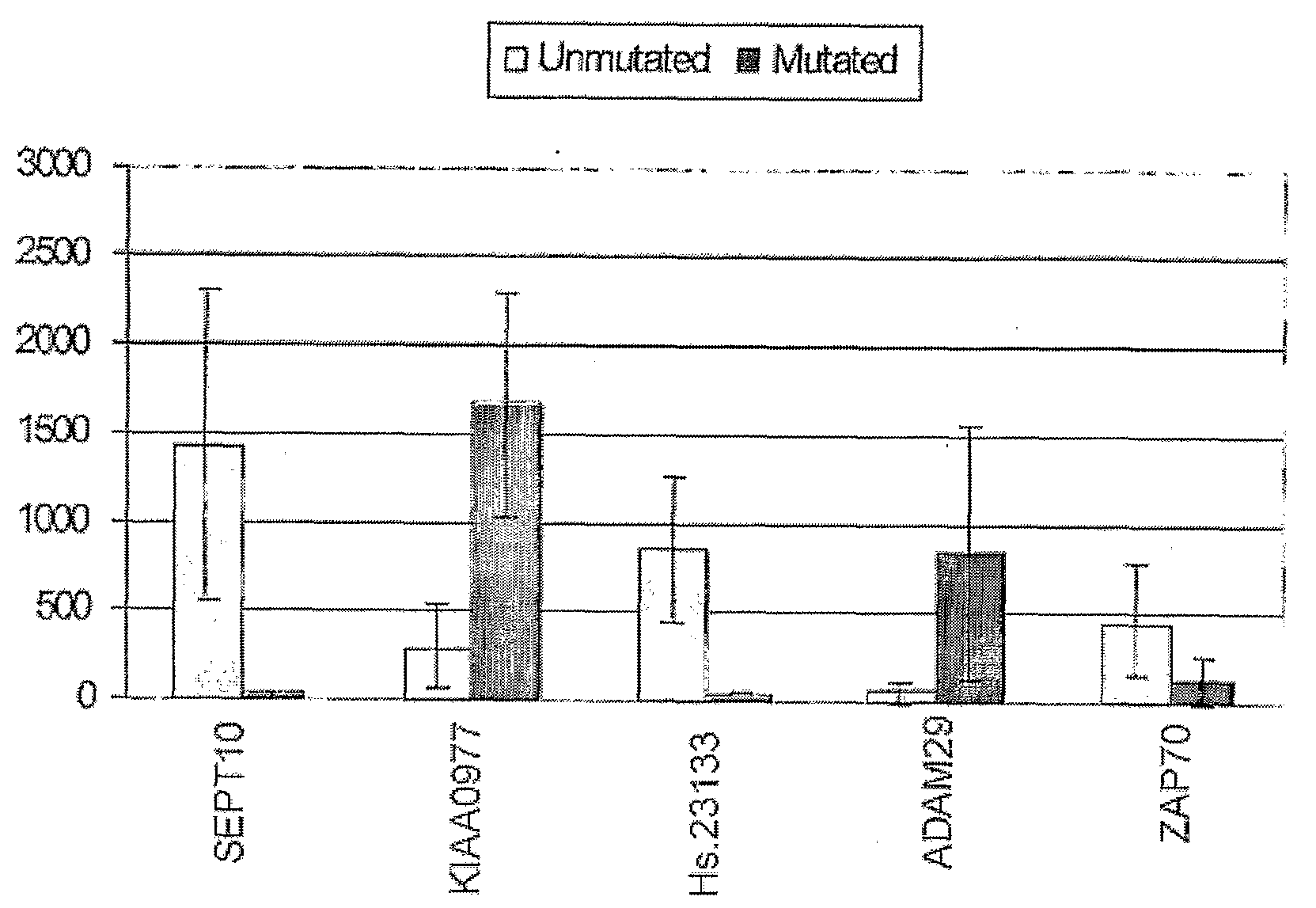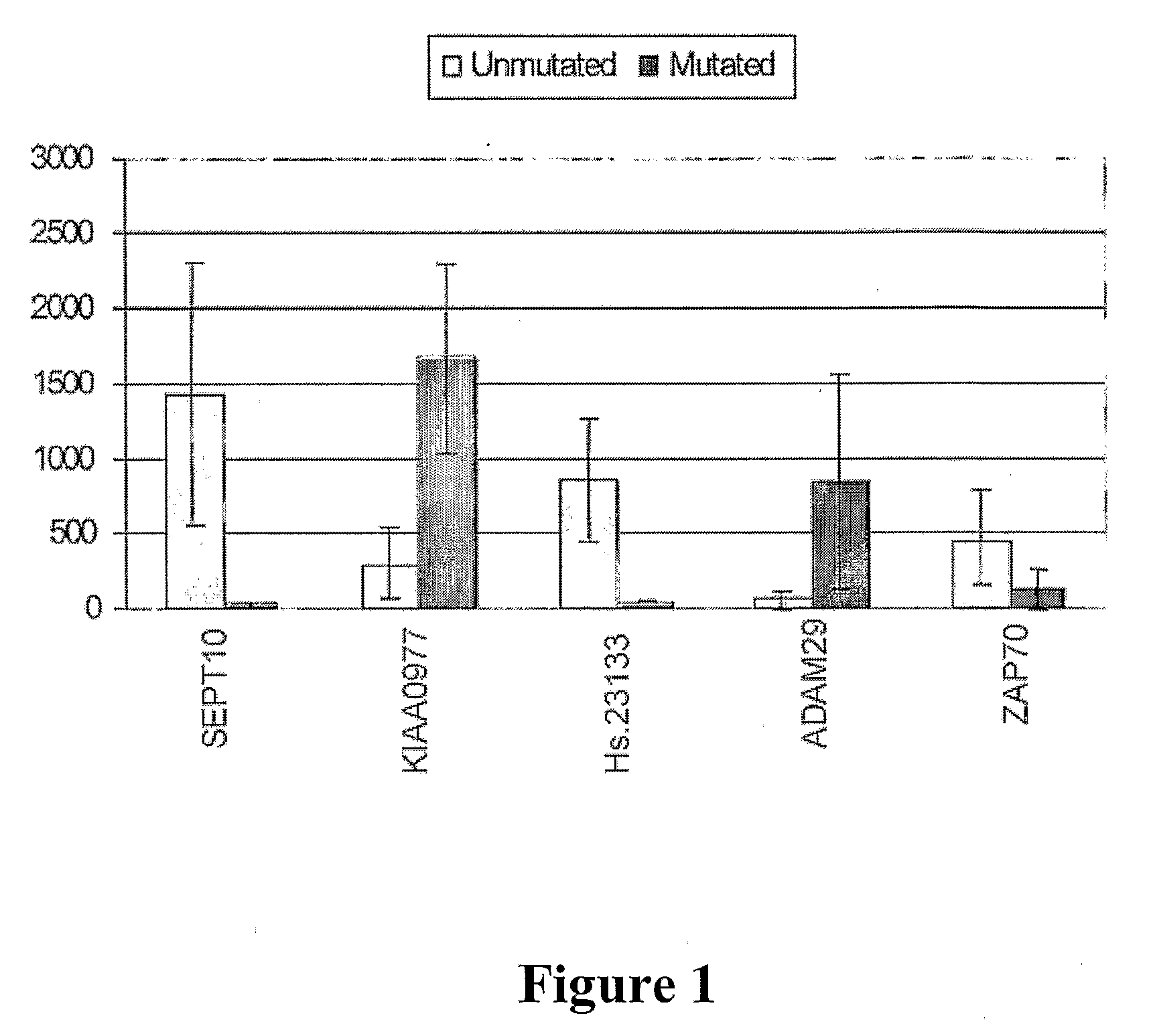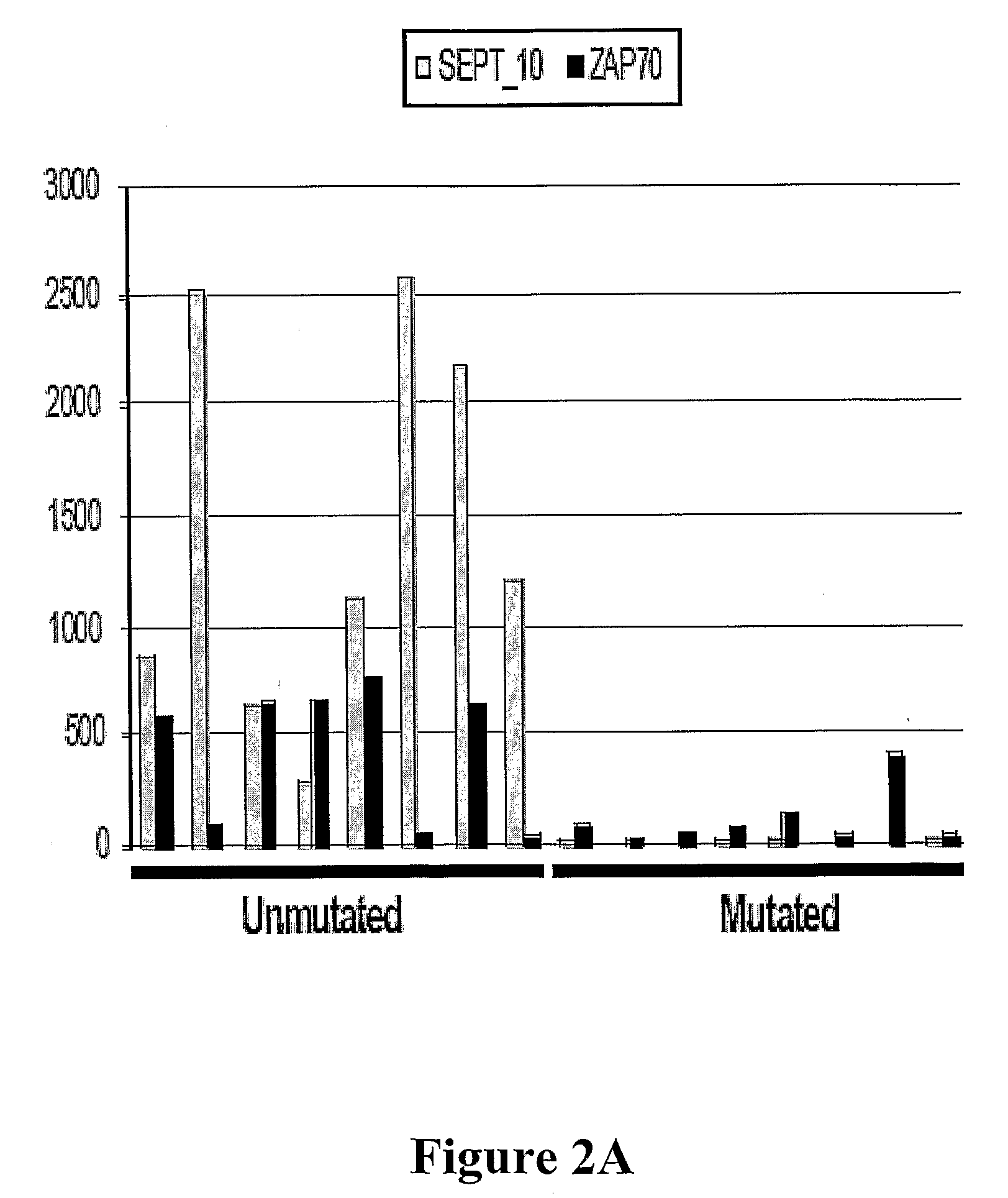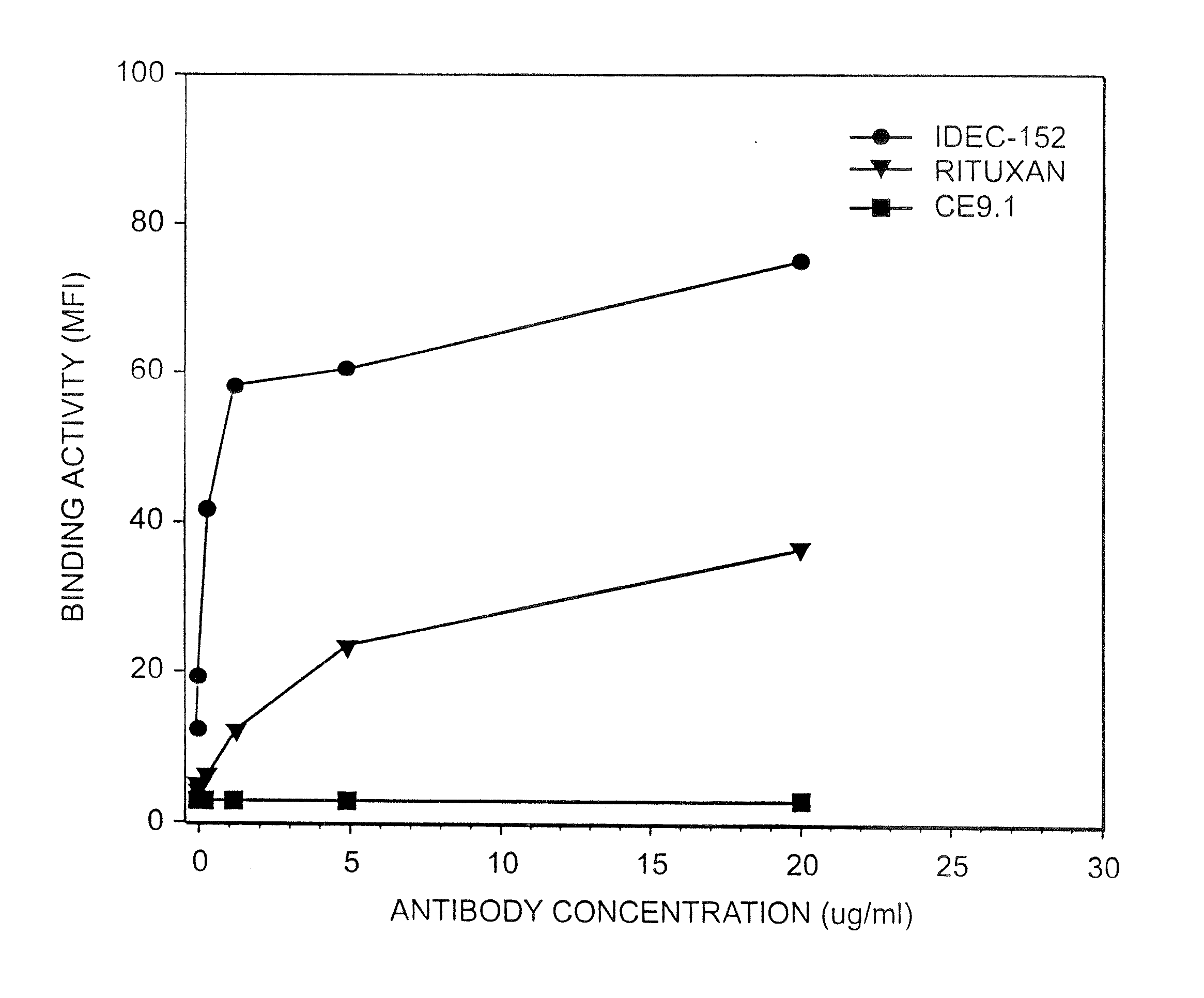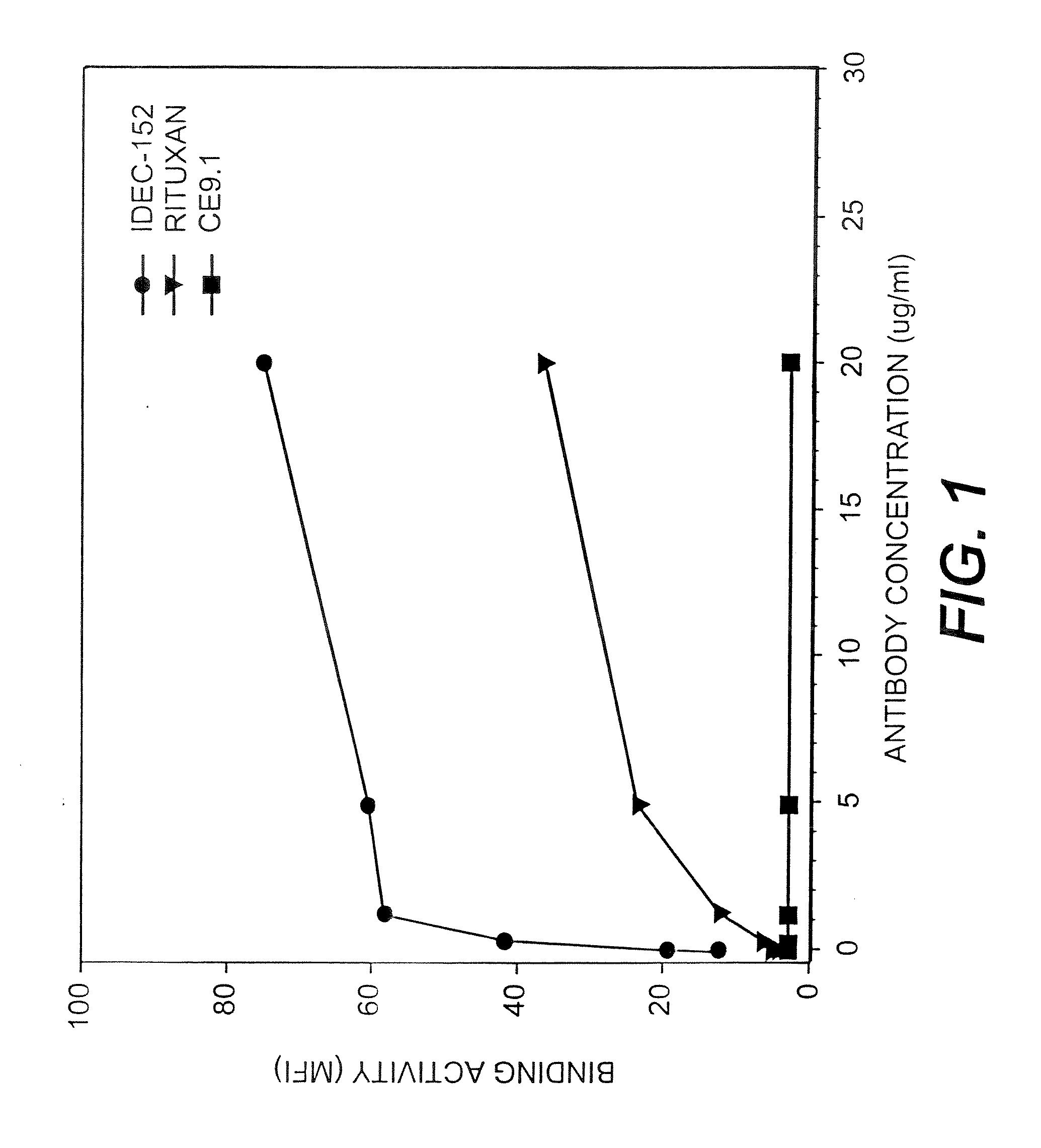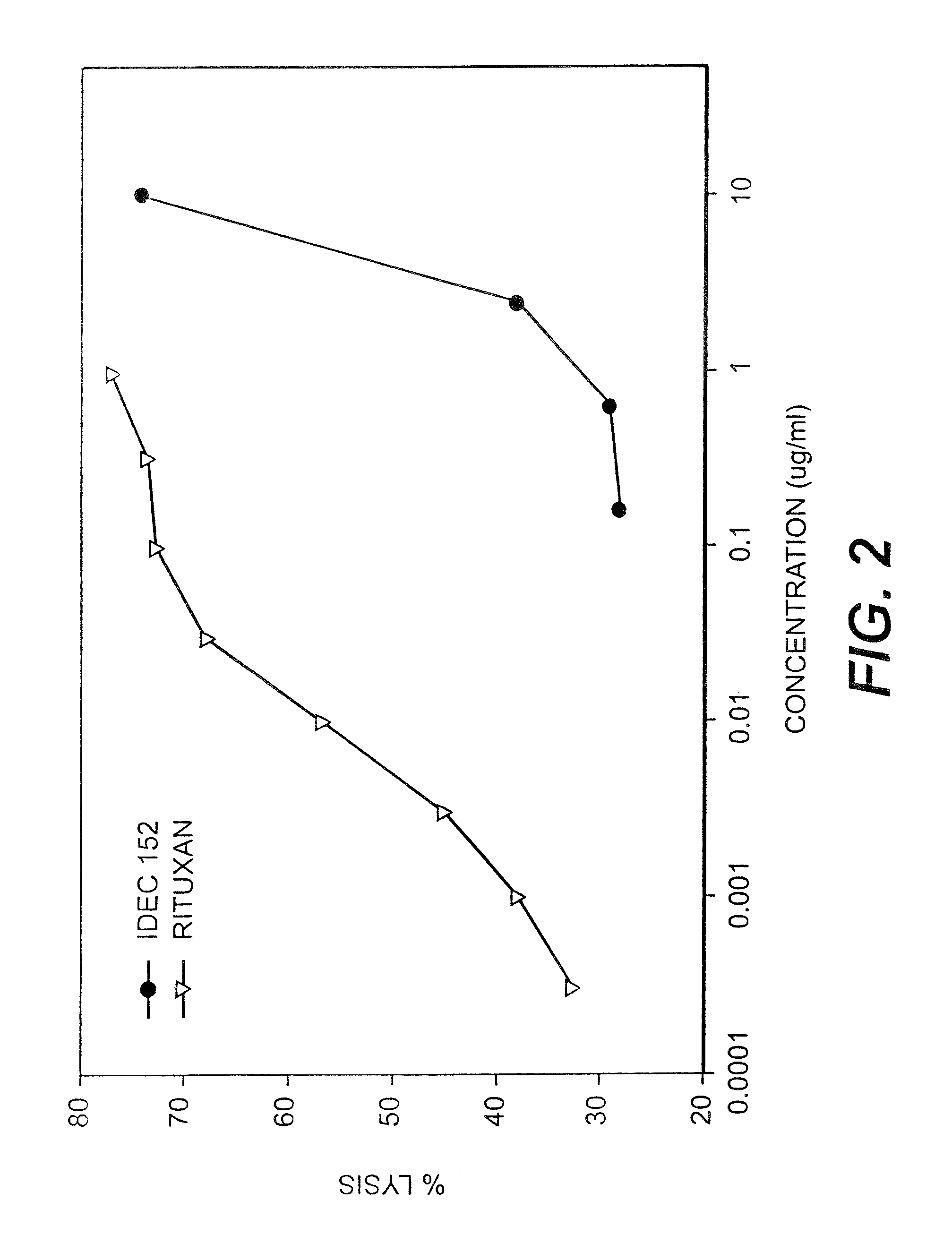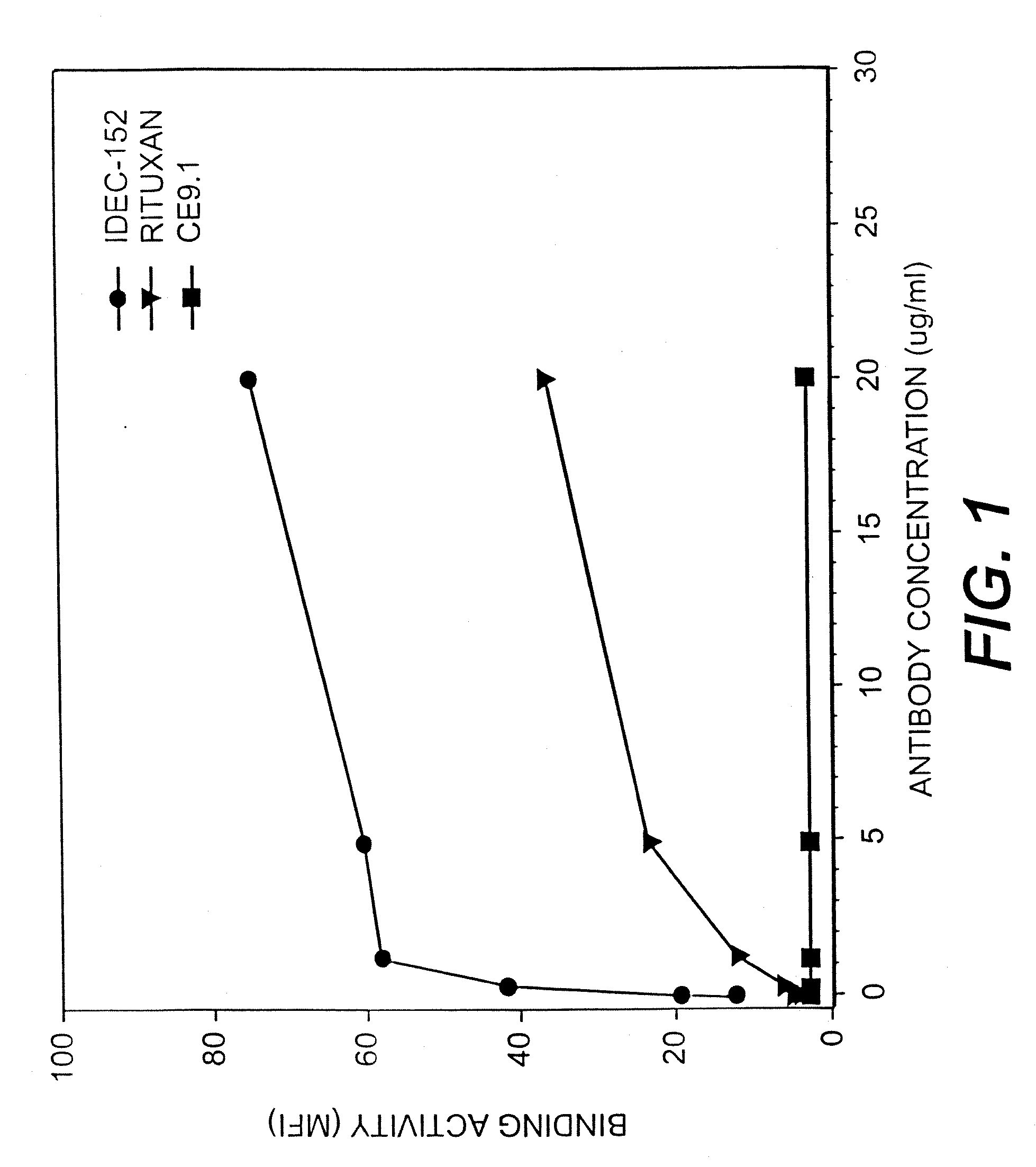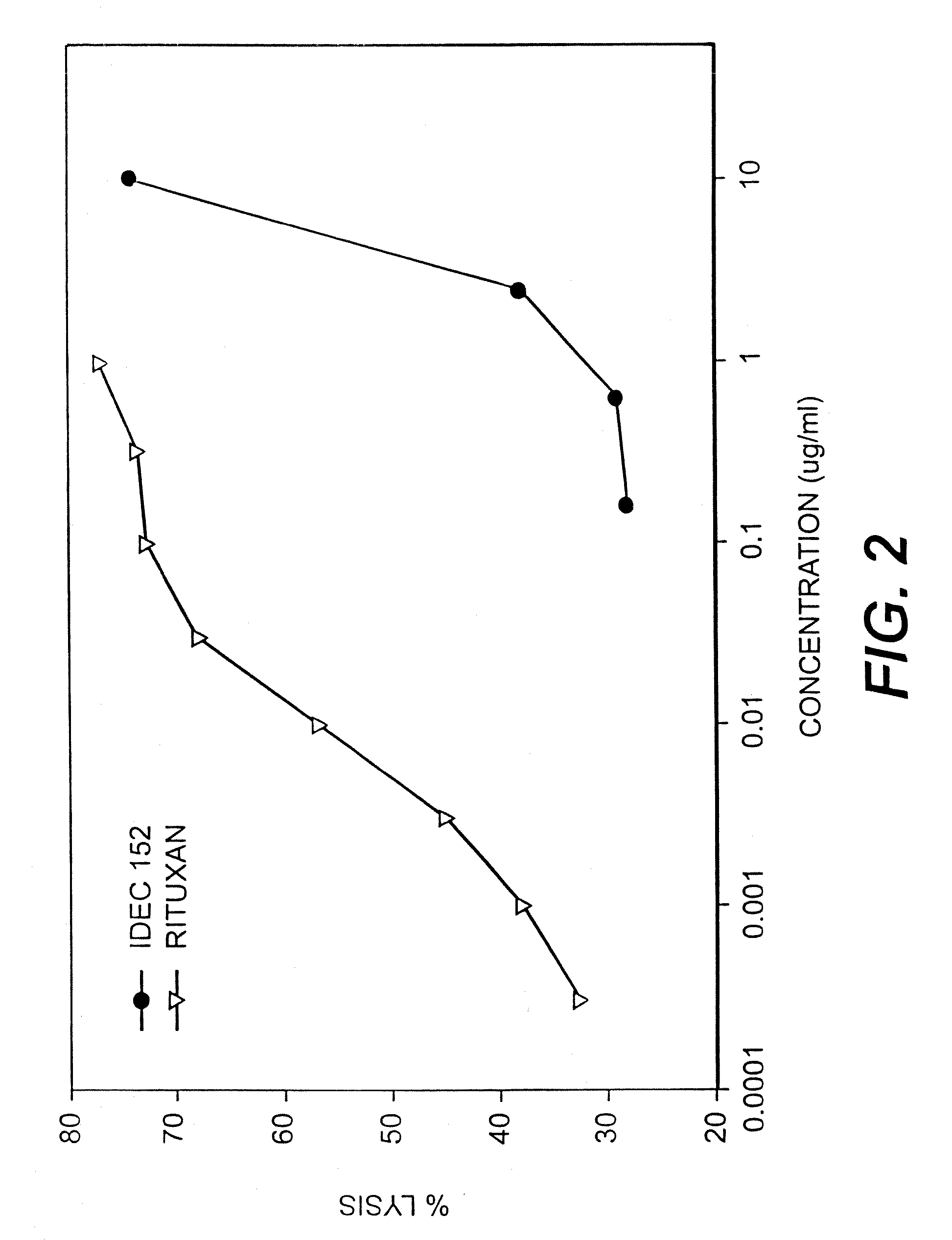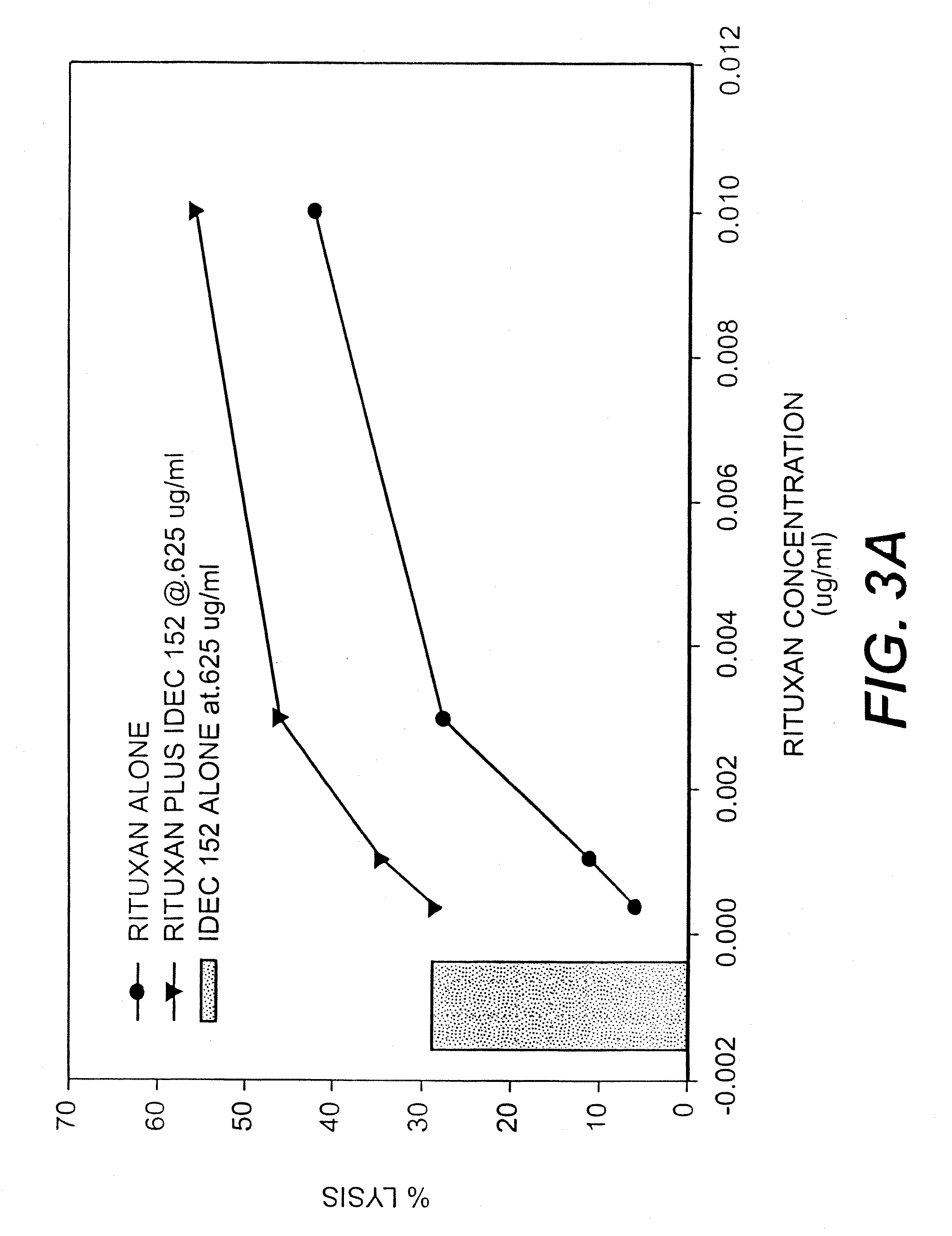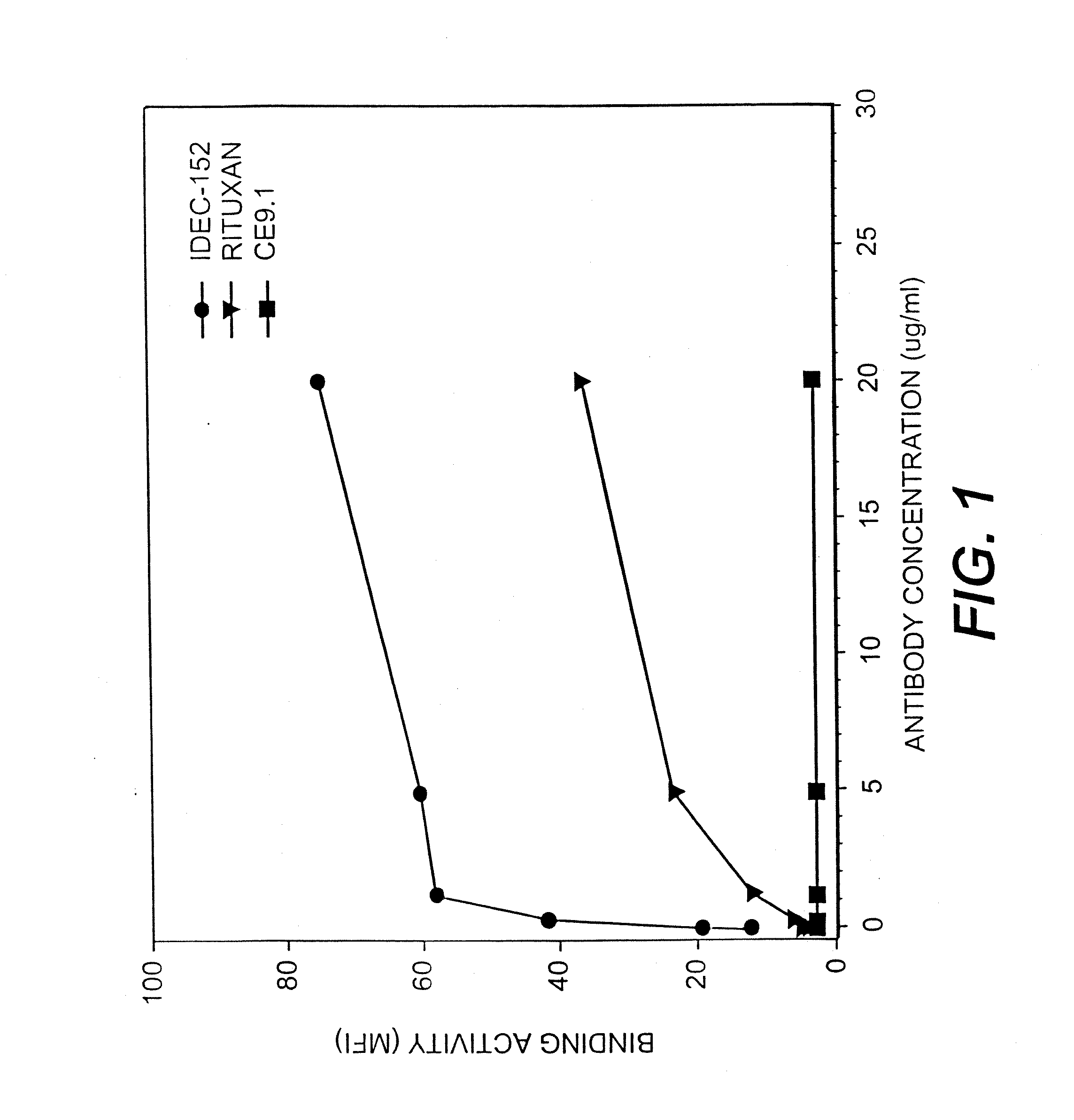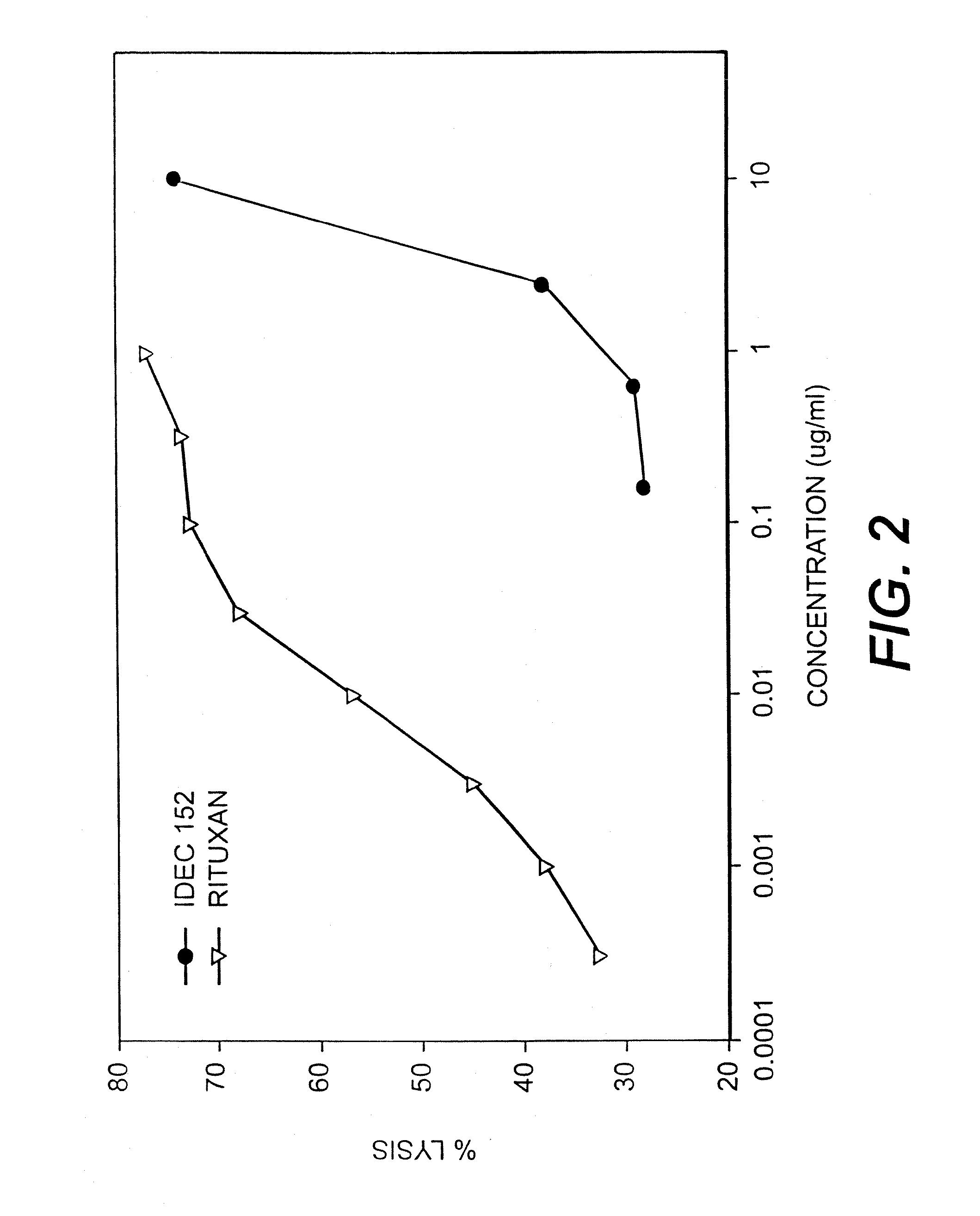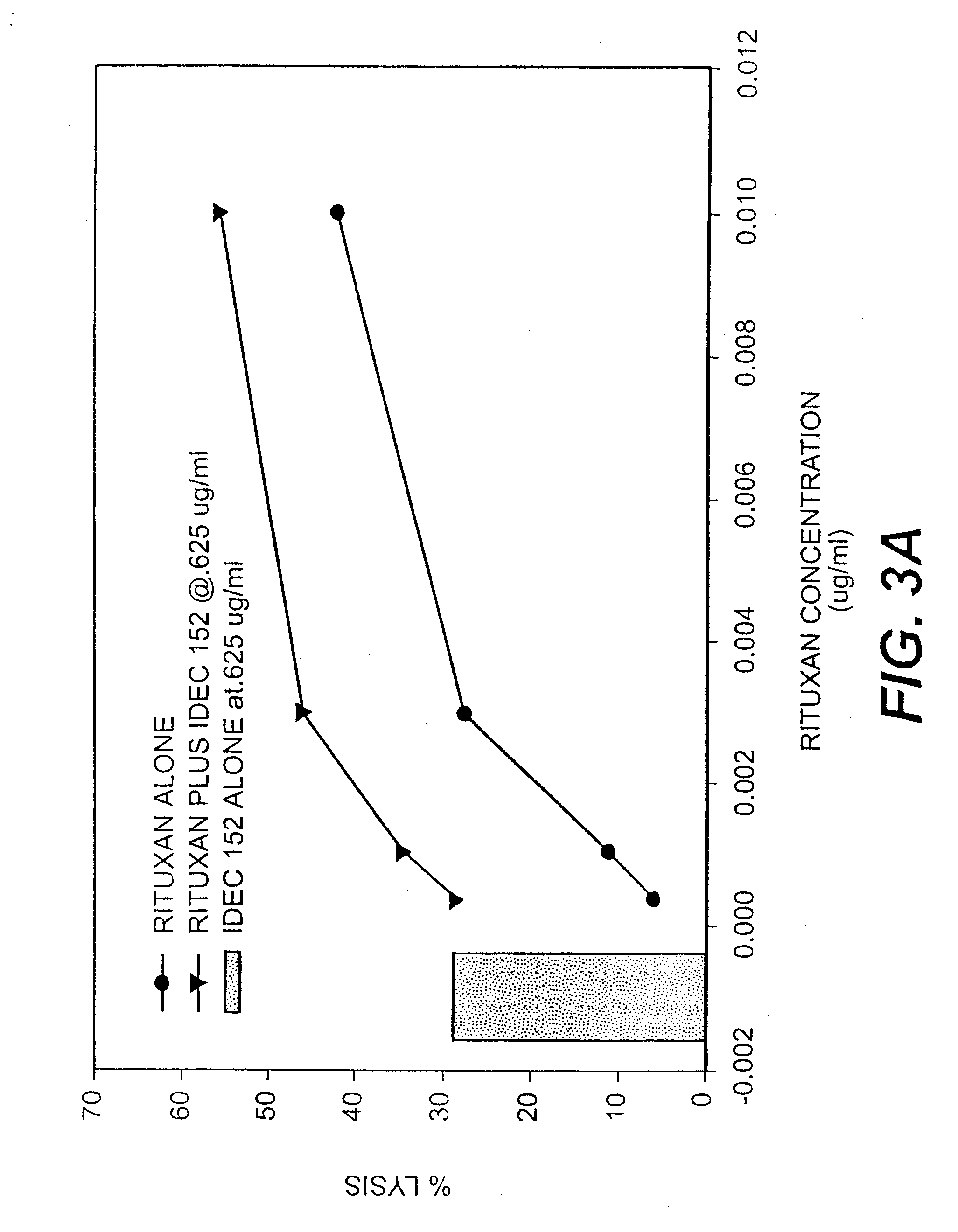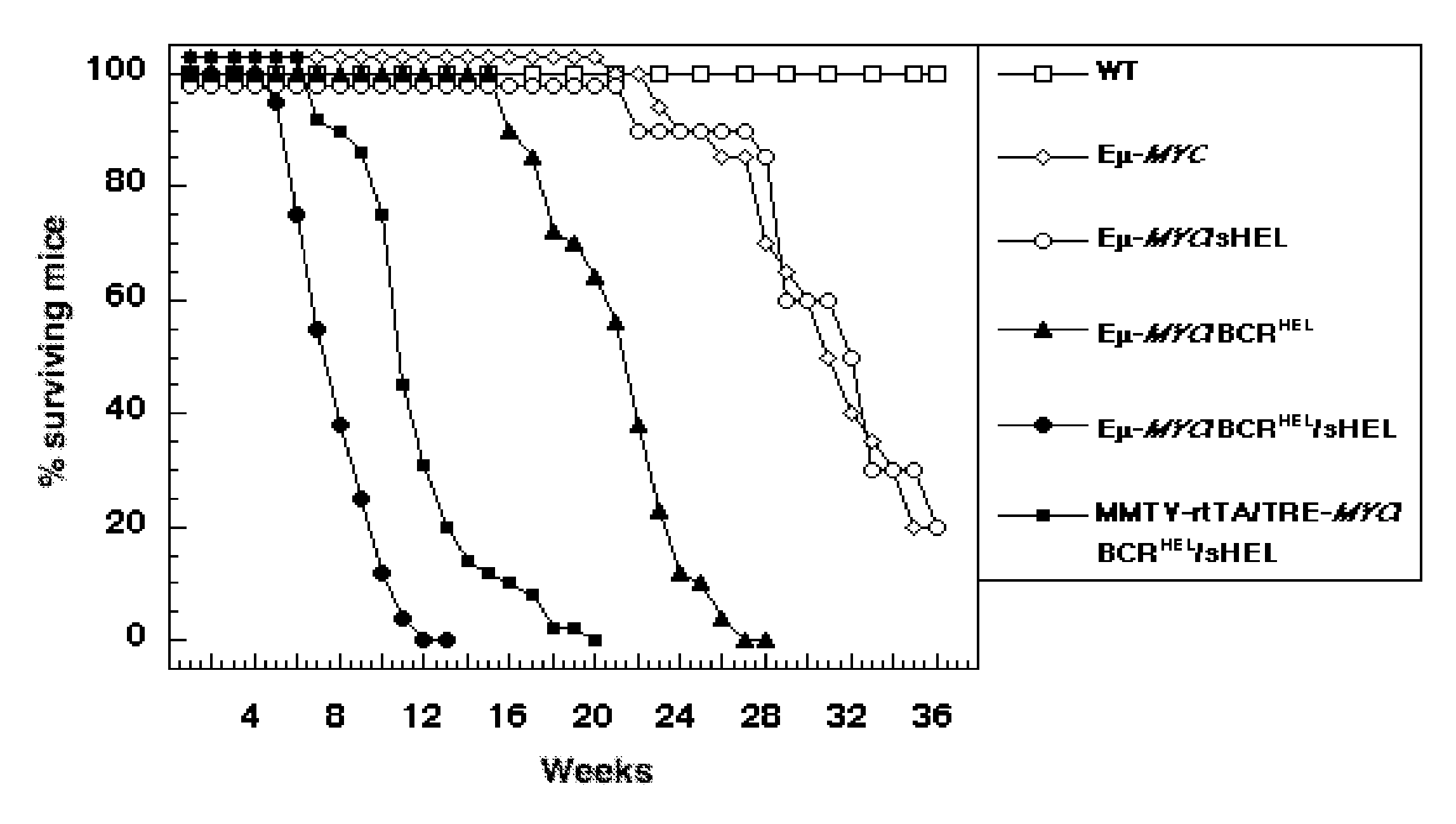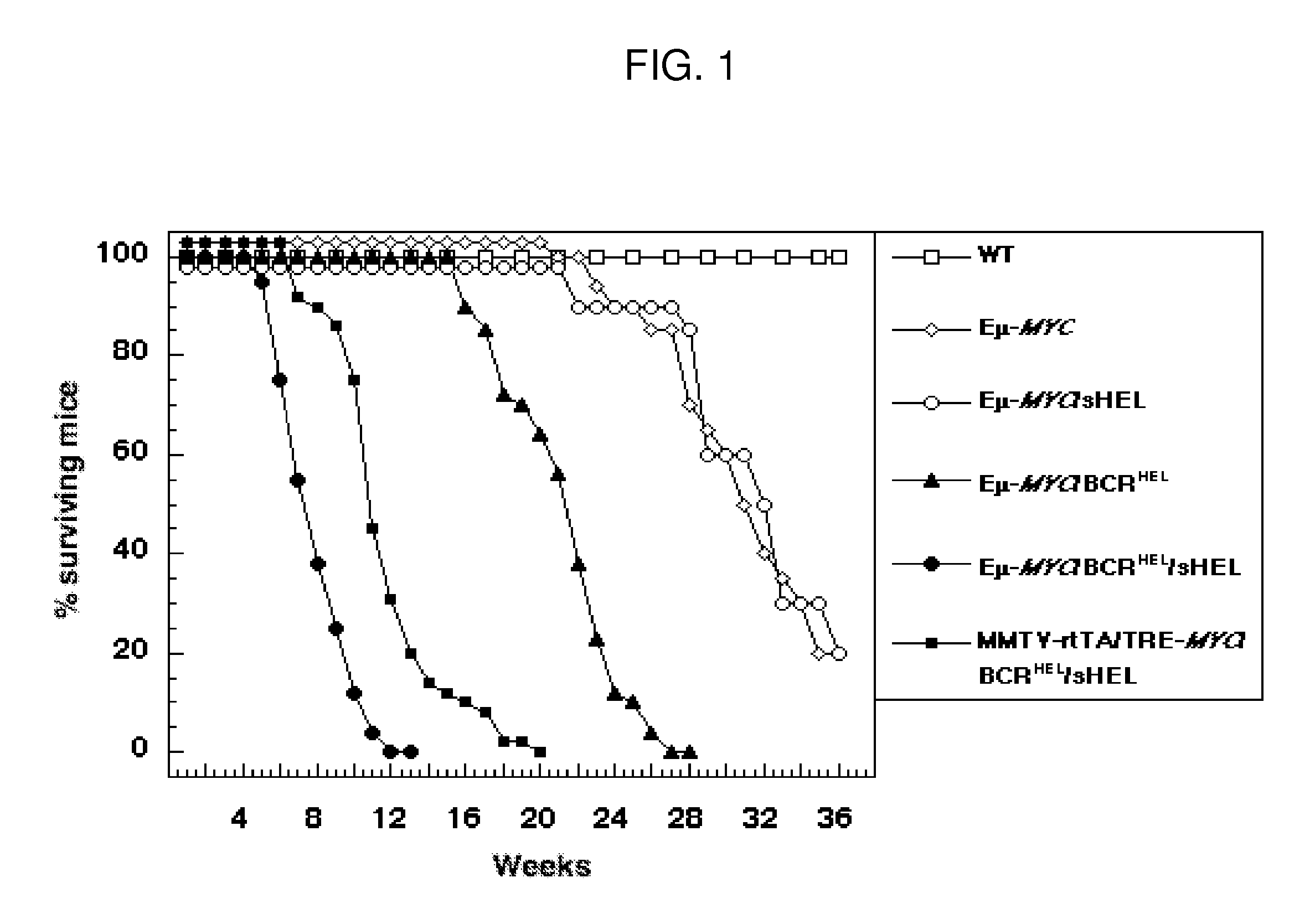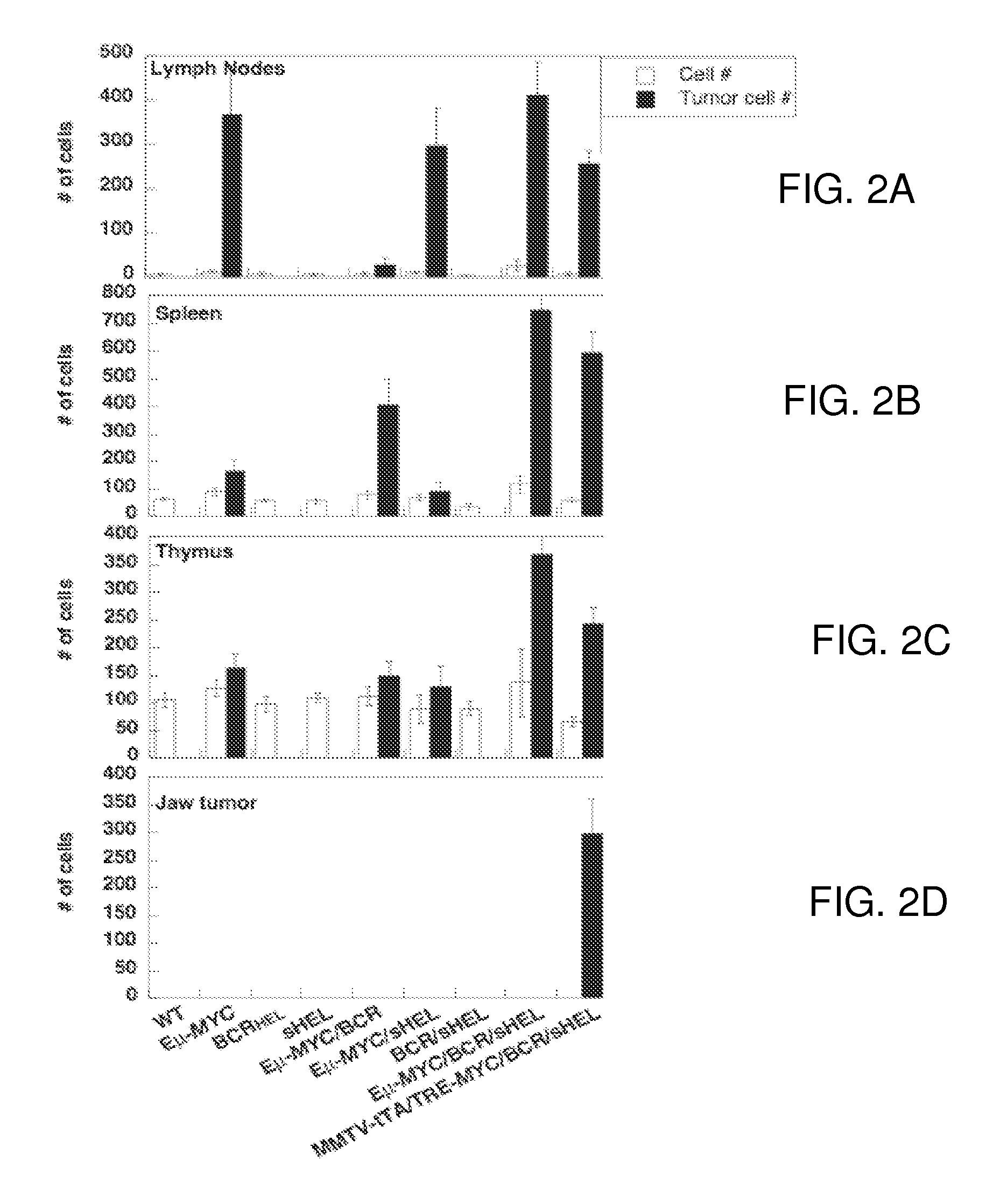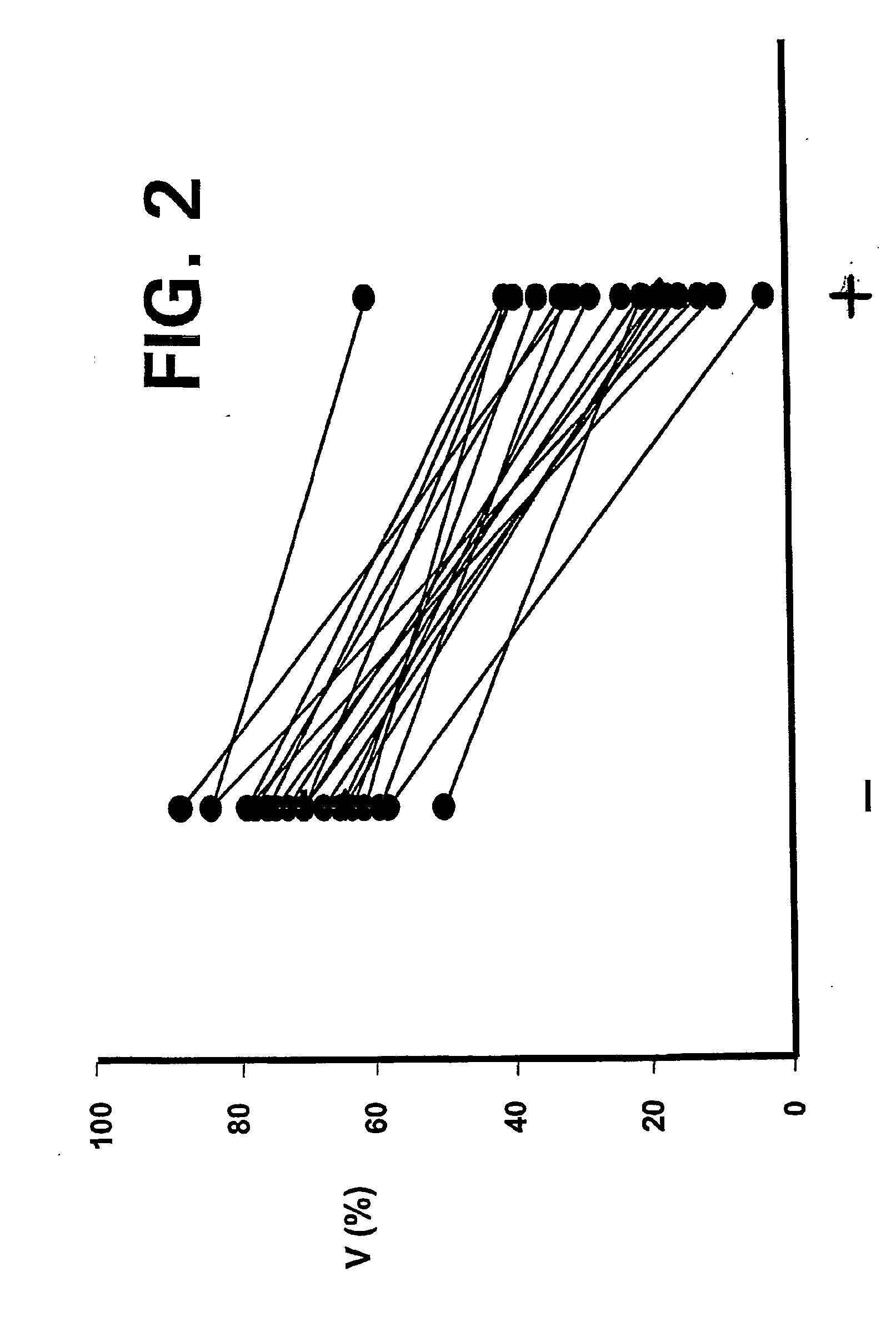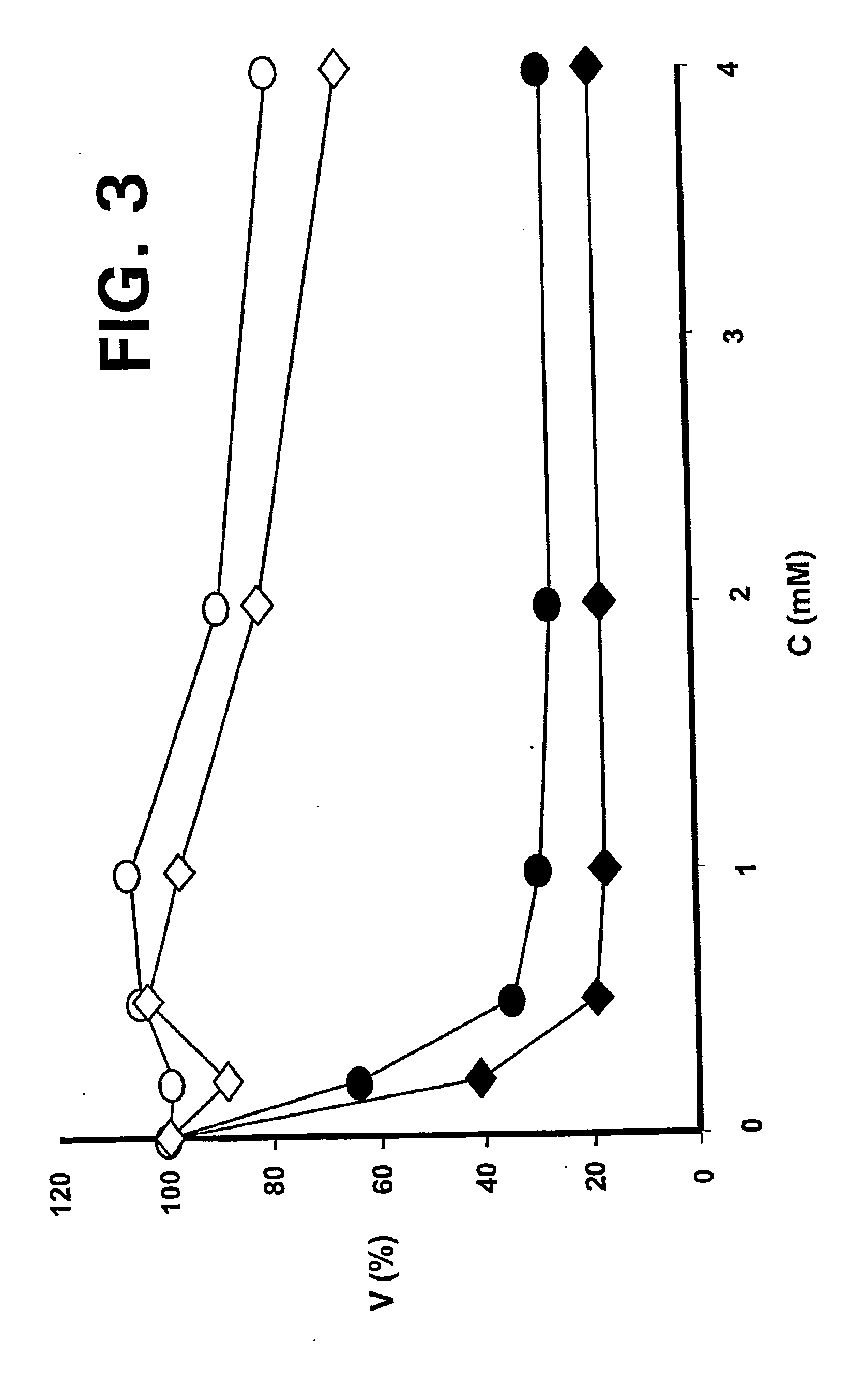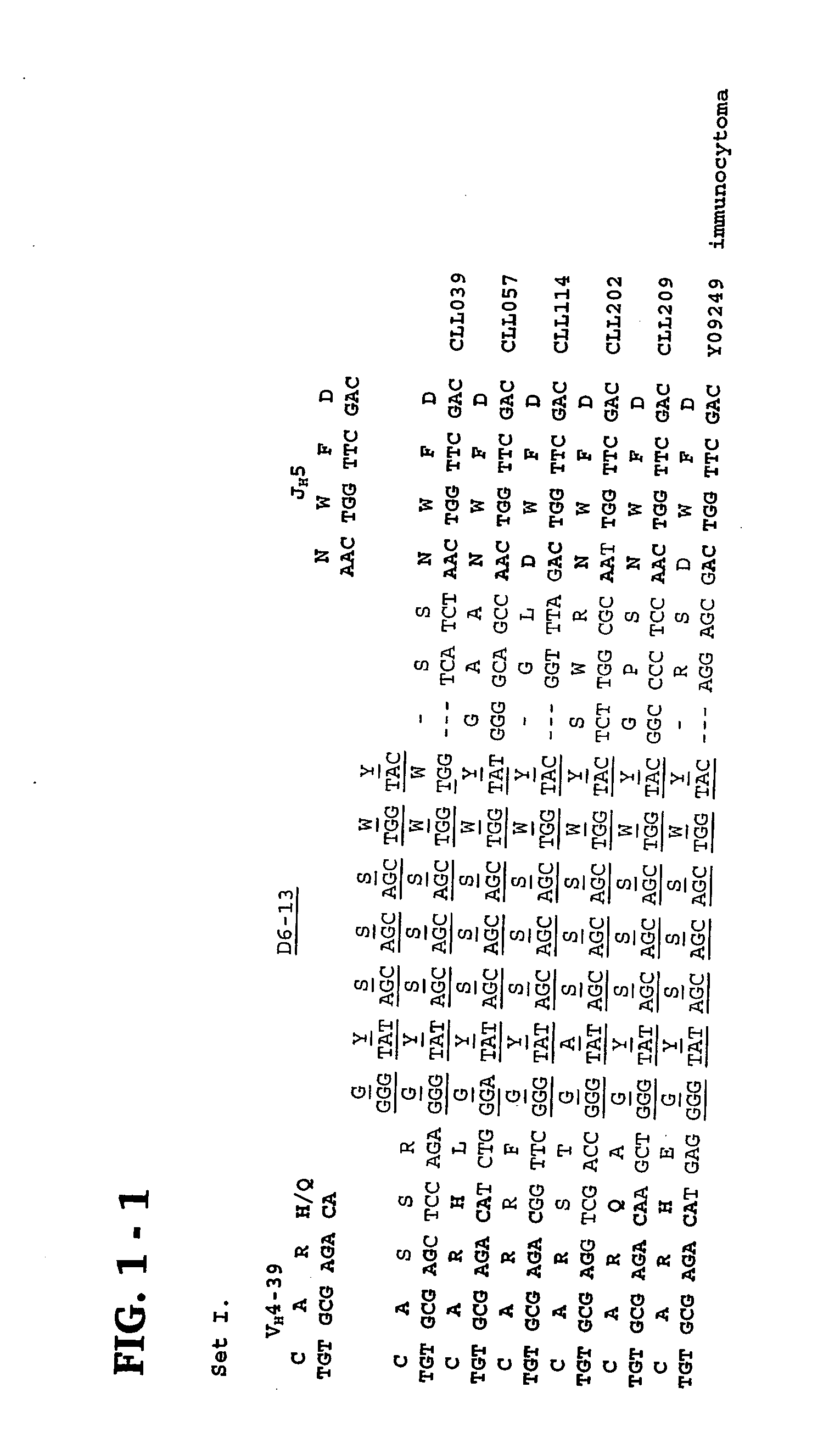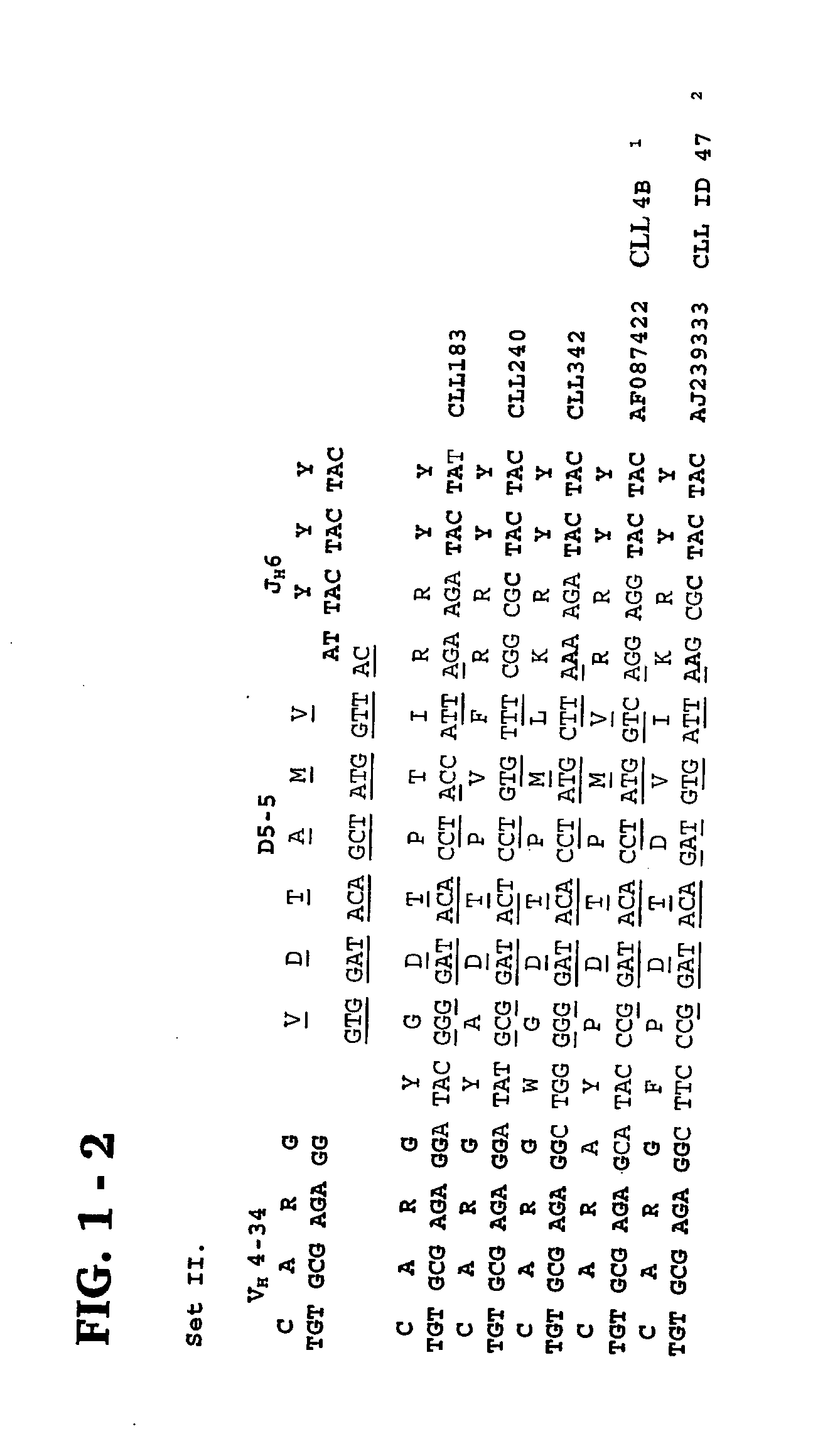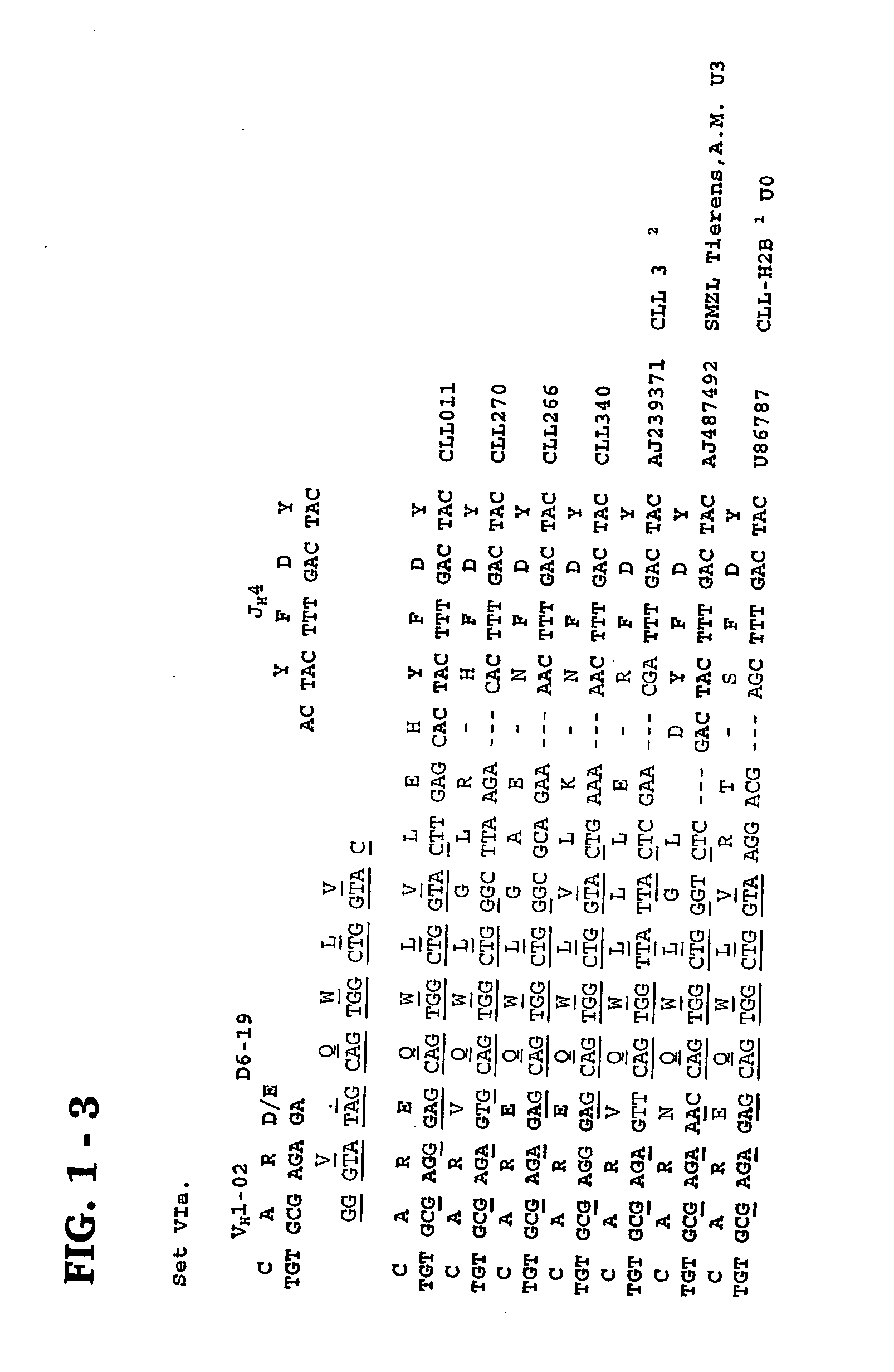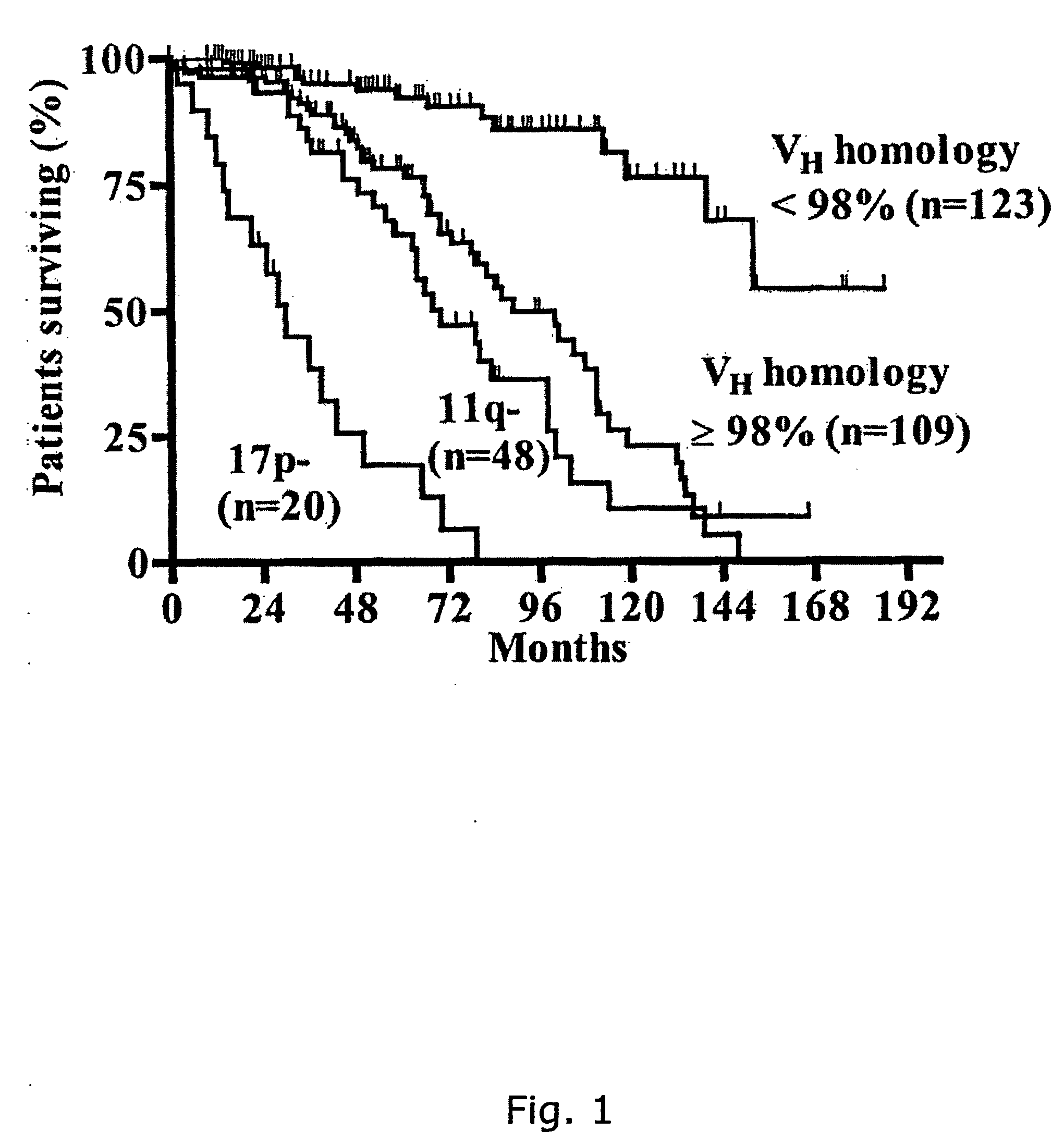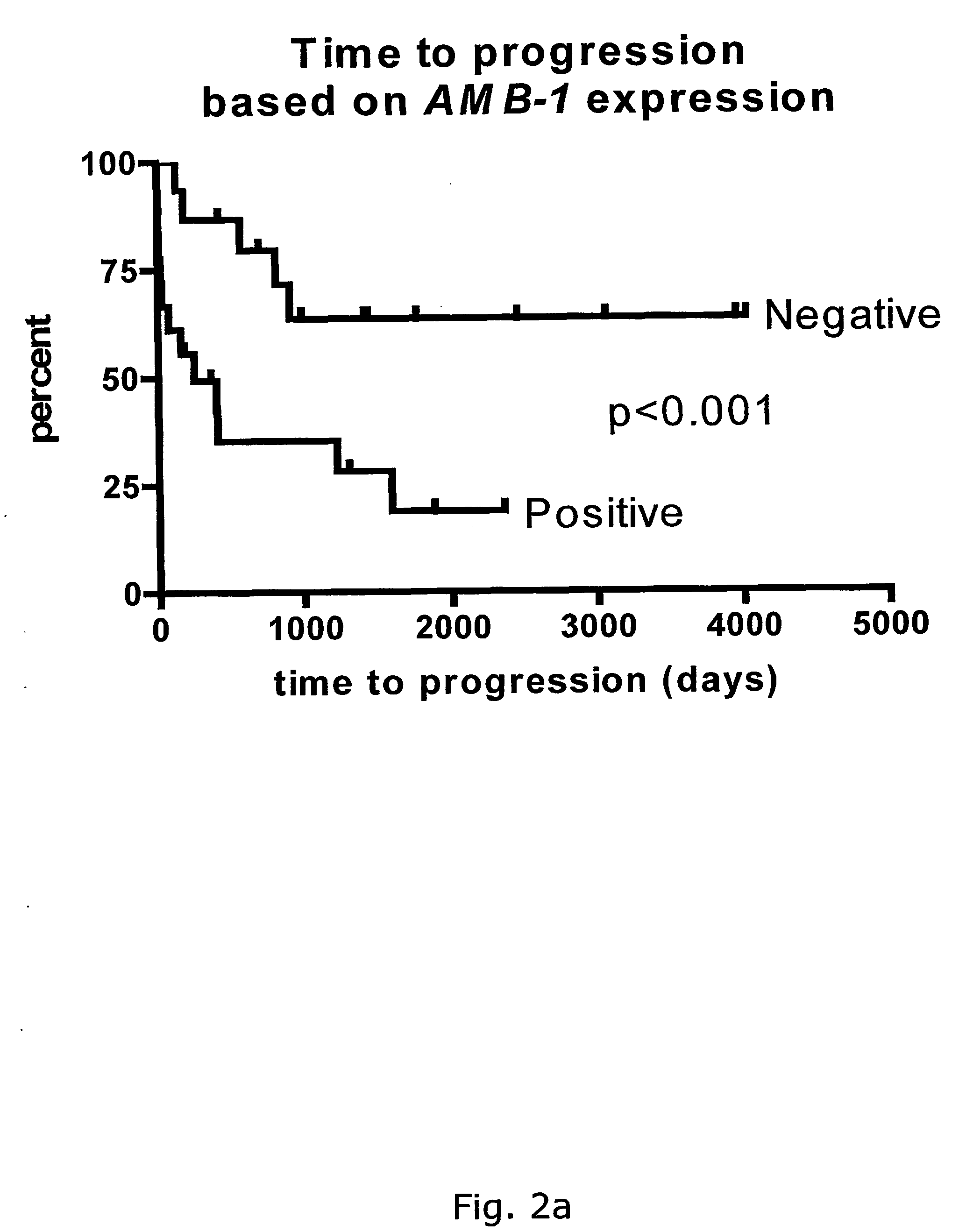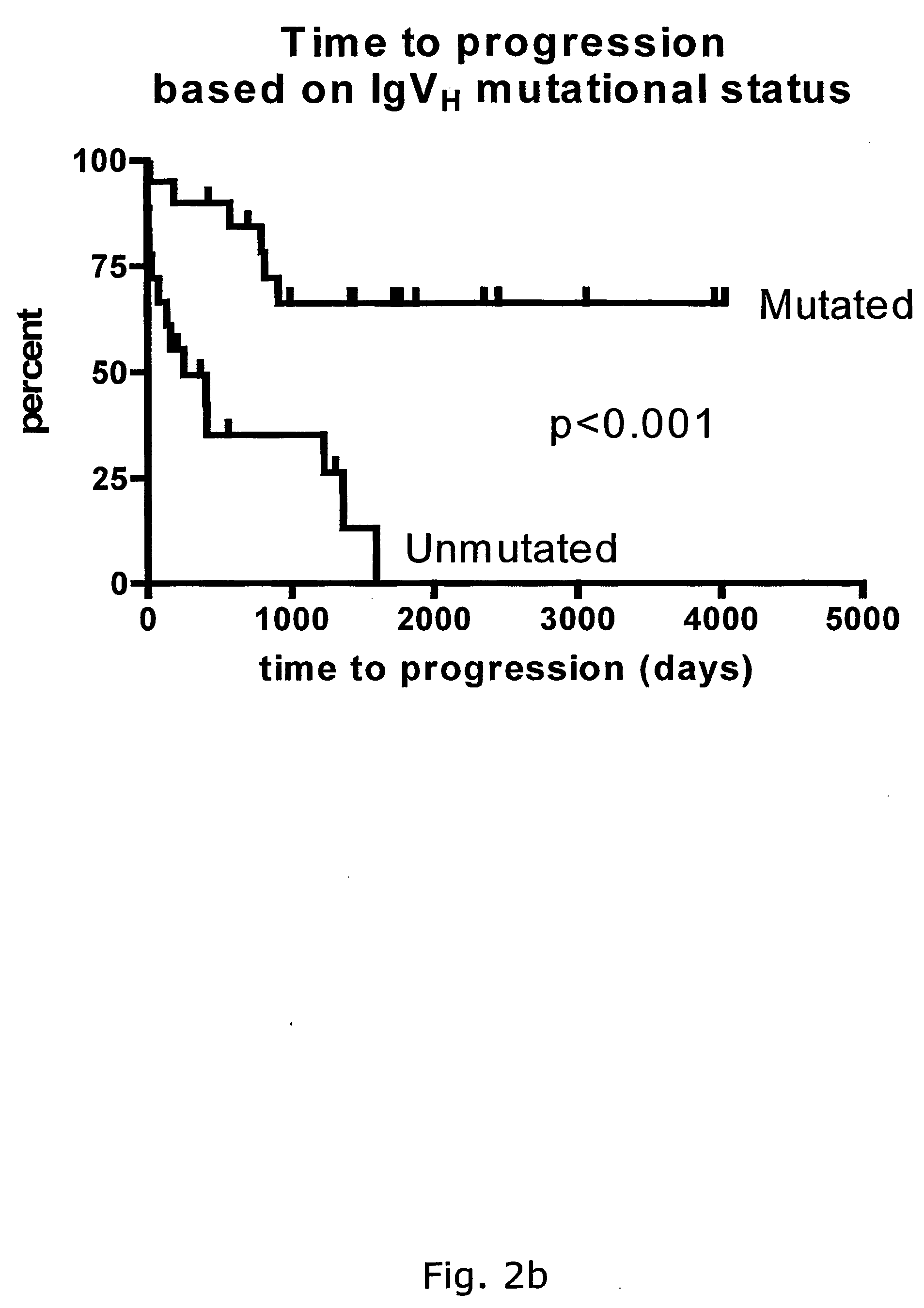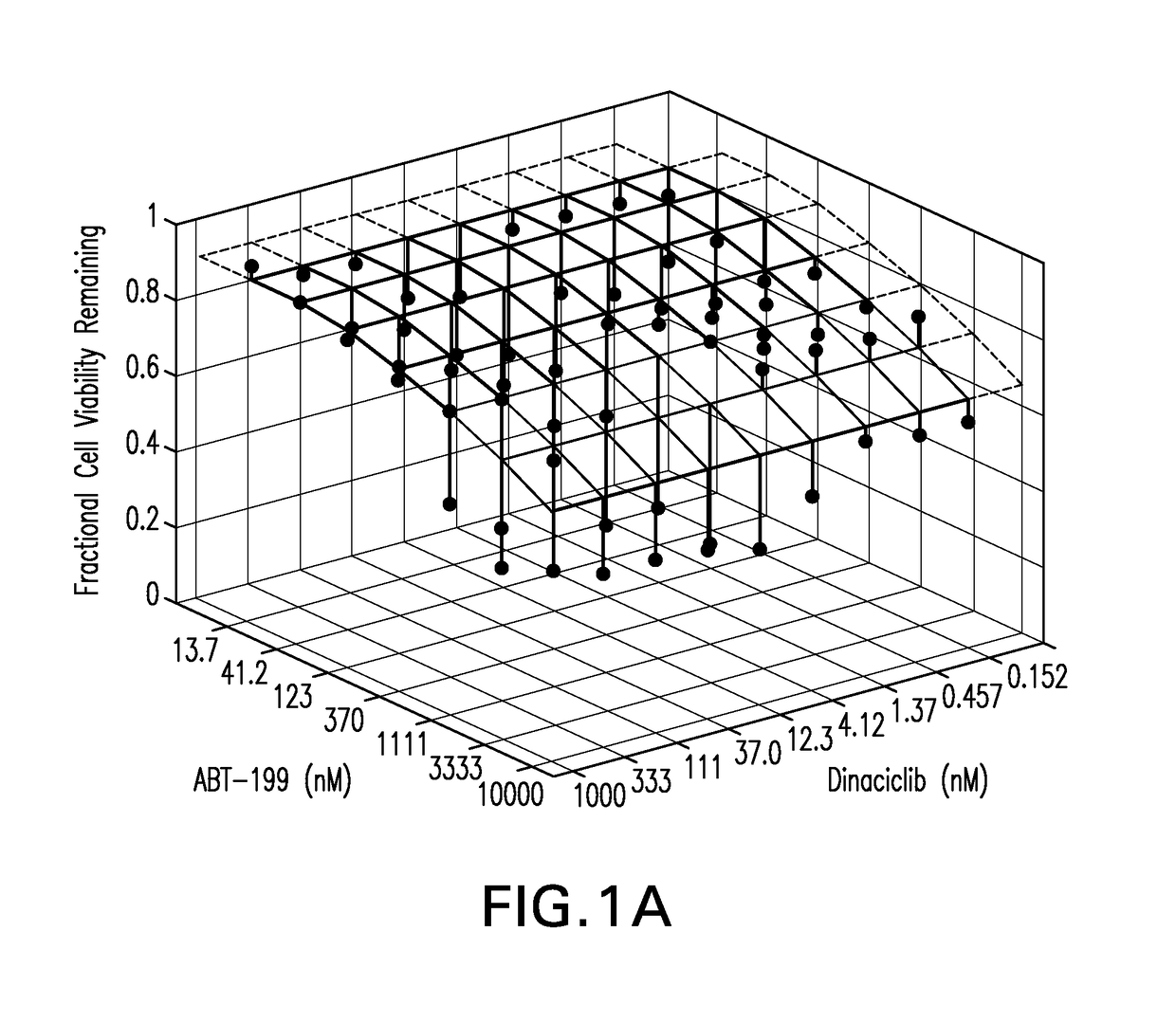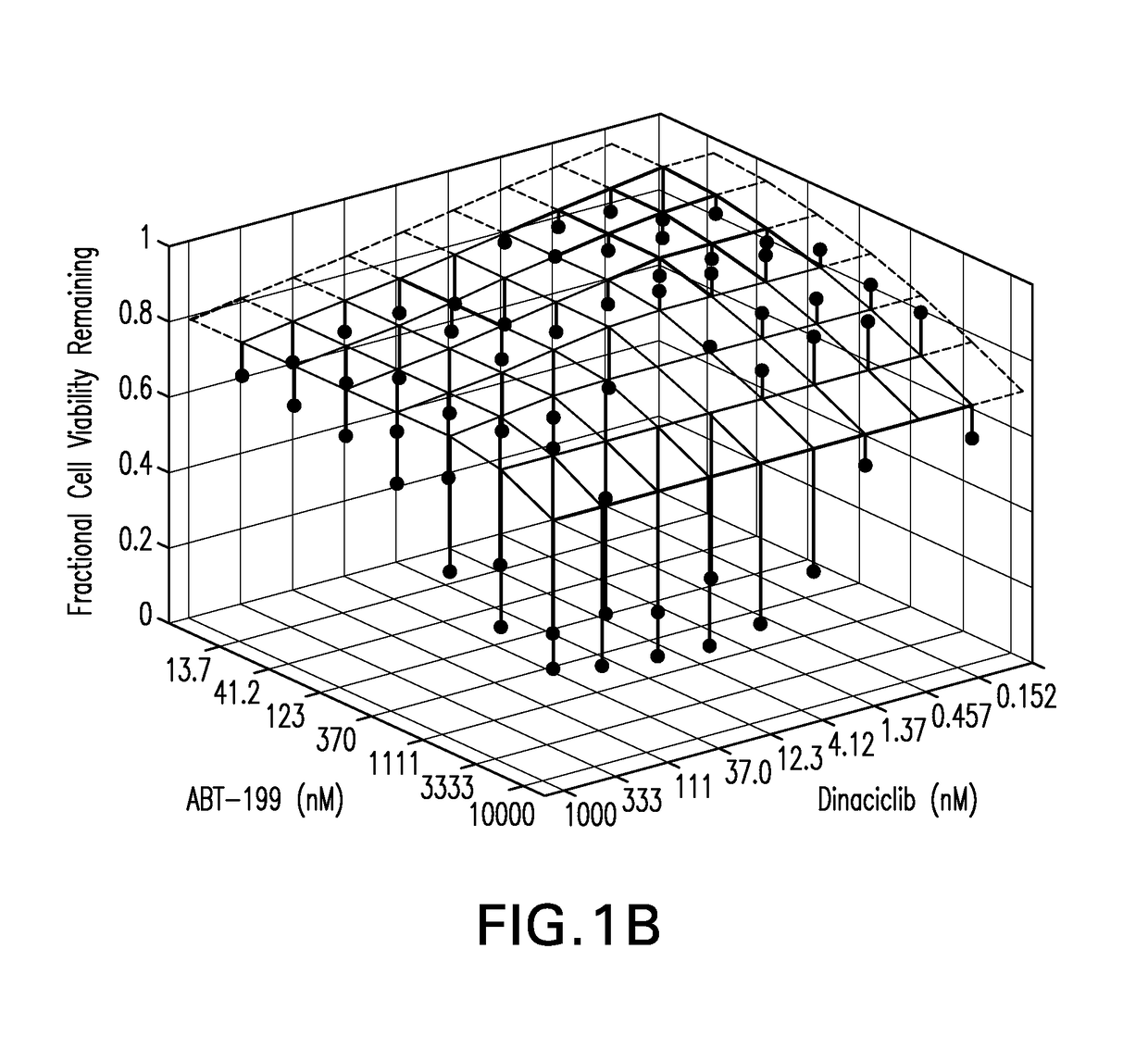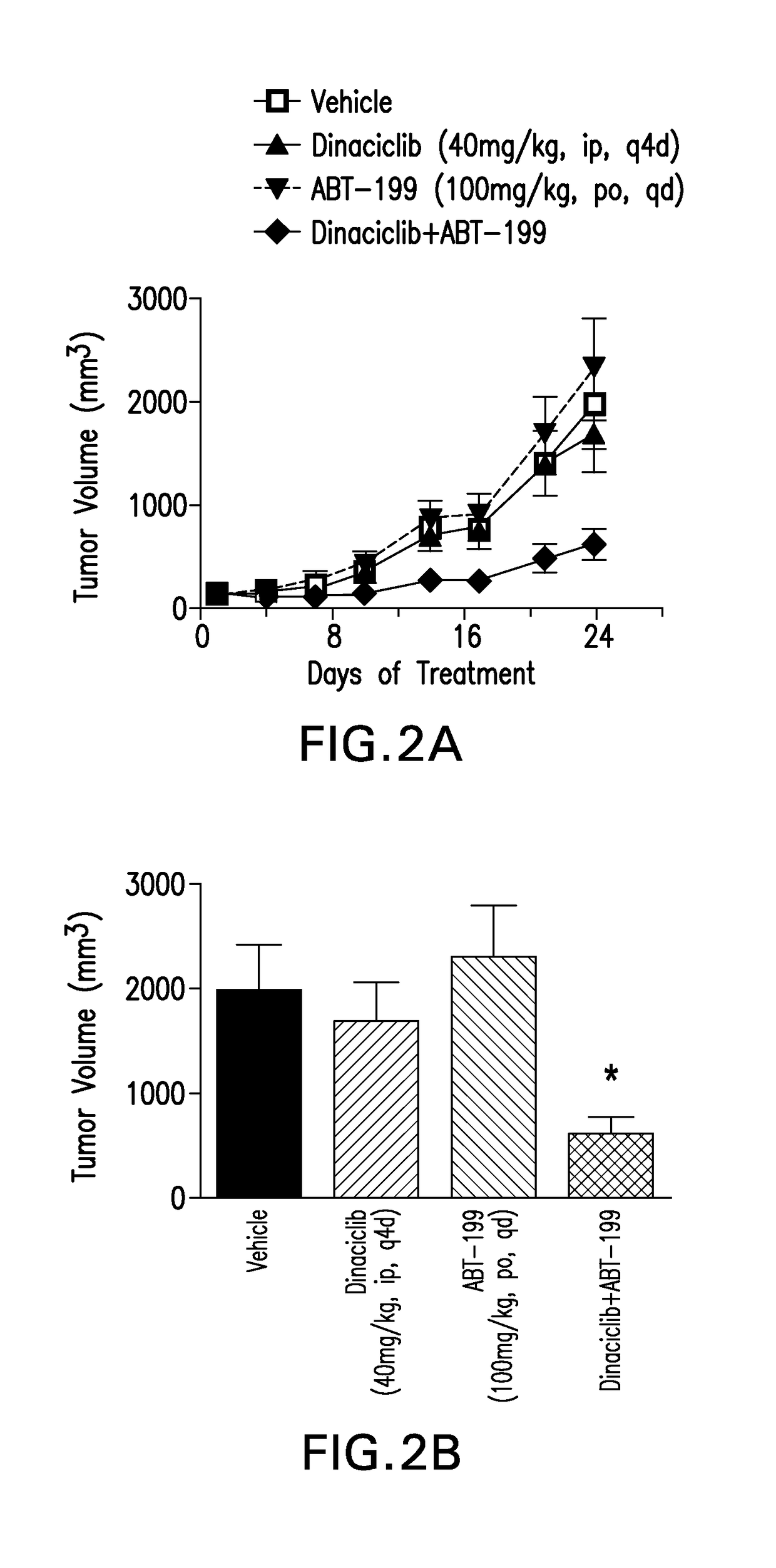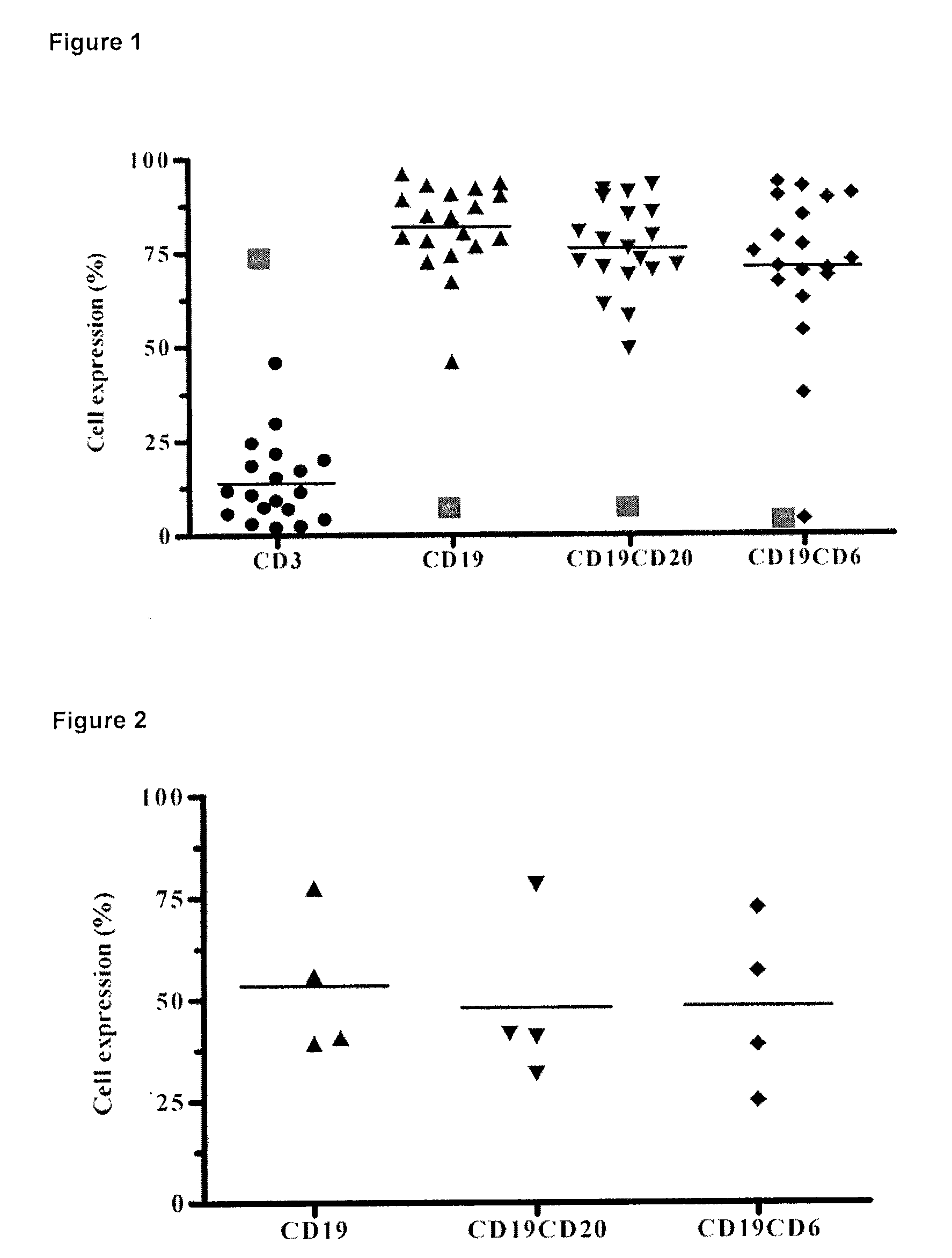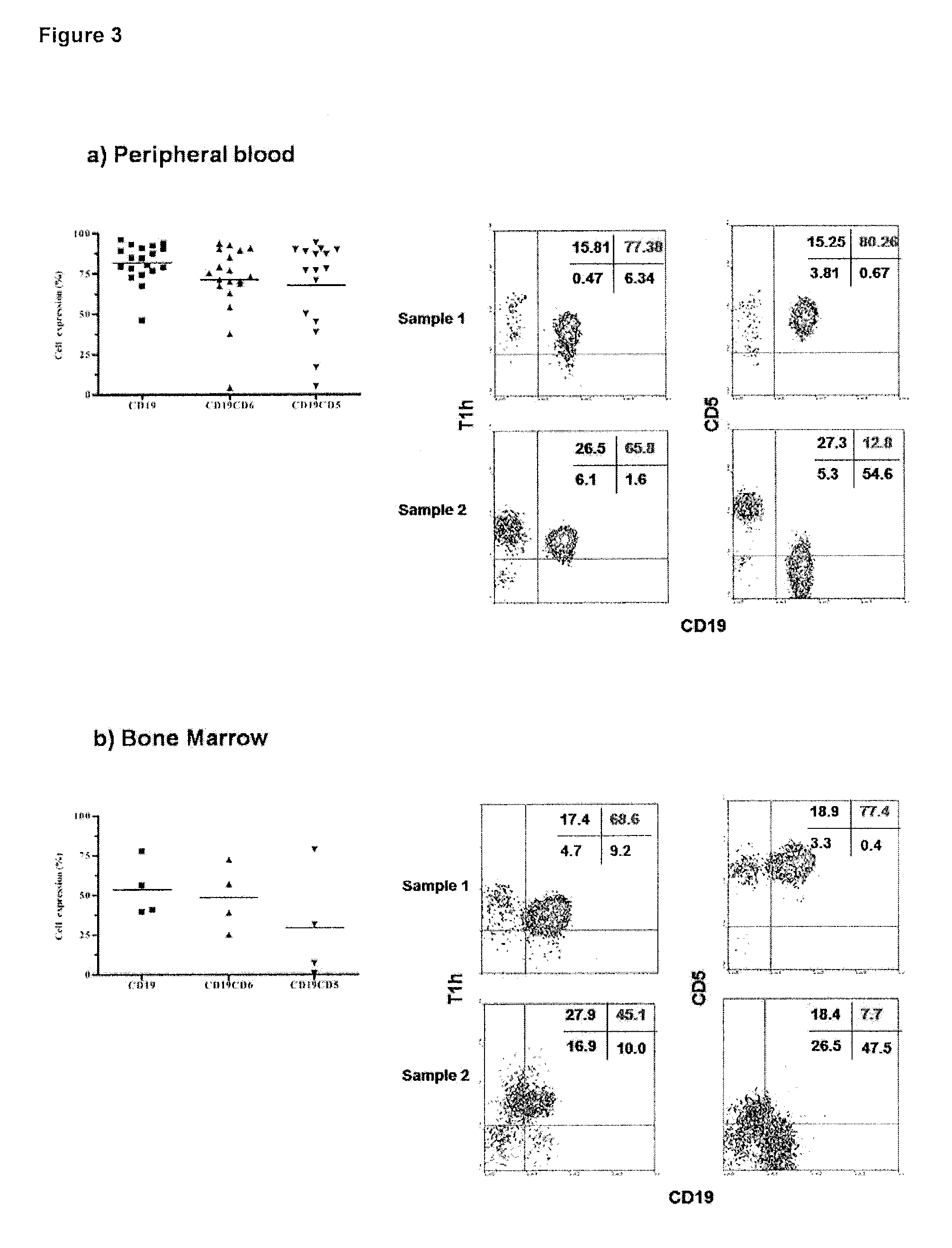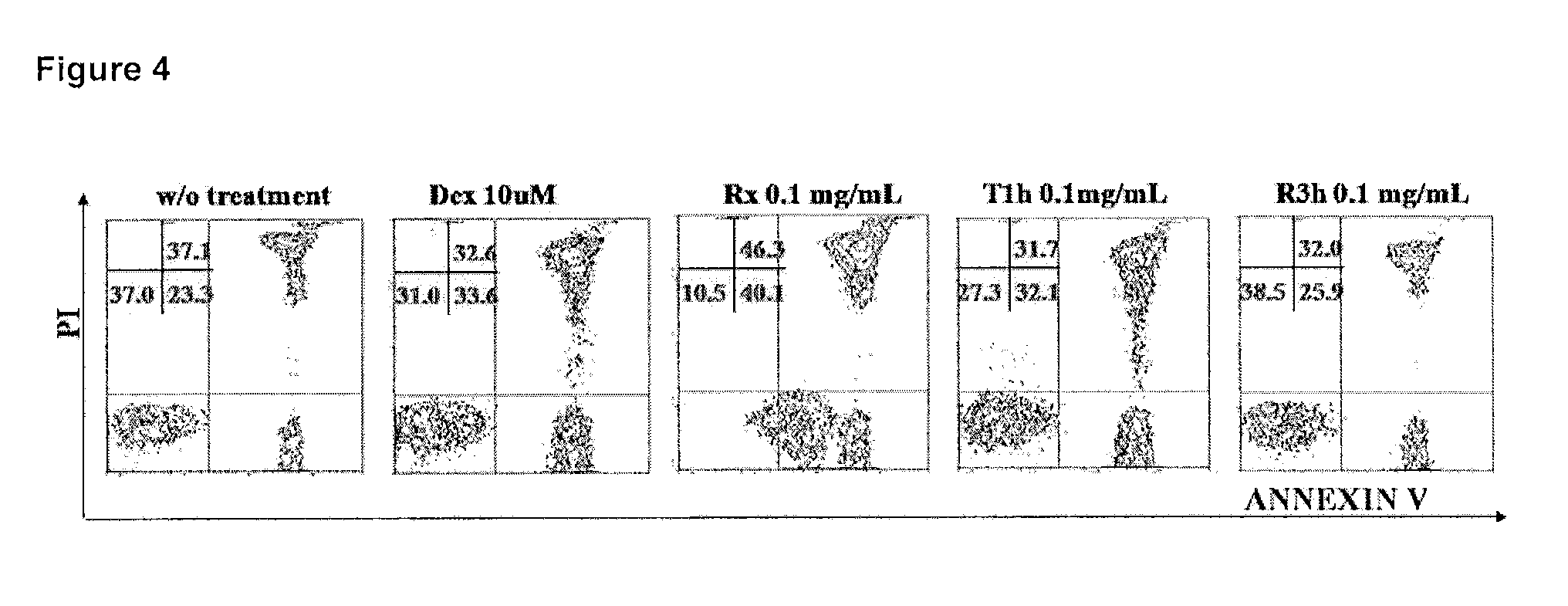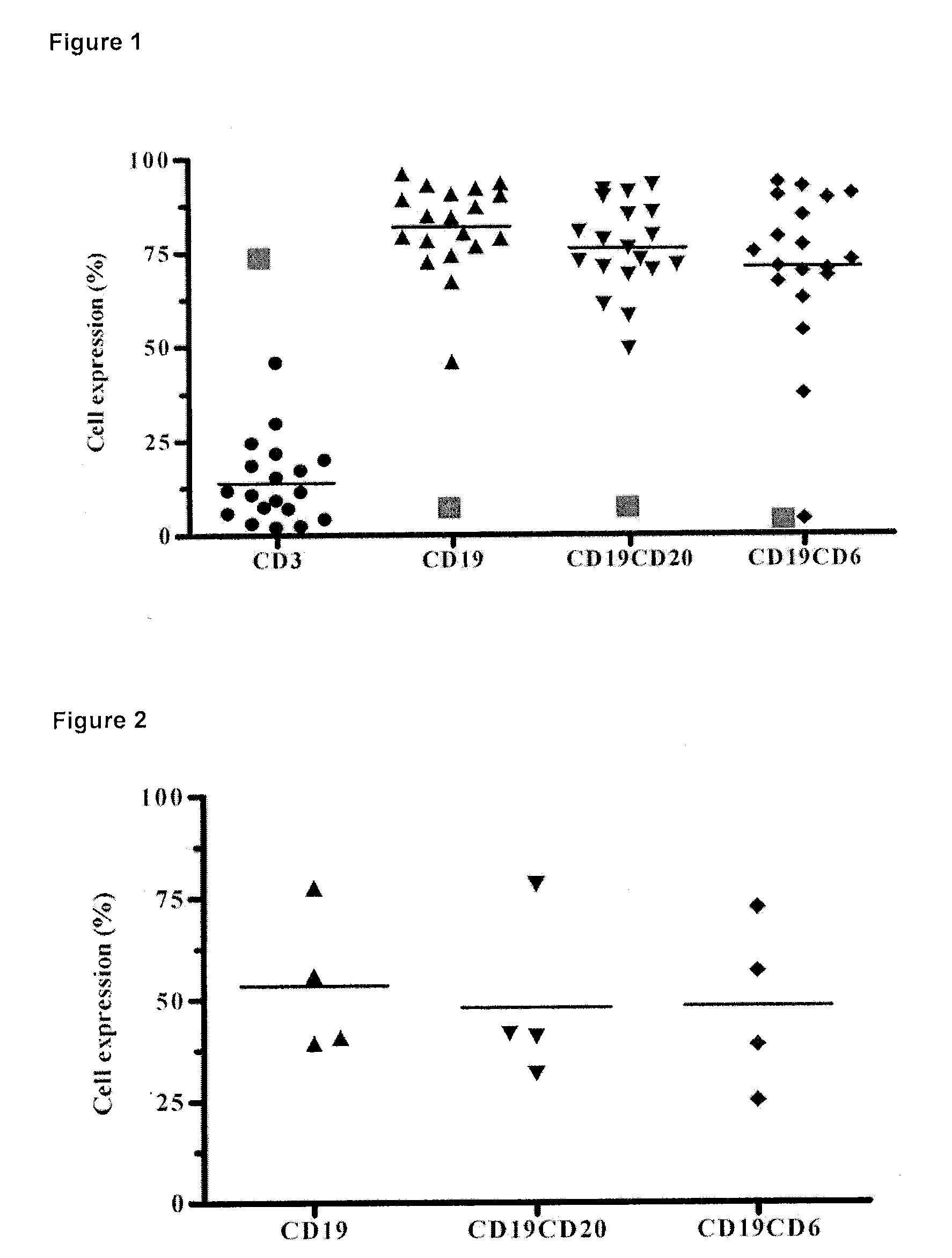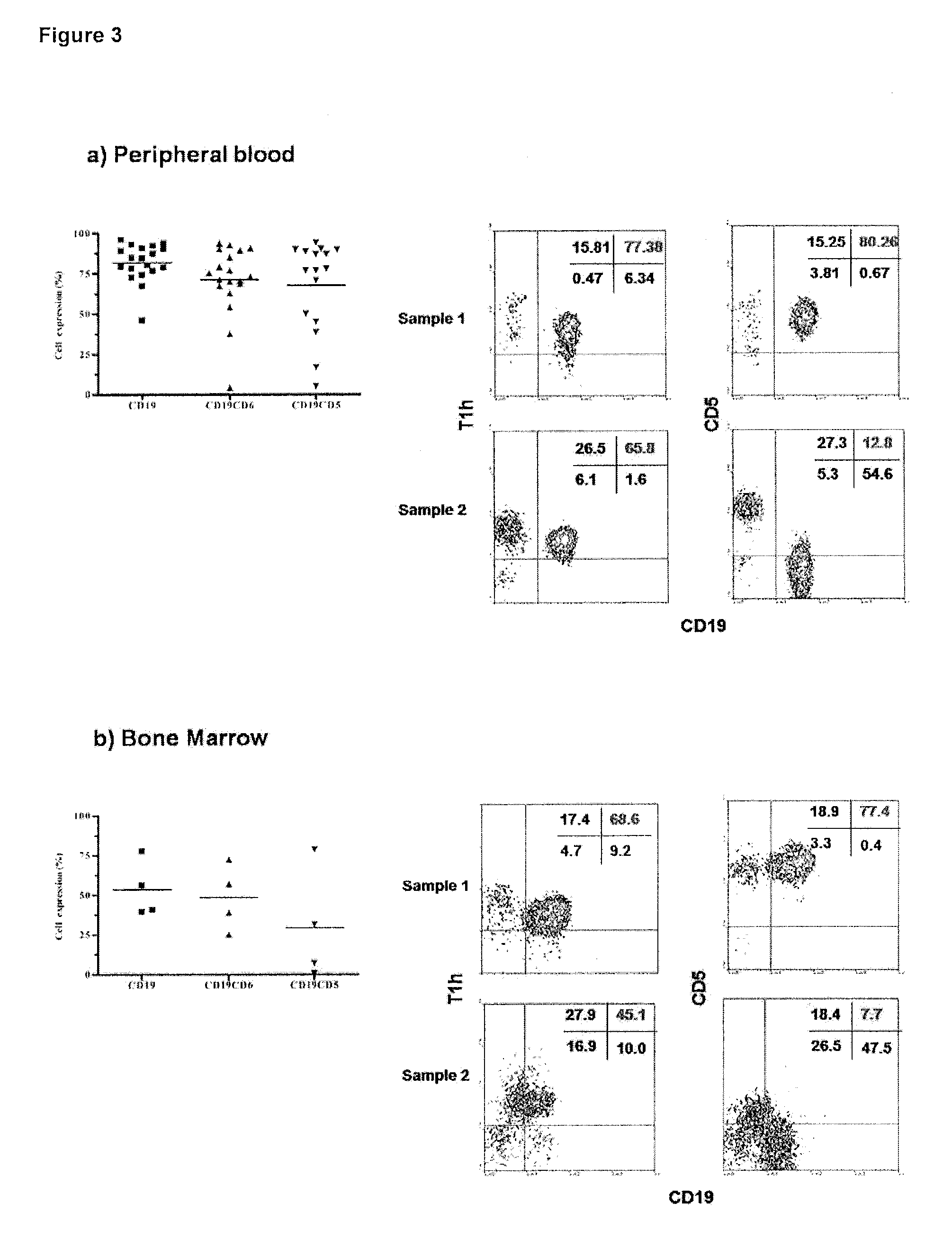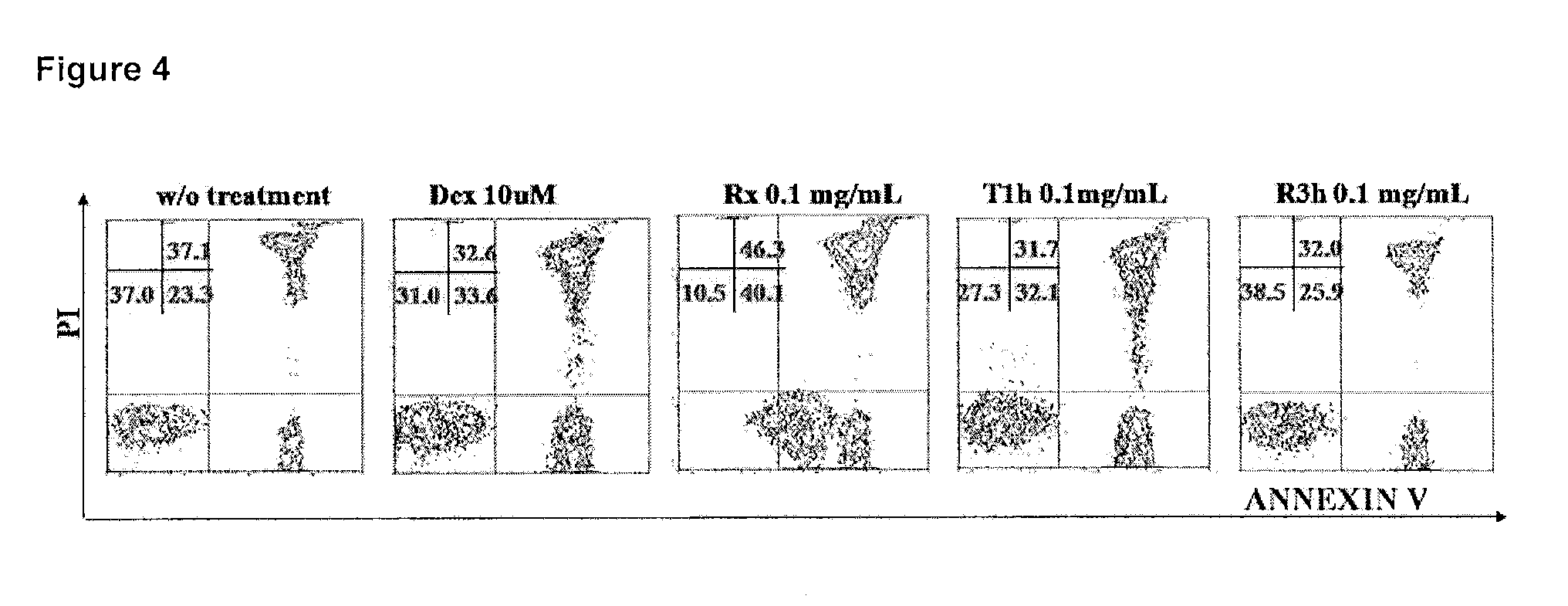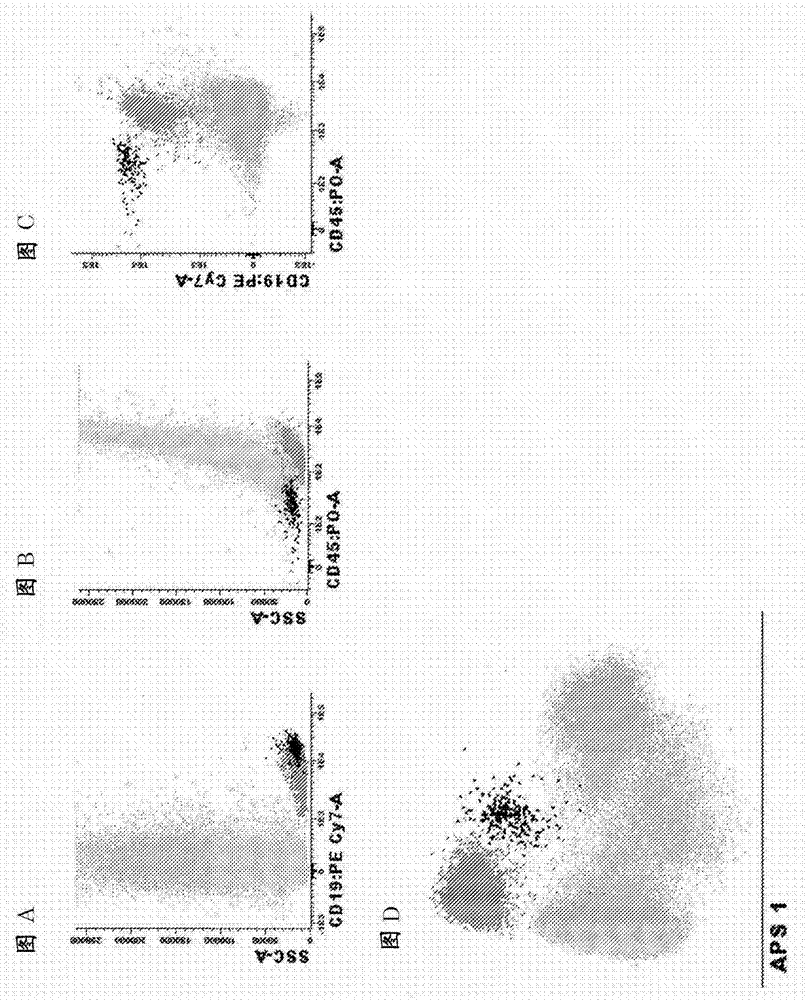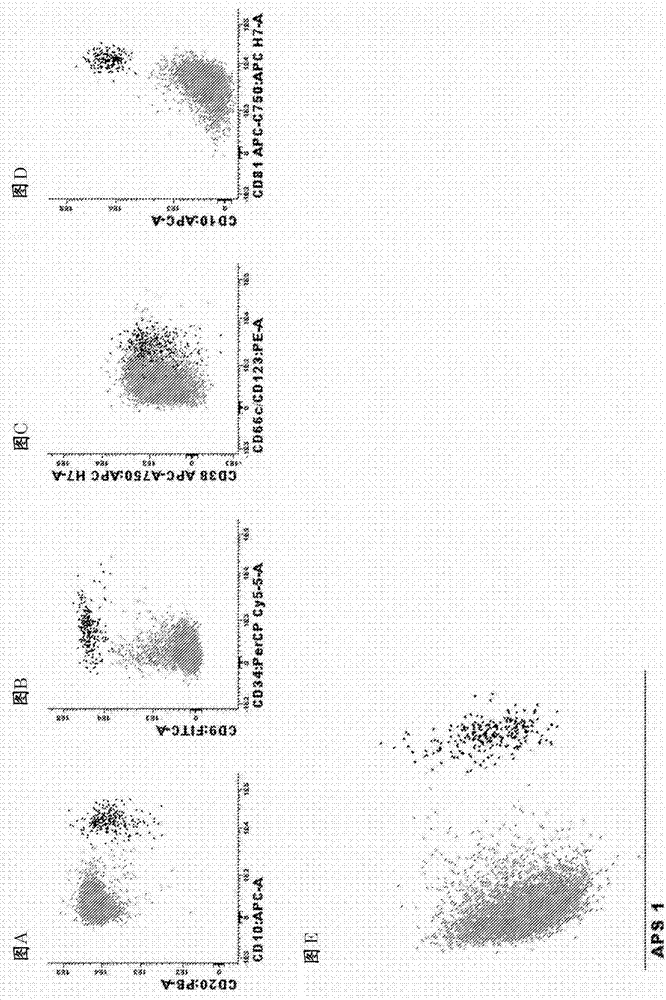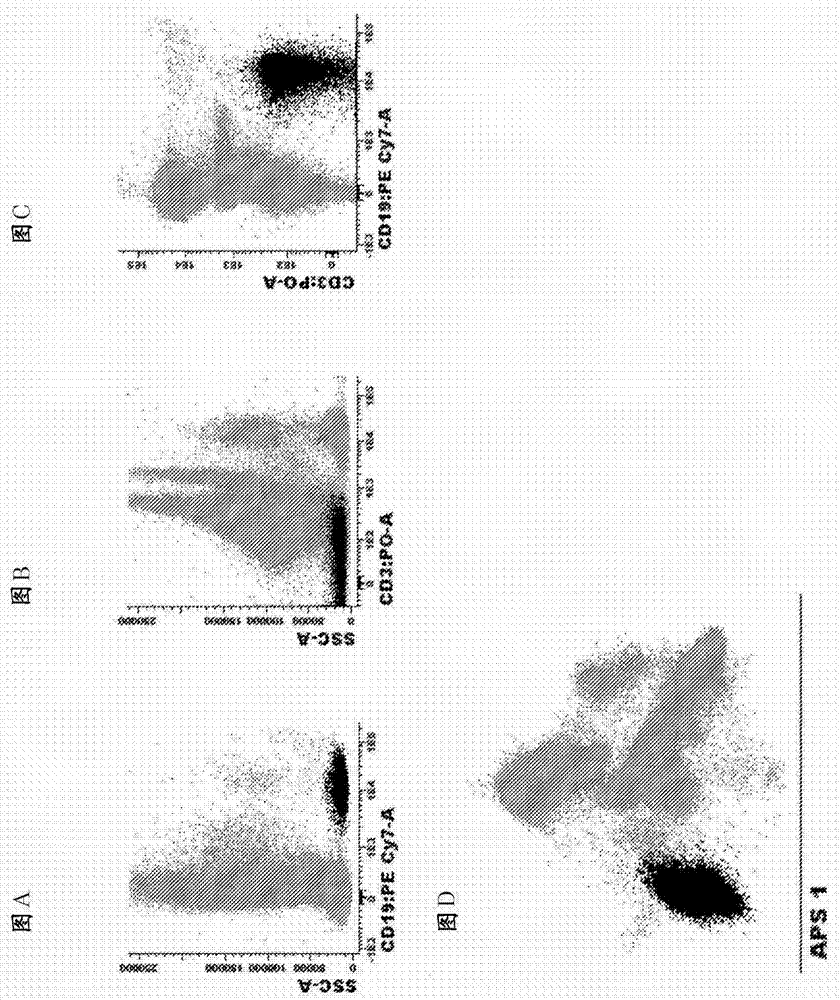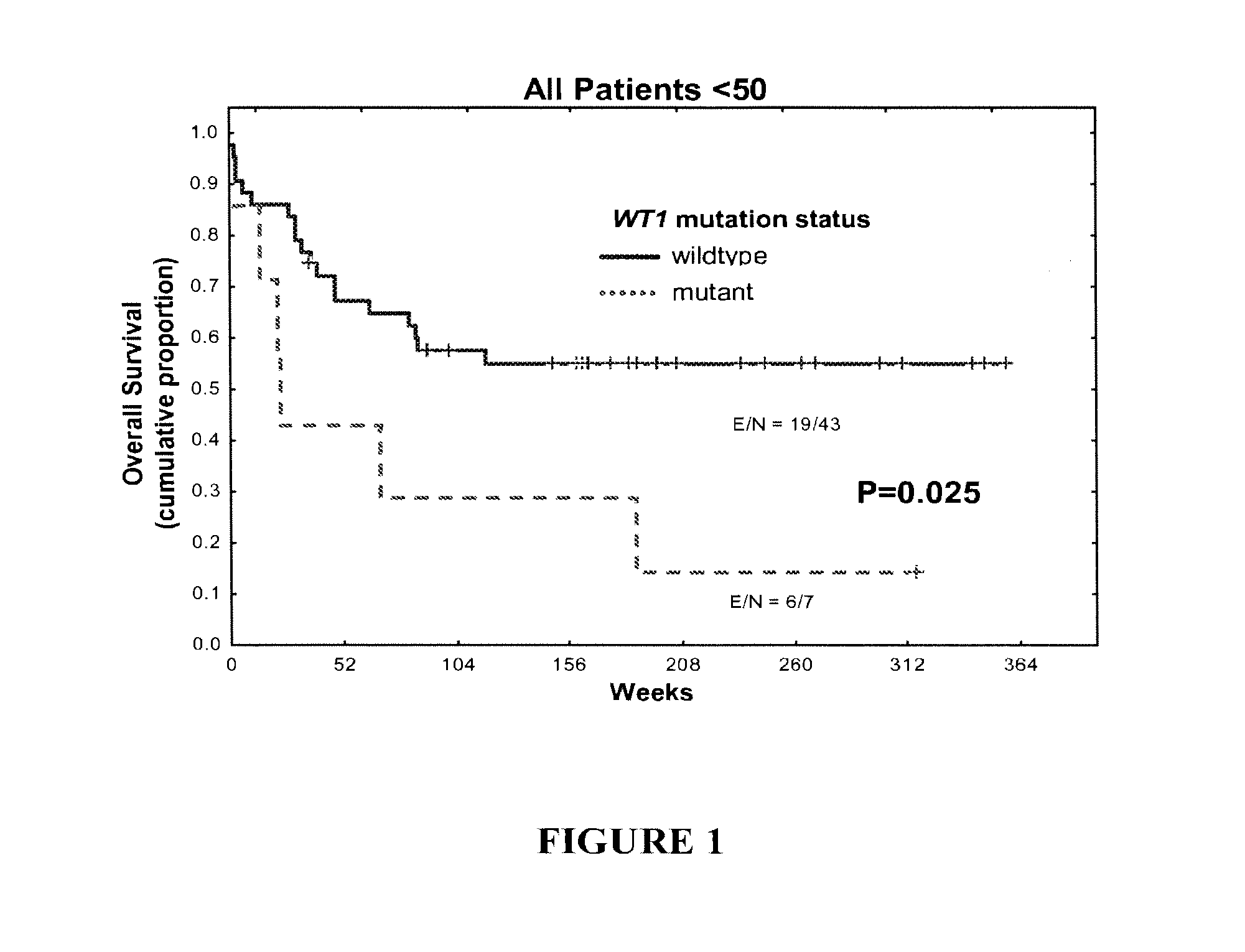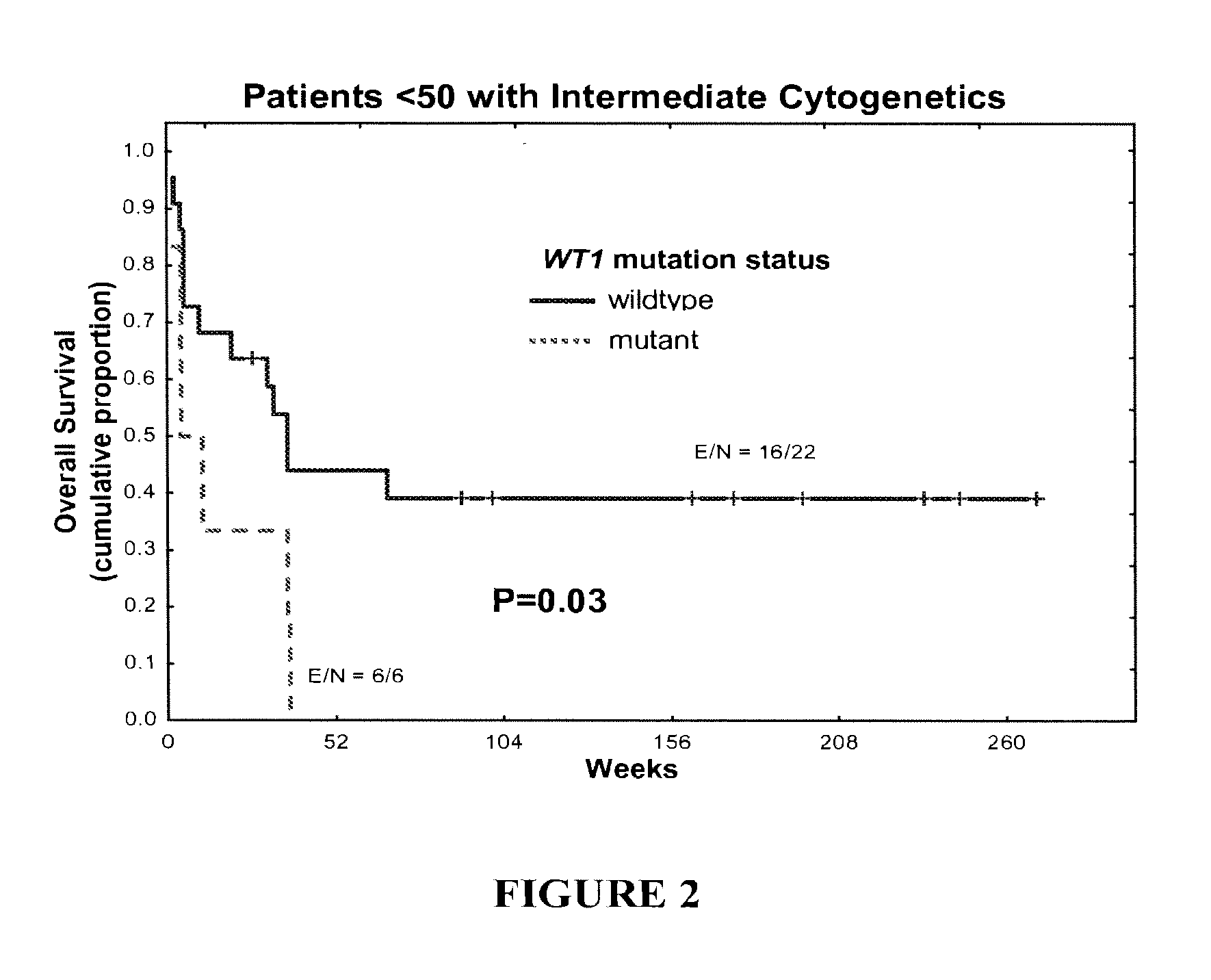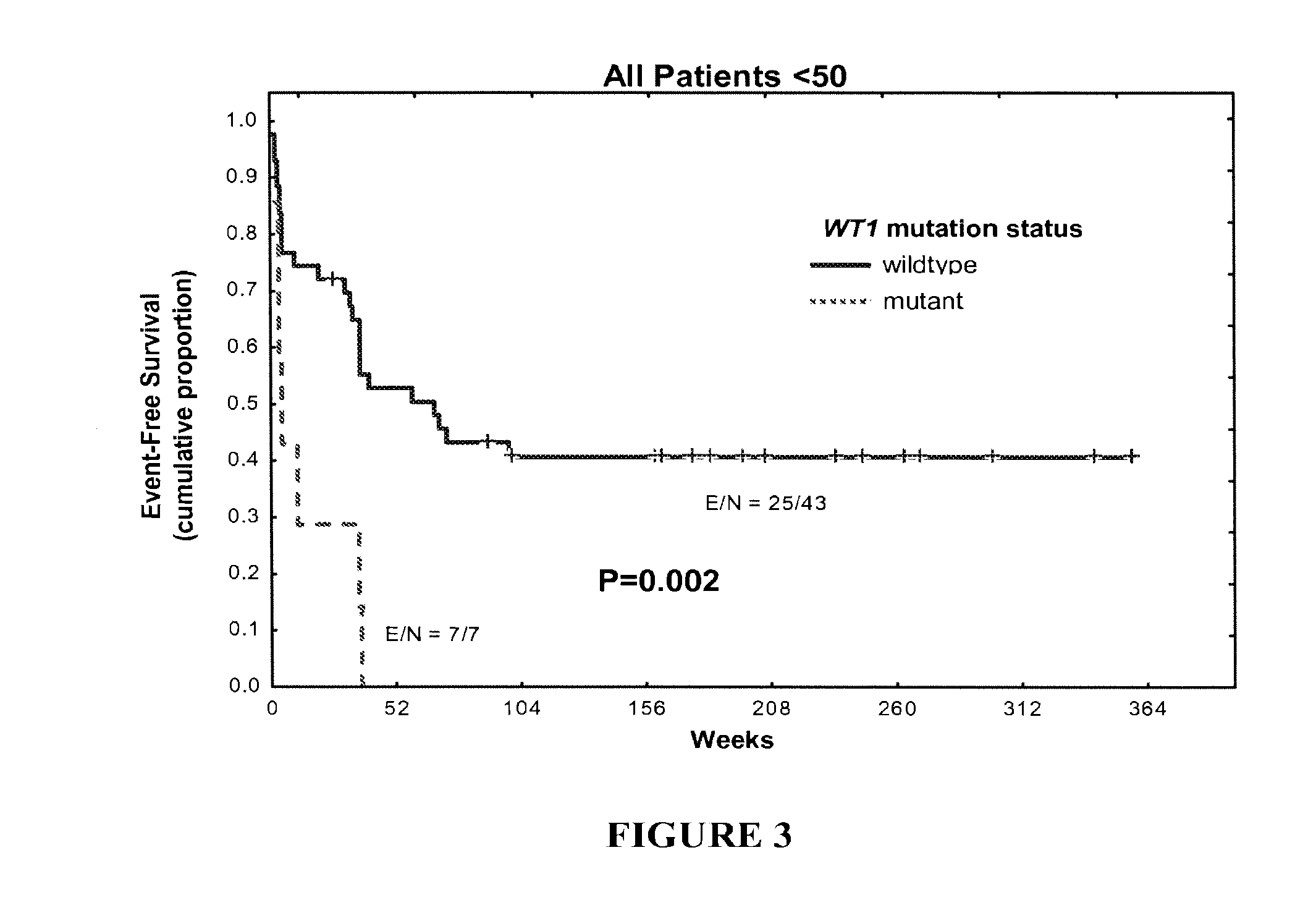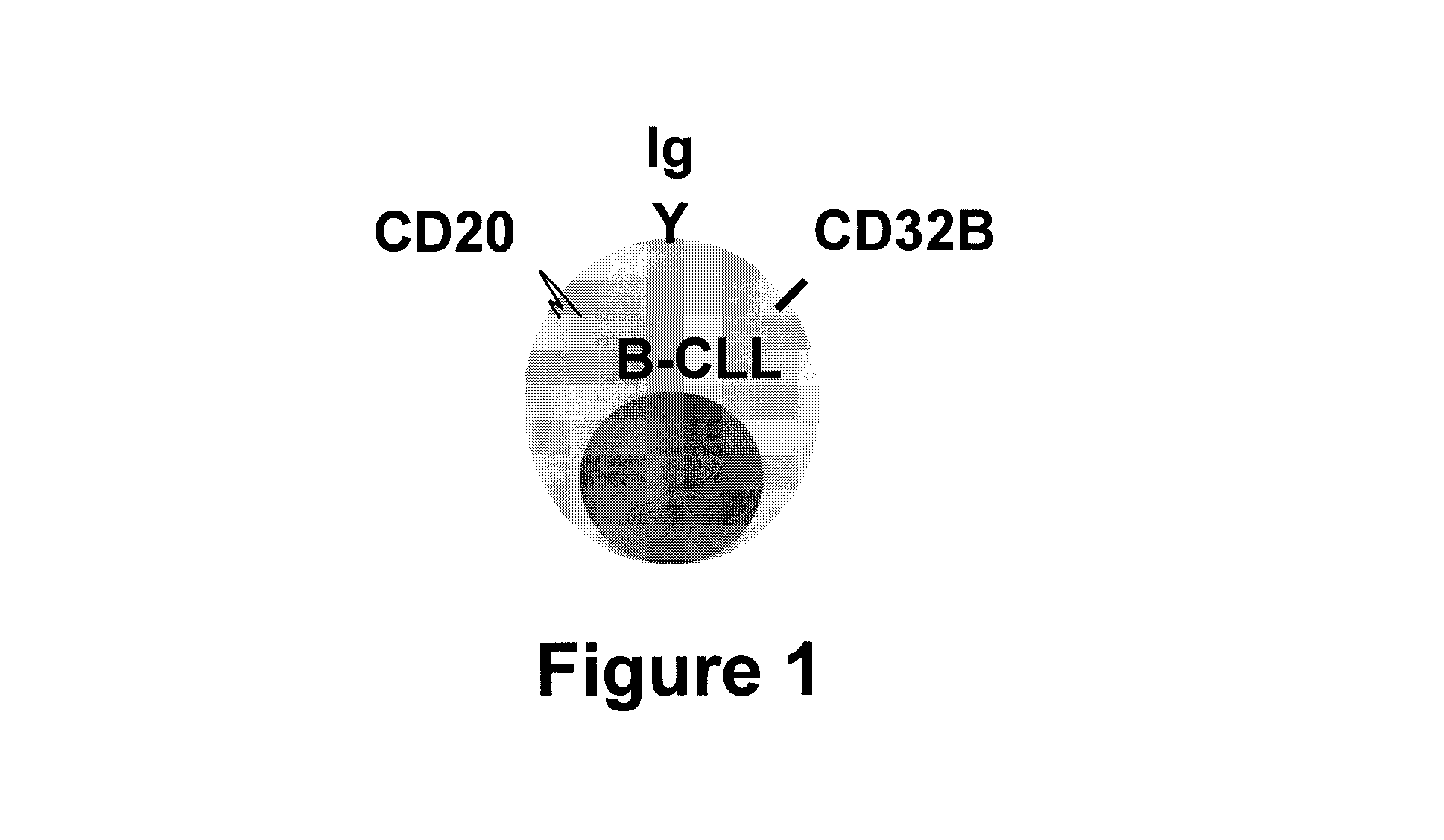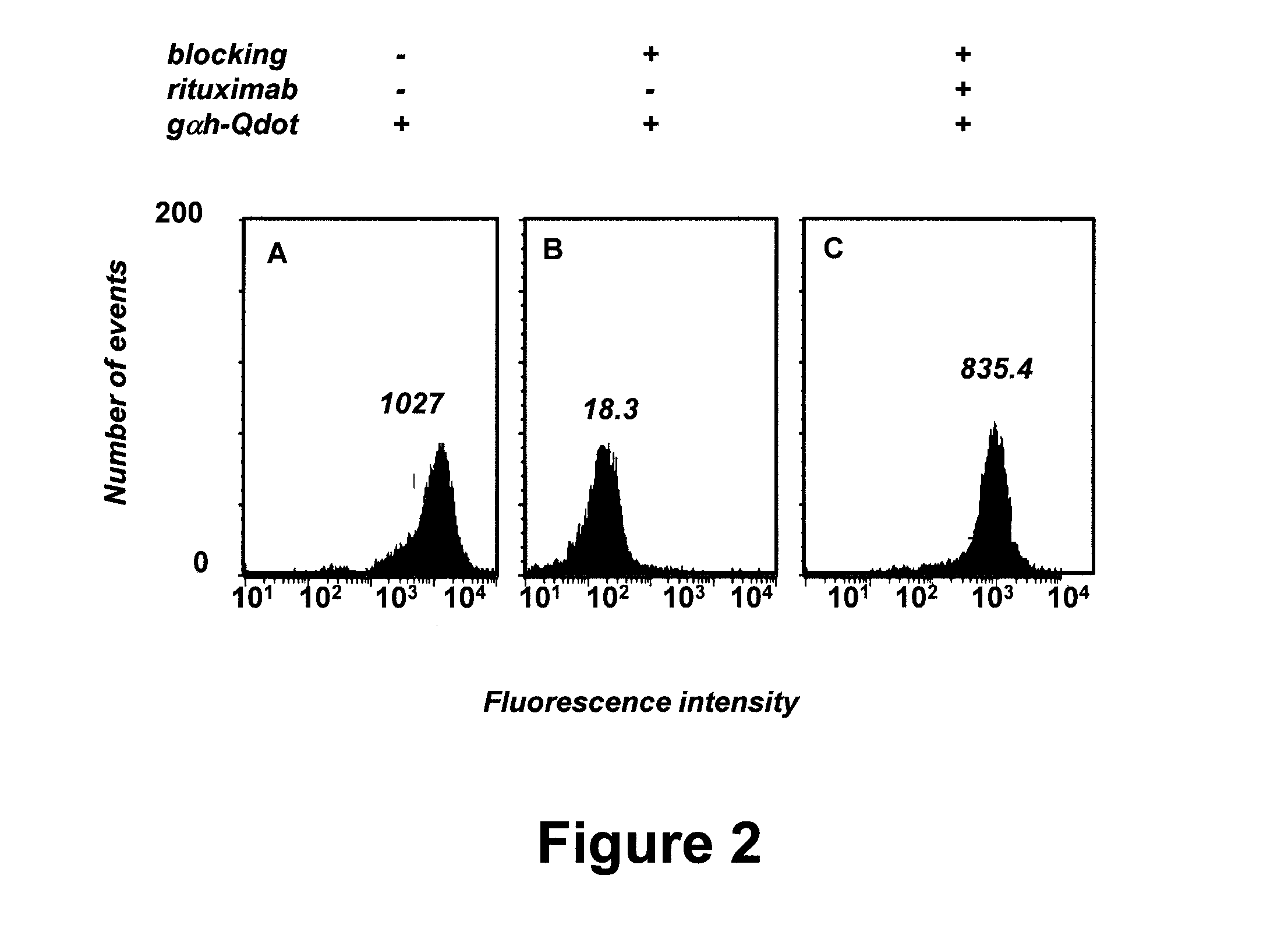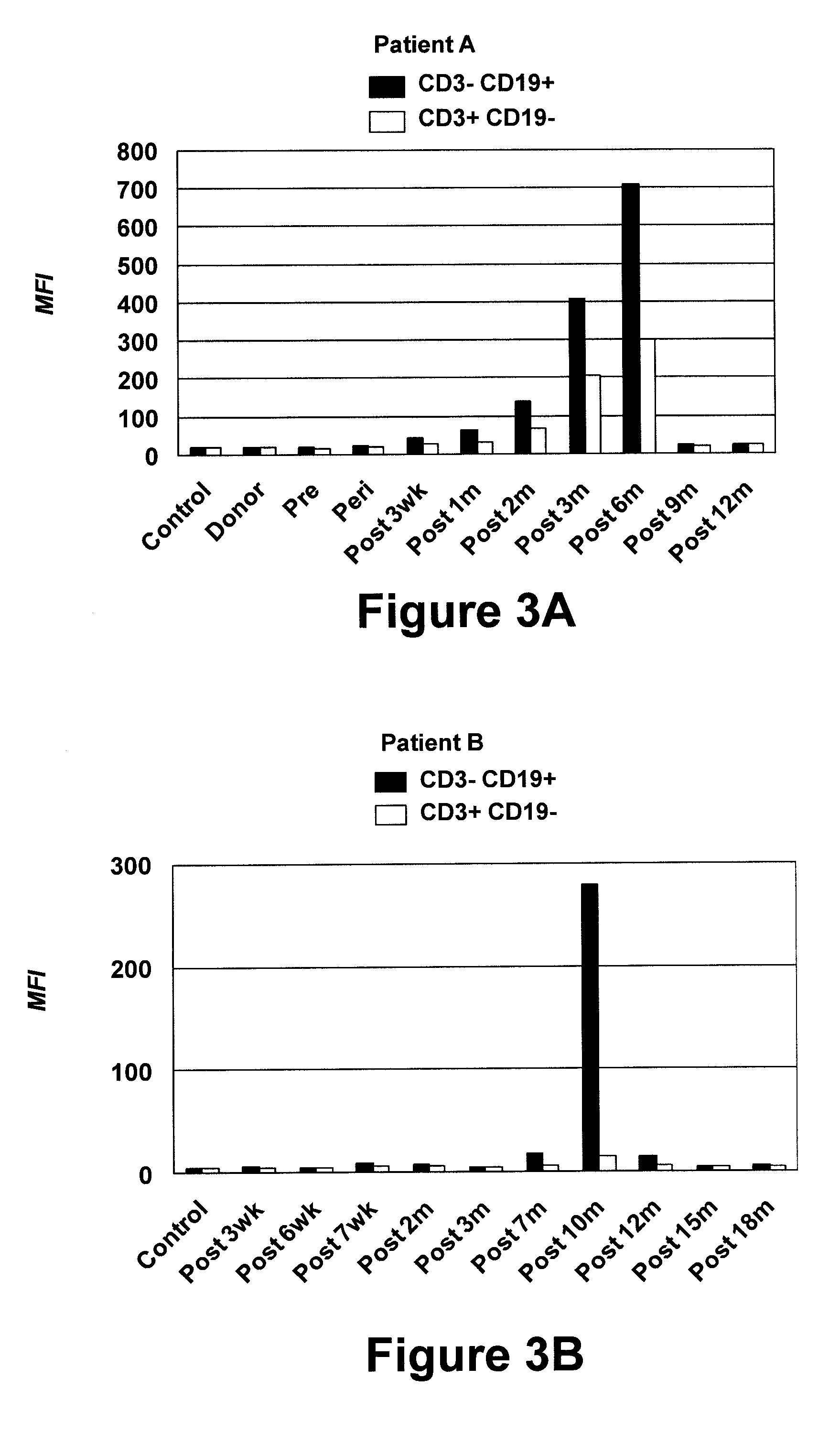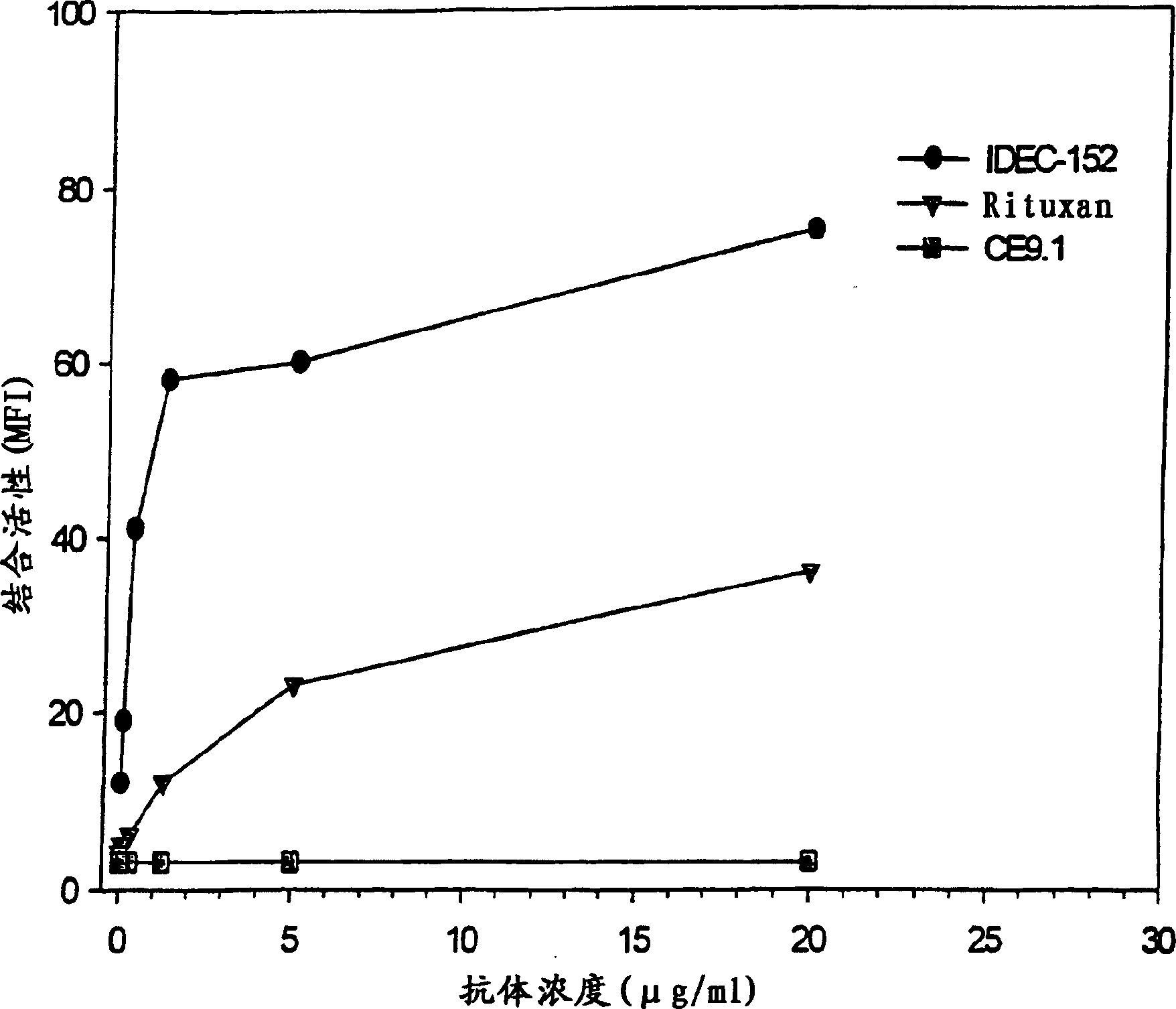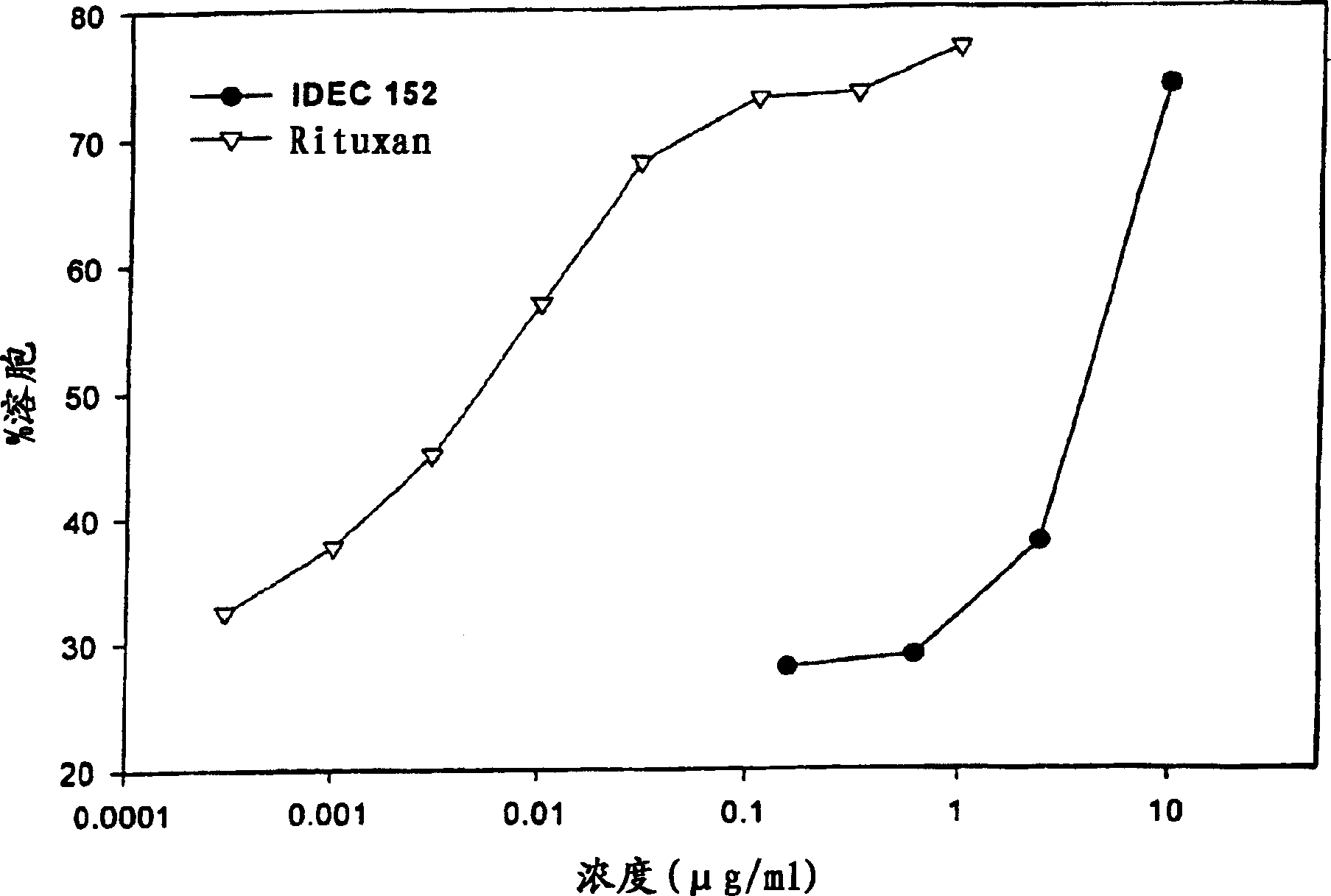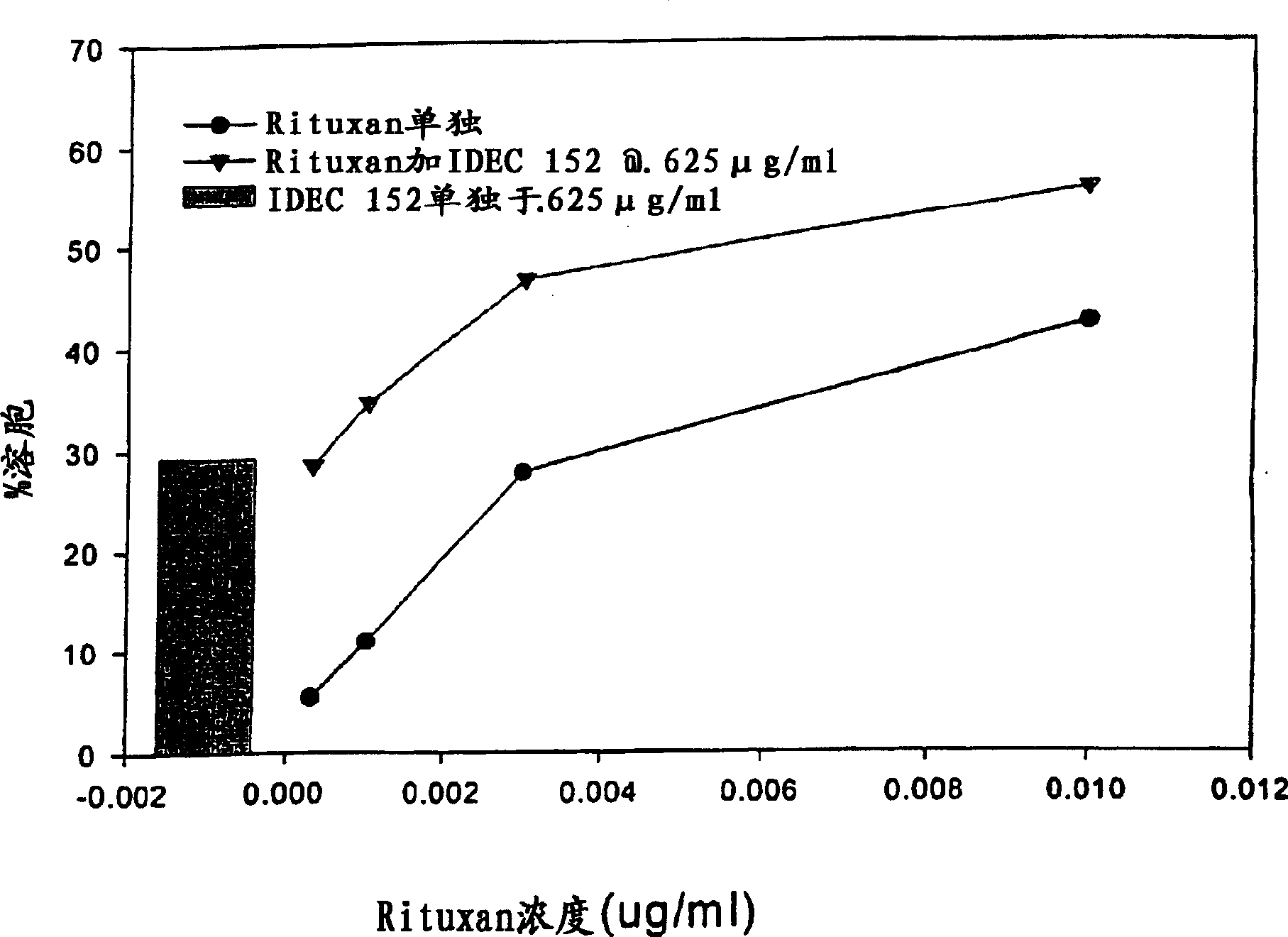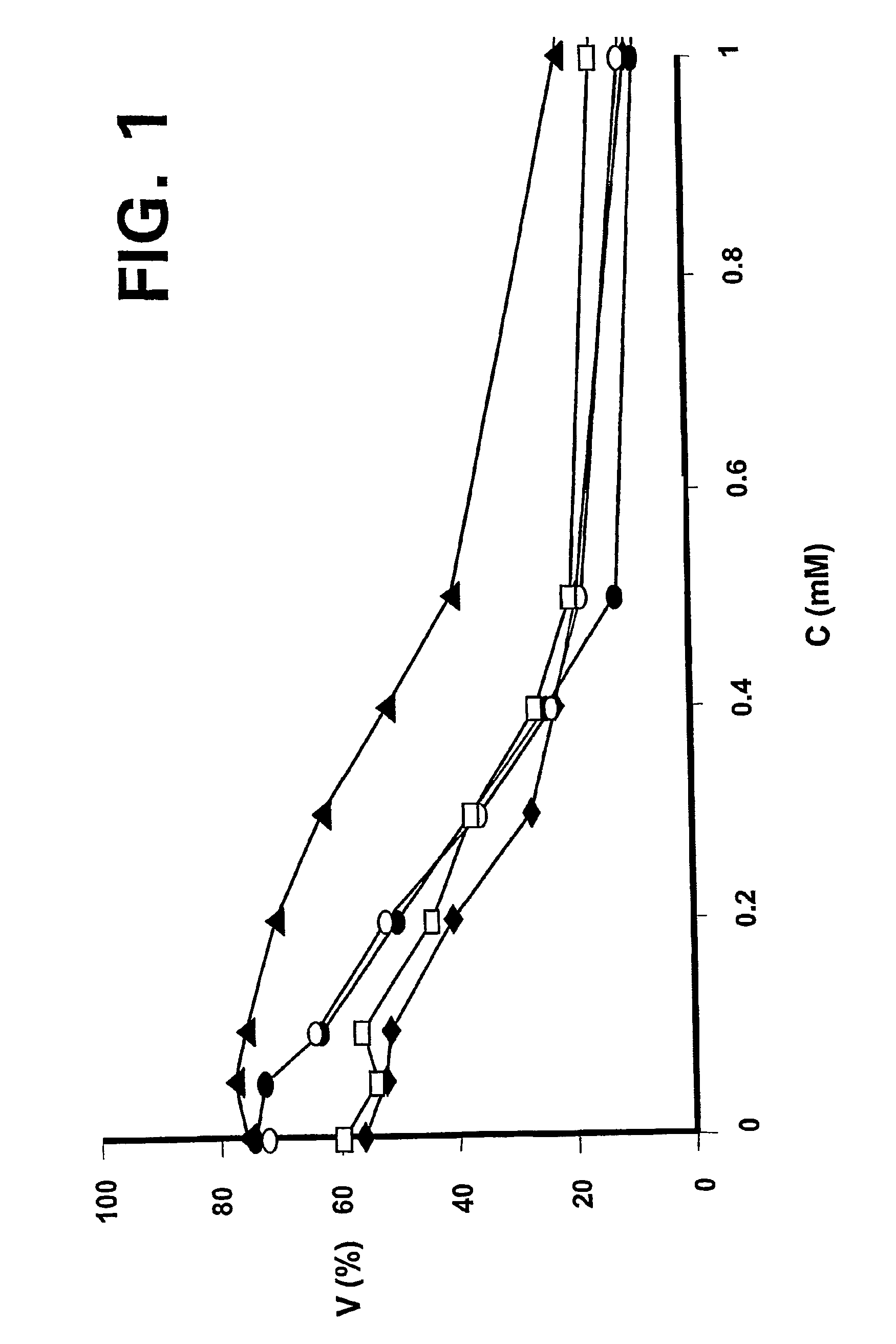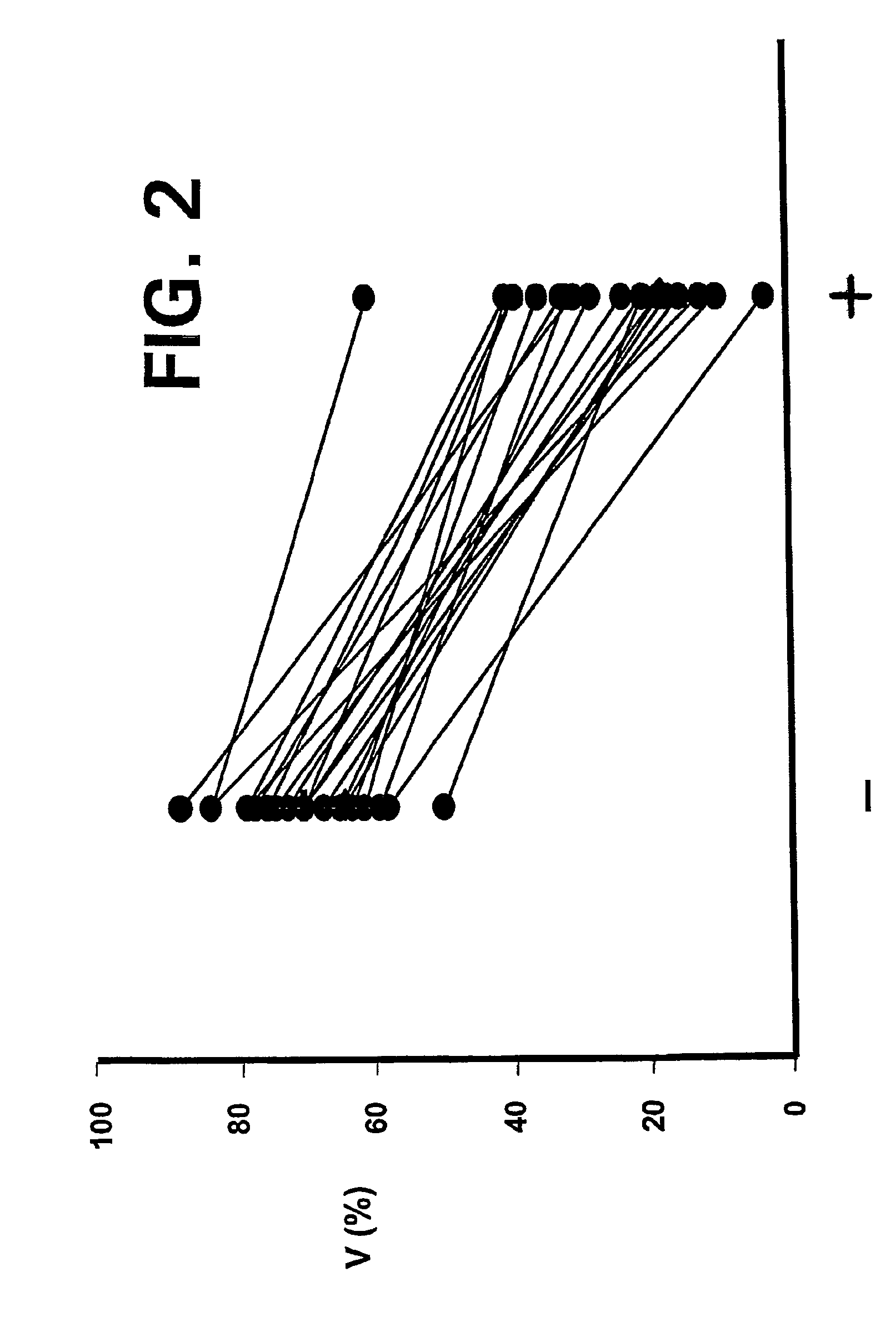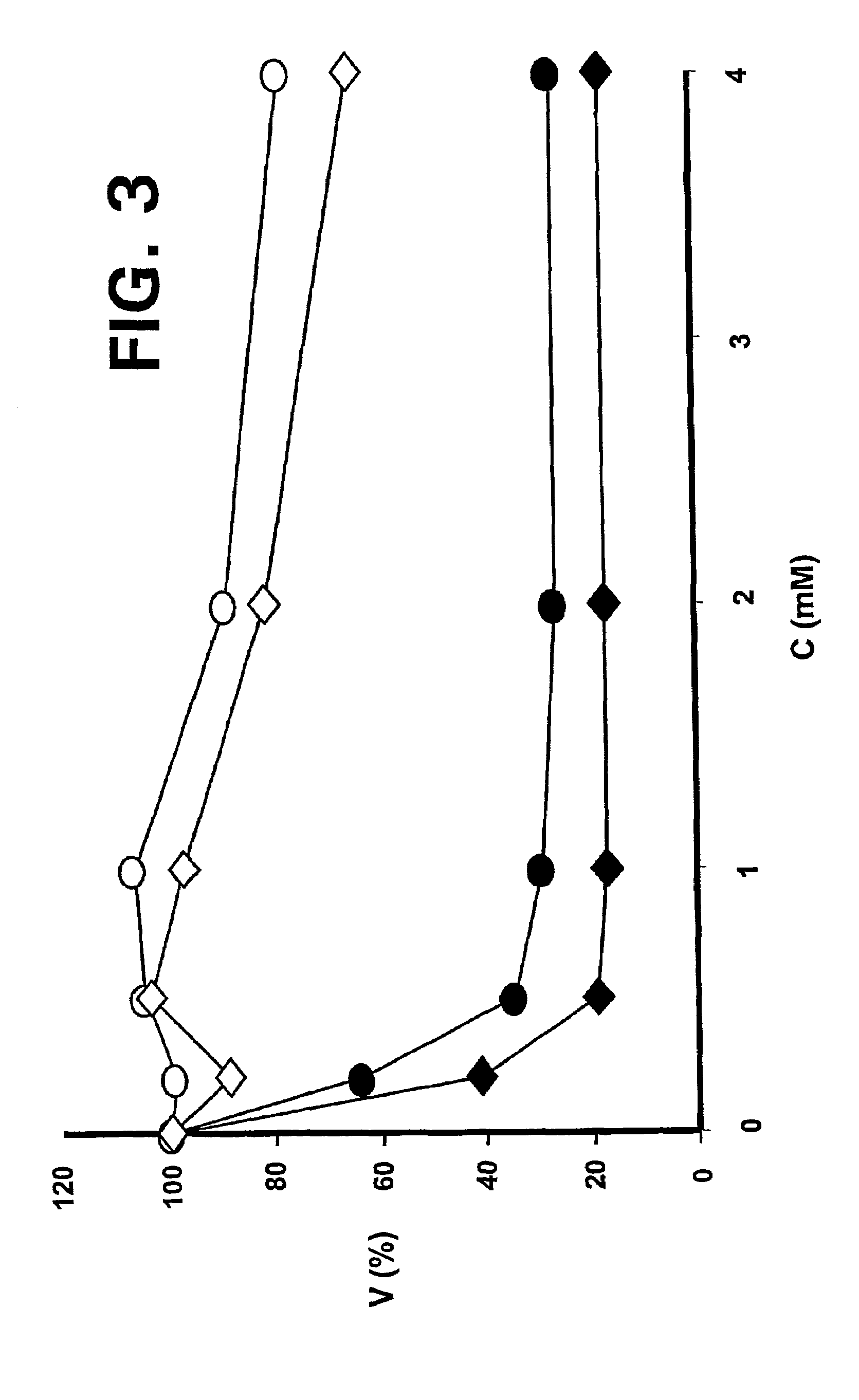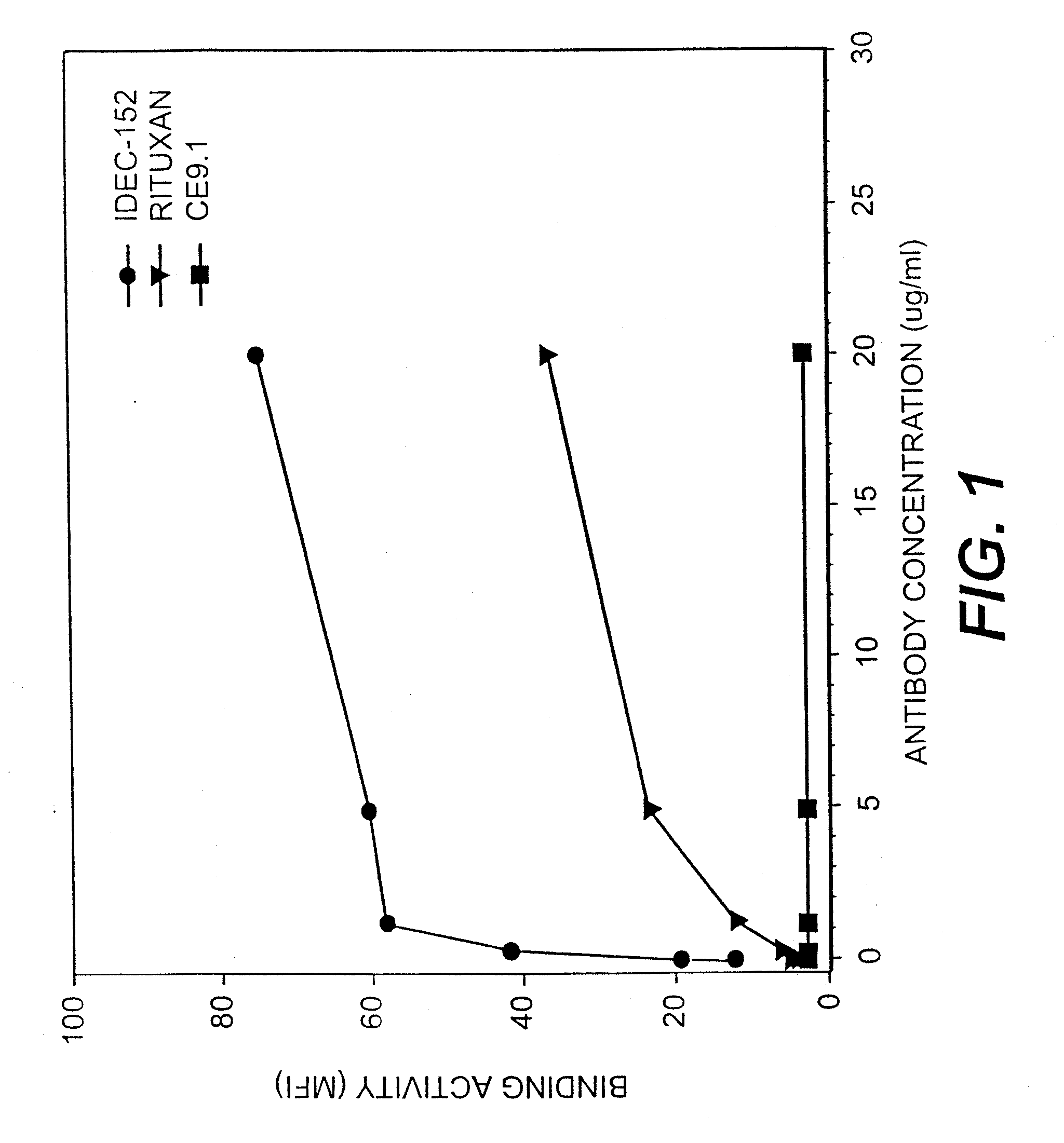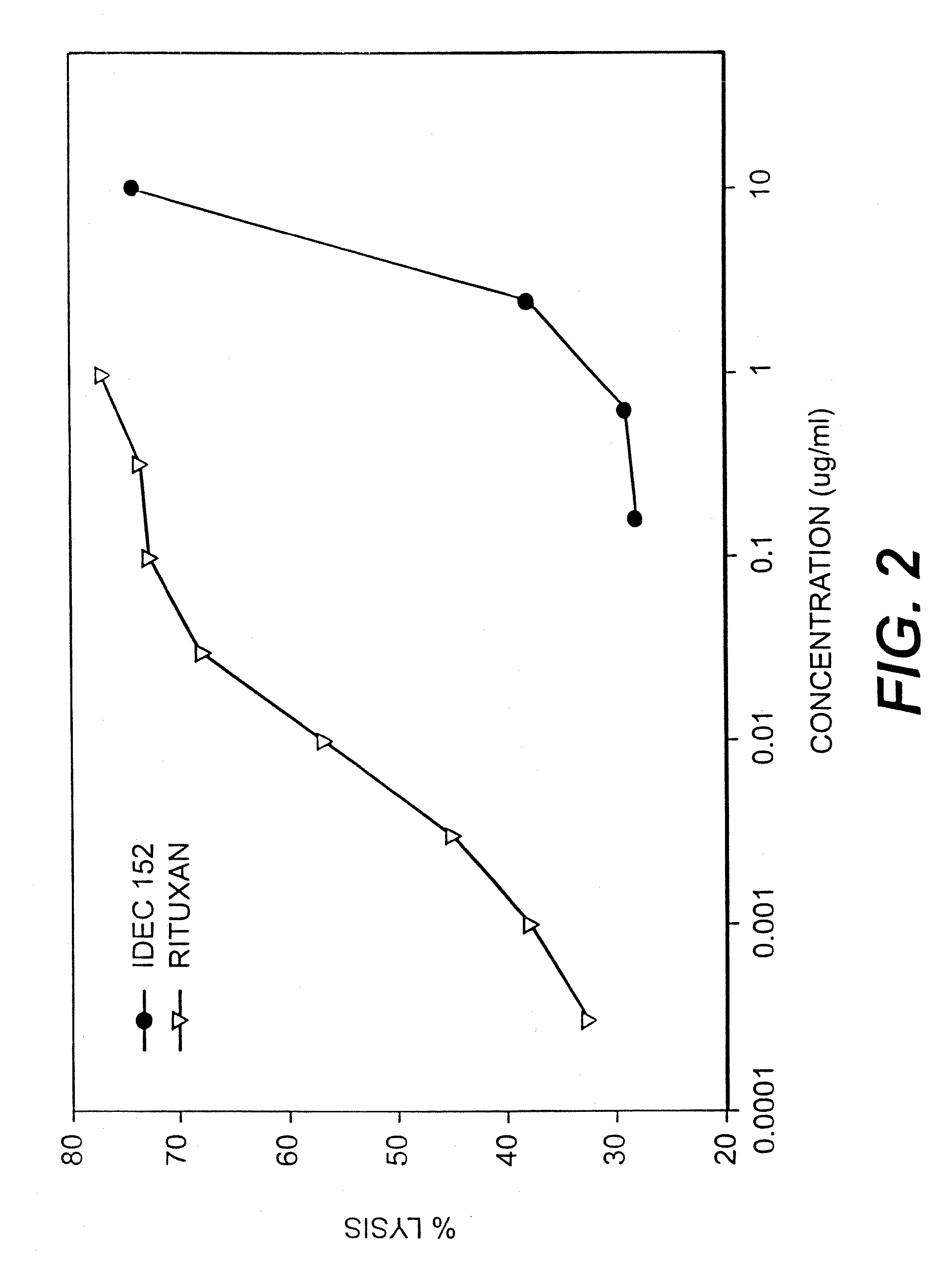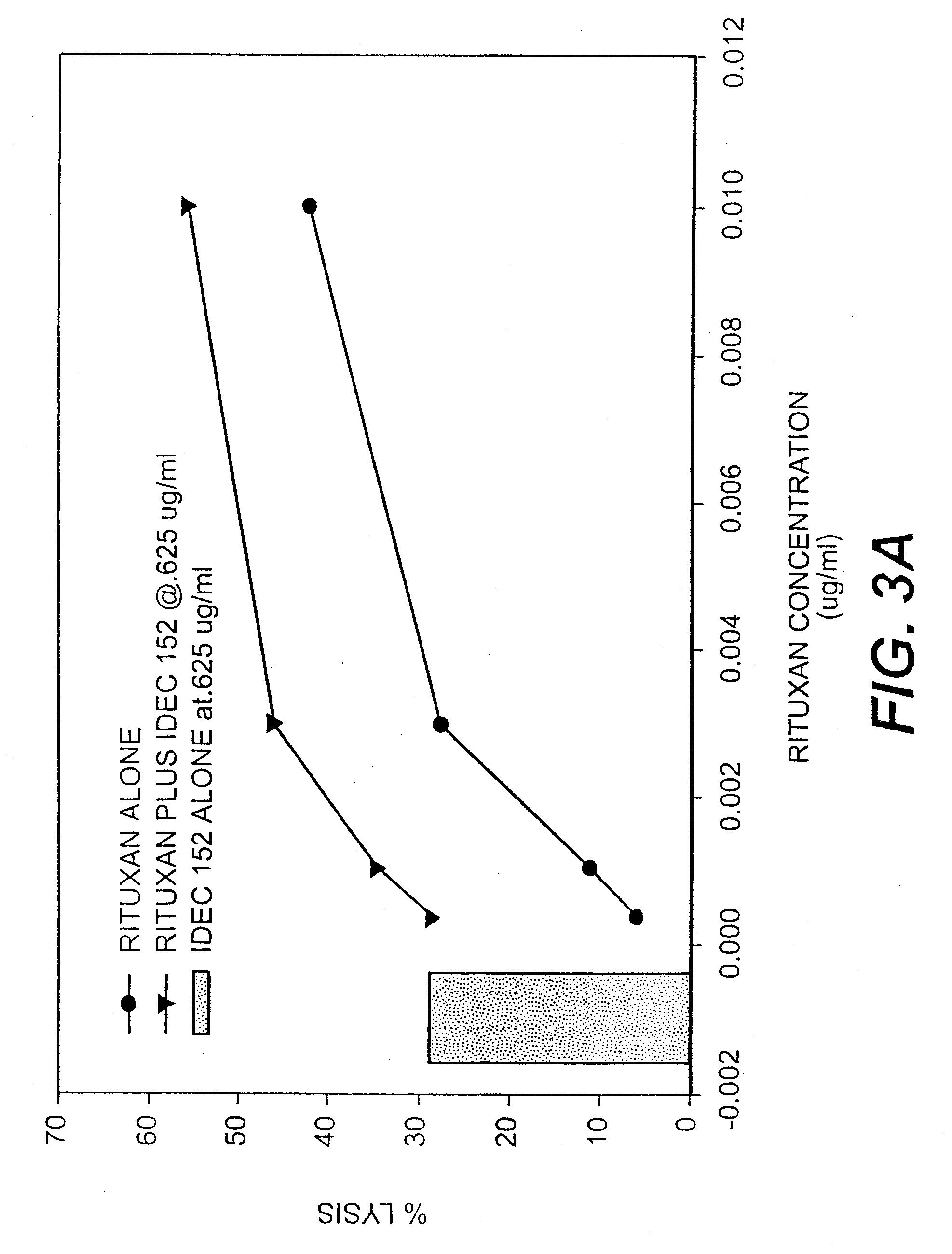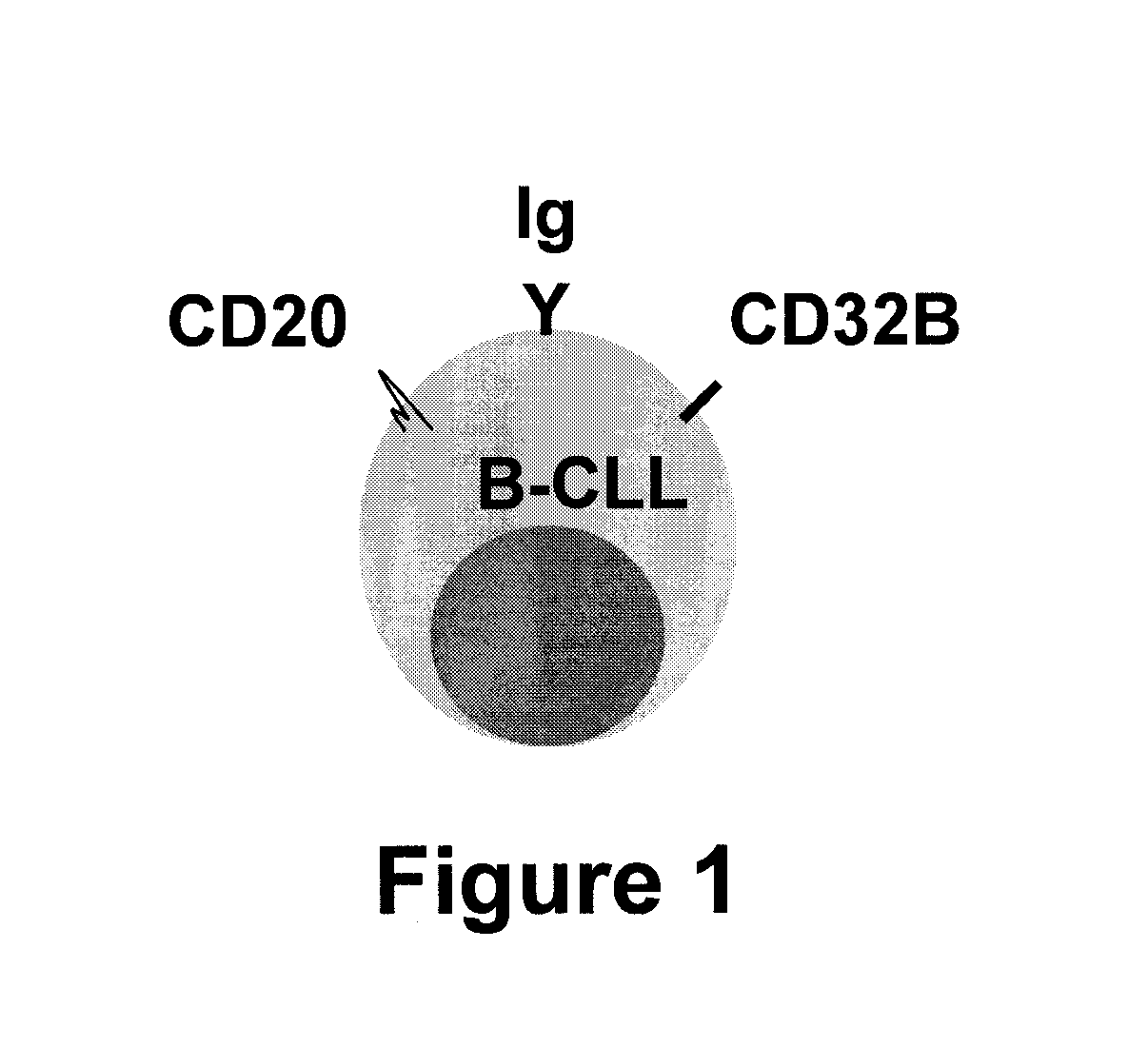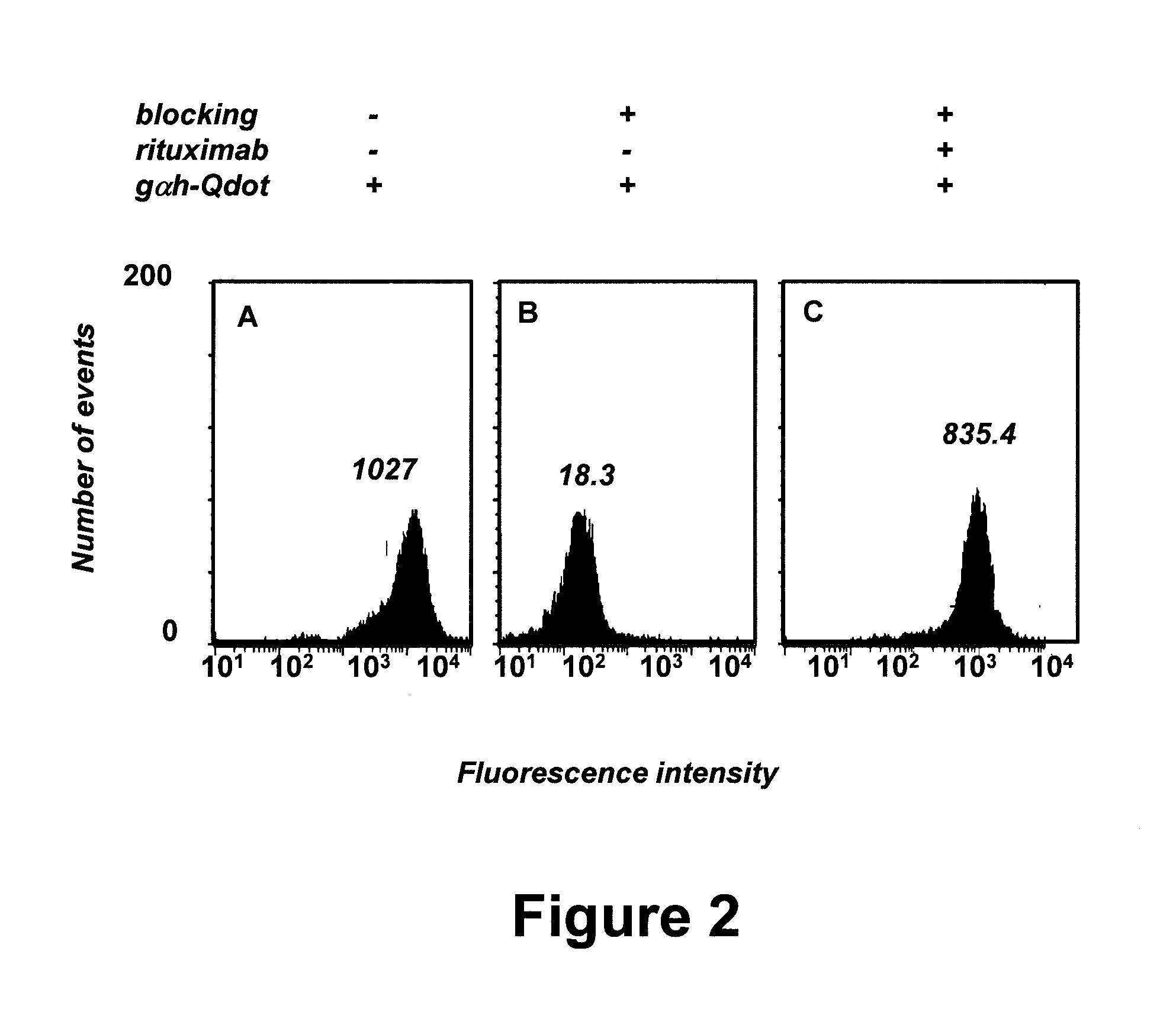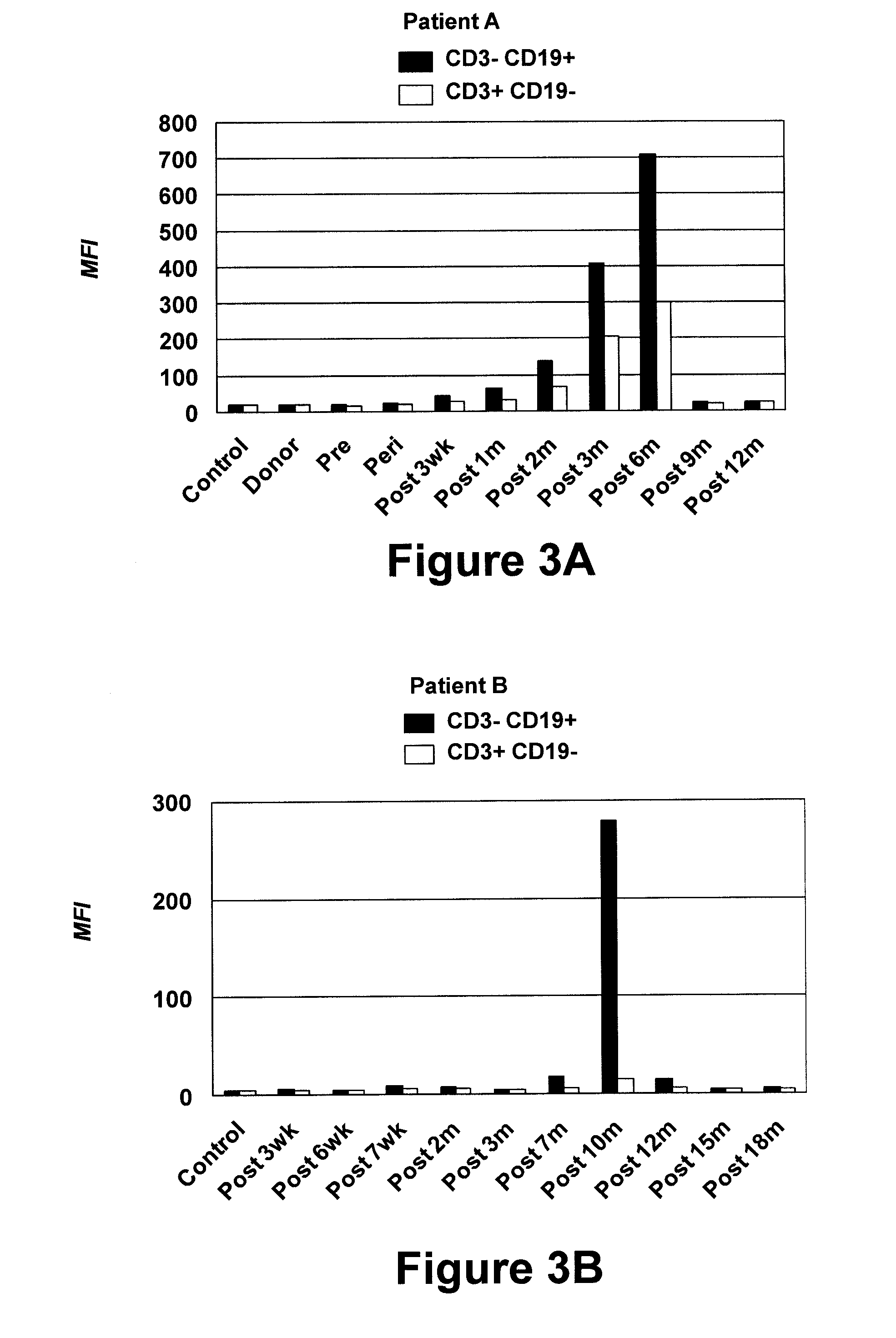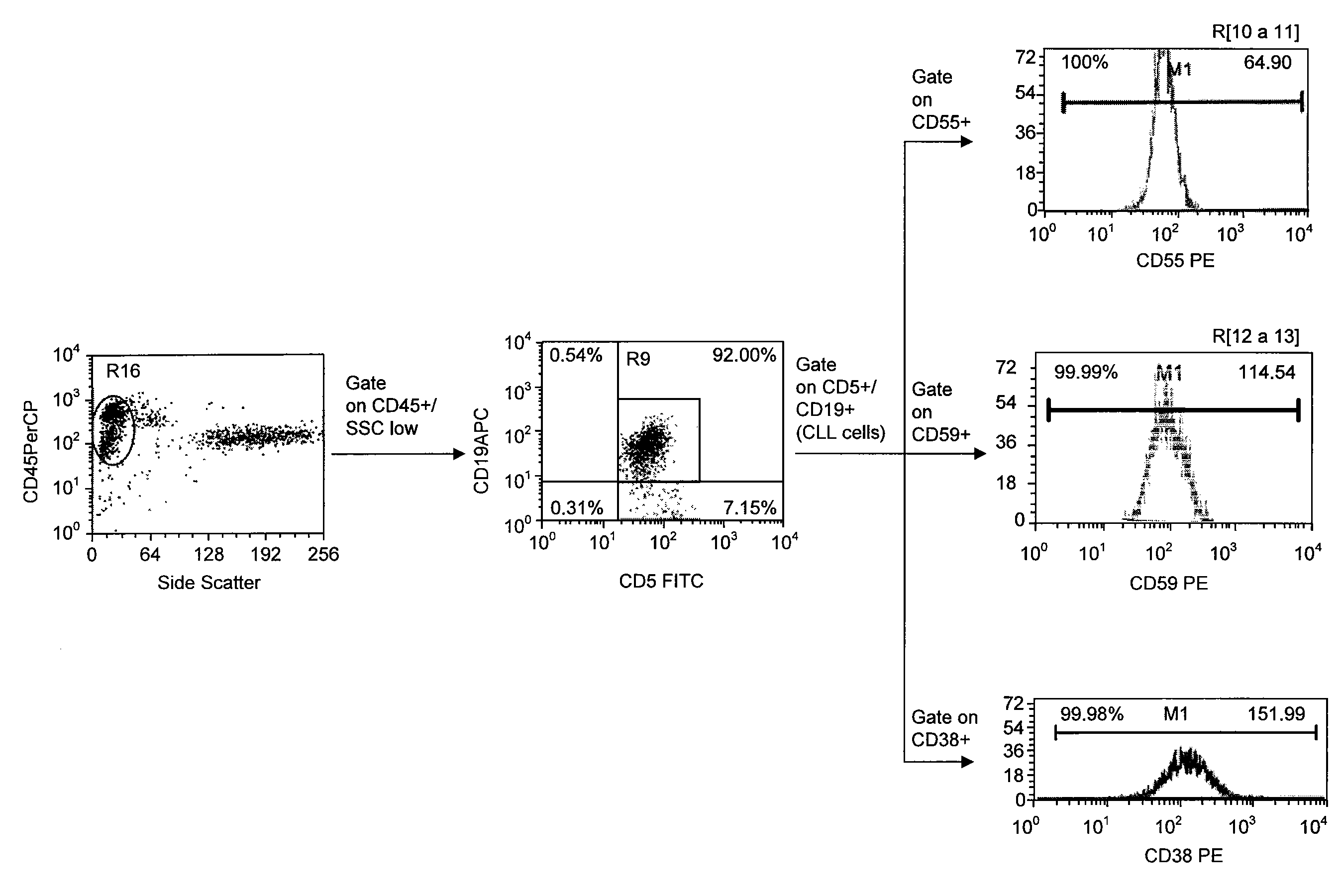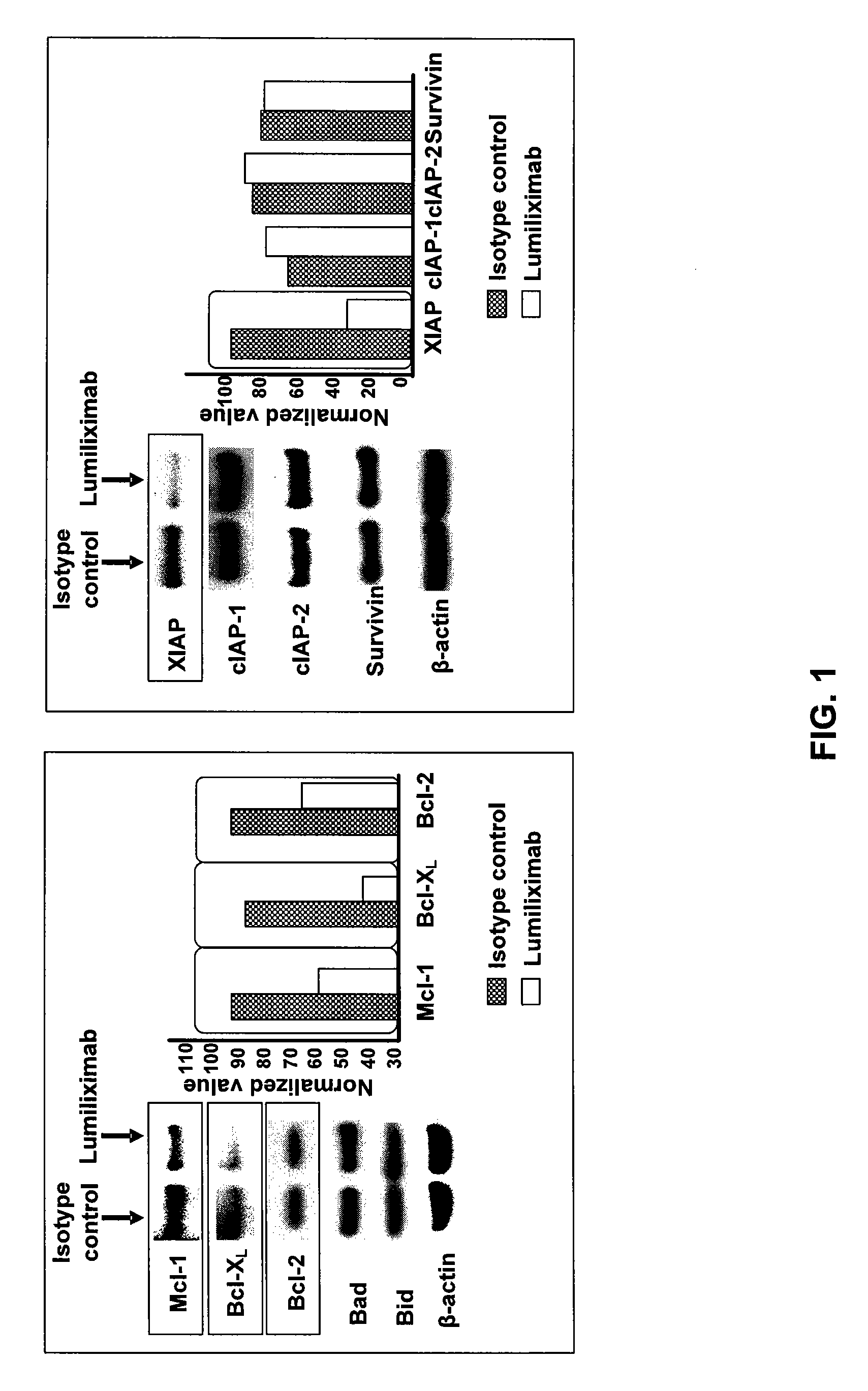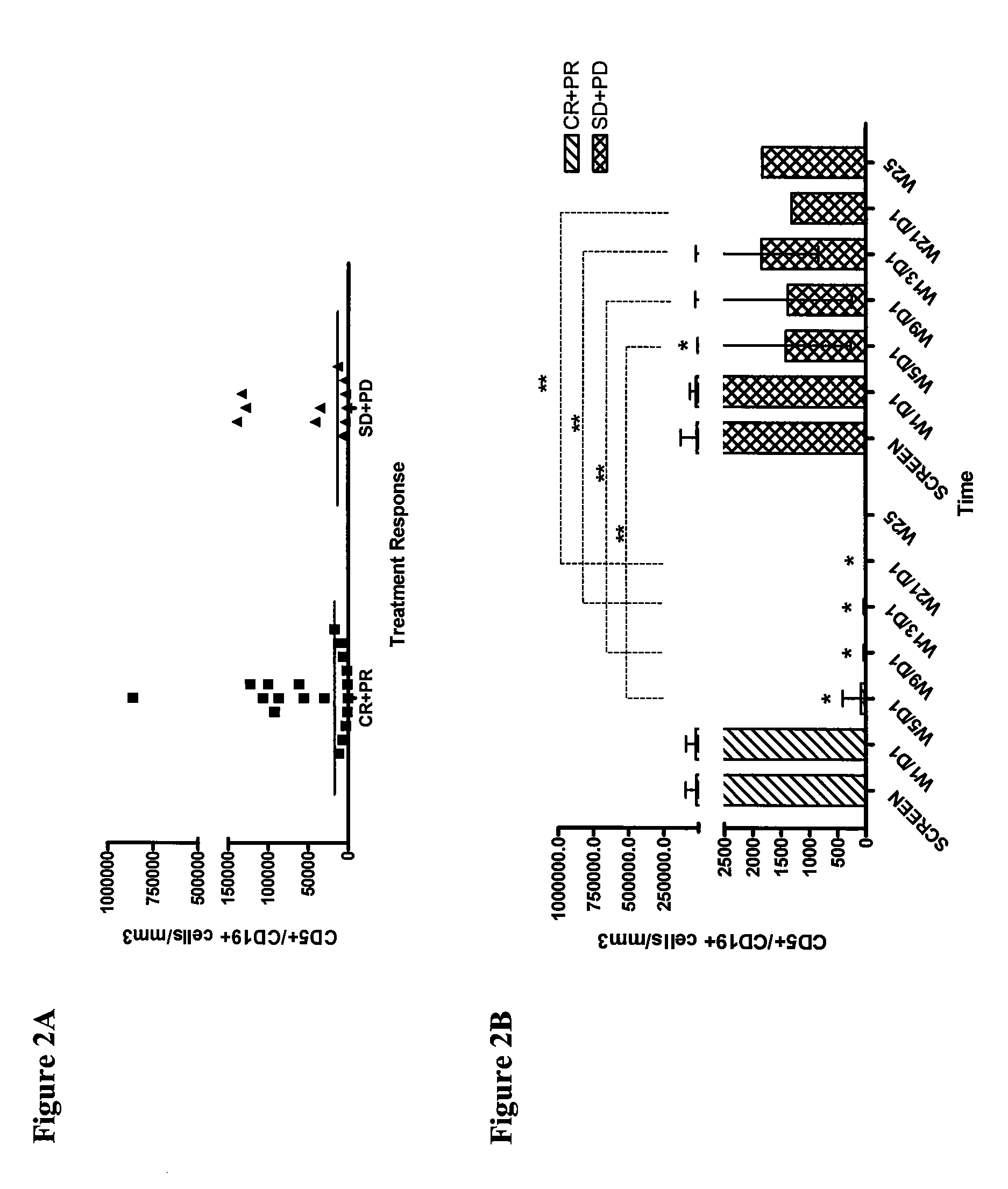Patents
Literature
Hiro is an intelligent assistant for R&D personnel, combined with Patent DNA, to facilitate innovative research.
43 results about "B-cell chronic lymphocytic leukemia" patented technology
Efficacy Topic
Property
Owner
Technical Advancement
Application Domain
Technology Topic
Technology Field Word
Patent Country/Region
Patent Type
Patent Status
Application Year
Inventor
Fcgamma-RIIB-specific antibodies and methods of use thereof
InactiveUS20050260213A1Good curative effectAvoid managementHybrid immunoglobulinsImmunoglobulins against cell receptors/antigens/surface-determinantsAntigen Binding FragmentTherapeutic effect
The present invention relates to antibodies or fragments thereof that specifically bind FcγRIIB, particularly human FcγRIIB, with greater affinity than said antibodies or fragments thereof bind FcγRIIA, particularly human FcγRIIA. The present invention also provides the use of an anti-FcγRIIB antibody or an antigen-binding fragment thereof, as a single agent therapy for the treatment, prevention, management, or amelioration of a cancer, preferably a B-cell malignancy, particularly, B-cell chronic lymphocytic leukemia or non-Hodgkin's lymphoma, an autoimmune disorder, an inflammatory disorder, an IgE-mediated allergic disorder, or one or more symptoms thereof. The invention provides methods of enhancing the therapeutic effect of therapeutic antibodies by administering the antibodies of the invention to enhance the effector function of the therapeutic antibodies. The invention also provides methods of enhancing efficacy of a vaccine composition by administering the antibodies of the invention.
Owner:MACROGENICS INC
CD38 as a prognostic indicator in B cell chronic lymphocytic leukemia
The subject invention discloses a method for determining the prognosis and probable clinical course of a subject diagnosed with B-CLL. Specifically, the invention involves comparing CD38 expression in a biological sample from the subject containing B-CLL cells to a baseline level of CD38 expression, wherein an elevated level of CD38 expression in relation to the baseline level of CD38 expression may indicate poor prognosis or aggressive course of disease in the subject. Also disclosed is a method for determining whether the Ig V genes of the B-CLL cells of a B-CLL patient are mutated, comprising comparing CD38 expression in a biological sample from the subject containing B-CLL cells to a baseline level of CD38 expression, wherein a lower level of CD38 expression in relation to the baseline level indicates IG V gene mutation.
Owner:THE FEINSTEIN INST FOR MEDICAL RES
FcGammaRIIB Specific Antibodies and Methods of Use Thereof
InactiveUS20090053218A1Good curative effectAvoid managementAntibody ingredientsImmunoglobulinsTreatment effectAutoimmune responses
The present invention relates to antibodies or fragments thereof that specifically bind FcγRIIB, particularly human FcγRIIB, with greater affinity than said antibodies or fragments thereof bind FcγRIIA, particularly human FcγRIIA. The present invention also encompasses the use of an anti-FcγRIIB antibody or an antigen-binding fragment thereof, as a single agent therapy for the treatment, prevention, management, or amelioration of a cancer, preferably a B-cell malignancy, particularly, B-cell chronic lymphocytic leukemia or non-Hodgkin's lymphoma, an autoimmune disorder, an inflammatory disorder, an IgE-mediated allergic disorder, or one or more symptoms thereof. The present invention also encompasses the use of an anti-FcγRIIB antibody or an antigen-binding fragment thereof, in combination with other cancer therapies. The present invention provides pharmaceutical compositions comprising an anti-FcγRIIB antibody or an antigen-binding fragment thereof, in amounts effective to prevent, treat, manage, or ameliorate a cancer, such as a B-cell malignancy, an autoimmune disorder, an inflammatory disorder, an IgE-mediated allergic disorder, or one or more symptoms thereof. The invention further provides methods of enhancing the therapeutic effect of therapeutic antibodies by administering the antibodies of the invention to enhance the effector function of the therapeutic antibodies. The invention also provides methods of enhancing efficacy of a vaccine composition by administering the antibodies of the invention with a vaccine composition.
Owner:MACROGENICS INC
Fc.gamma.RIIB-Specific Antibodies and Methods of Use Thereof
ActiveUS20080044429A1Good curative effectEnhanced effector functionSugar derivativesPeptide/protein ingredientsTreatment effectAntigen Binding Fragment
The present invention relates to antibodies or fragments thereof that specifically bind FcγRIIB, particularly human FcγRIIB, with greater affinity than said antibodies or fragments thereof bind FcγRIIA, particularly human FcγRIIA. The present invention also provides the use of an anti-FcγRIIB antibody or an antigen-binding fragment thereof, as a single agent therapy for the treatment, prevention, management, or amelioration of a cancer, preferably a B-cell malignancy, particularly, B-cell chronic lymphocytic leukemia or non-Hodgkin's lymphoma, an autoimmune disorder, an inflammatory disorder, an IgE-mediated allergic disorder, or one or more symptoms thereof. The invention provides methods of enhancing the therapeutic effect of therapeutic antibodies by administering the antibodies of the invention to enhance the effector function of the therapeutic antibodies. The invention also provides methods of enhancing efficacy of a vaccine composition by administering the antibodies of the invention.
Owner:MACROGENICS INC
FcGammaRIIB Specific Antibodies and Methods of Use Thereof
InactiveUS20090074771A1Strong therapeutic activityEnhancing antibody-mediated effector functionAntibody ingredientsImmunoglobulinsTolerabilityImmune complex deposition
The present invention relates to antibodies or fragments thereof that specifically bind FcγRIIB, particularly human FcγRIIB, more particularly the extracellular domain of FcγRIIB with greater affinity than said antibodies or fragments thereof bind FcγRIIA, particularly human FcγRIIA, and block the Fc binding site of FcγRIIB. The present invention also encompasses the use of an anti-FcγRIIB antibody or an antigen-binding fragment thereof, as a single agent therapy for the treatment, prevention, management, or amelioration of a cancer, preferably a B-cell malignancy, particularly, B-cell chronic lymphocytic leukemia or non-Hodgkin's lymphoma, an autoimmune disorder, an inflammatory disorder, an IgE-mediated allergic disorder, or one or more symptoms thereof. The present invention also encompasses the use of an anti-FcγRIIB antibody or an antigen-binding fragment thereof, in combination with other cancer therapies. The present invention provides pharmaceutical compositions comprising an anti-FcγRIIB antibody or an antigen-binding fragment thereof, in amounts effective to prevent, treat, manage, or ameliorate a cancer, such as a B-cell malignancy, an autoimmune disorder, an inflammatory disorder, an IgE-mediated allergic disorder, or one or more symptoms thereof. The invention further provides methods of enhancing the therapeutic effect of therapeutic antibodies by administering the antibodies of the invention to enhance the effector function of the therapeutic antibodies. The invention also provides methods of enhancing efficacy of a vaccine composition by administering the antibodies of the invention with a vaccine composition. The invention further provides methods of treating cancer and / or regulating immune complex-mediated cell activation by administering the antibodies of the invention to enhance an immune response. The invention also provides methods of breaking tolerance to an antigen by administering an antigen-antibody complex and an antibody of the invention.
Owner:MACROGENICS INC
FcγRIIB specific antibodies and methods of use thereof
The present invention relates to antibodies or fragments thereof that specifically bind FcγRIIB, particularly human FcγRIIB, with greater affinity than said antibodies or fragments thereof bind FcγRIIA, particularly human FcγRIIA. The present invention also encompasses the use of an anti-FcγRIIB antibody or an antigen-binding fragment thereof, as a single agent therapy for the treatment, prevention, management, or amelioration of a cancer, preferably a B-cell malignancy, particularly, B-cell chronic lymphocytic leukemia or non-Hodgkin's lymphoma, an autoimmune disorder, an inflammatory disorder, an IgE-mediated allergic disorder, or one or more symptoms thereof. The present invention also encompasses the use of an anti-FcγRIIB antibody or an antigen-binding fragment thereof, in combination with other cancer therapies. The present invention provides pharmaceutical compositions comprising an anti-FcγRIIB antibody or an antigen-binding fragment thereof, in amounts effective to prevent, treat, manage, or ameliorate a cancer, such as a B-cell malignancy, an autoimmune disorder, an inflammatory disorder, an IgE-mediated allergic disorder, or one or more symptoms thereof. The invention further provides methods of enhancing the therapeutic effect of therapeutic antibodies by administering the antibodies of the invention to enhance the effector function of the therapeutic antibodies. The invention also provides methods of enhancing efficacy of a vaccine composition by administering the antibodies of the invention with a vaccine composition.
Owner:MACROGENICS INC
FcγRIIB specific antibodies and methods of use thereof
InactiveUS8946387B2Immunoglobulins against cell receptors/antigens/surface-determinantsAntibody ingredientsTolerabilityImmune complex deposition
The present invention relates to antibodies or fragments thereof that specifically bind FcγRIIB, particularly human FcγRIIB, more particularly the extracellular domain of FcγRIIB with greater affinity than said antibodies or fragments thereof bind FcγRIIA, particularly human FcγRIIA, and block the Fc binding site of FcγRIIB. The present invention also encompasses the use of an anti-FcγRIIB antibody or an antigen-binding fragment thereof, as a single agent therapy for the treatment, prevention, management, or amelioration of a cancer, preferably a B-cell malignancy, particularly, B-cell chronic lymphocytic leukemia or non-Hodgkin's lymphoma, an autoimmune disorder, an inflammatory disorder, an IgE-mediated allergic disorder, or one or more symptoms thereof. The present invention also encompasses the use of an anti-FcγRIIB antibody or an antigen-binding fragment thereof, in combination with other cancer therapies. The present invention provides pharmaceutical compositions comprising an anti-FcγRIIB antibody or an antigen-binding fragment thereof, in amounts effective to prevent, treat, manage, or ameliorate a cancer, such as a B-cell malignancy, an autoimmune disorder, an inflammatory disorder, an IgE-mediated allergic disorder, or one or more symptoms thereof. The invention further provides methods of enhancing the therapeutic effect of therapeutic antibodies by administering the antibodies of the invention to enhance the effector function of the therapeutic antibodies. The invention also provides methods of enhancing efficacy of a vaccine composition by administering the antibodies of the invention with a vaccine composition. The invention further provides methods of treating cancer and / or regulating immune complex-mediated cell activation by administering the antibodies of the invention to enhance an immune response. The invention also provides methods of breaking tolerance to an antigen by administering an antigen-antibody complex and an antibody of the invention.
Owner:MACROGENICS INC
Cd20 antibodies and uses thereof
InactiveUS20110195021A1Improve stabilityImproved ADCC functionSenses disorderAntipyreticDiseaseMalignancy
CD20 is a transmembrane protein of the tetra-spanin family expressed on the surface of B-cells and has been found on B-cells from peripheral blood as well as lymphoid tissues. CD20 expression persists from the early pre-B cell stage until the plasma cell differentiation stage. Conversely, it is not found on hematopoietic stem cells, pro-B cells, differentiated plasma cells or non-lymphoid tissues. In addition to expression in normal B-cells, CD20 is expressed in B-cell derived malignancies such as non-Hodgkin's lymphoma (NHL) and B-cell chronic lymphocytic leukemia (CLL). CD20 expressing cells are known to play a role in other diseases and disorders, including inflammation. The present invention includes anti-CD20 antibodies, forms and fragments, having superior physical and functional properties; immunoconjugates, compositions, diagnostic reagents, methods for inhibiting growth, therapeutic methods, improved antibodies and cell lines; and polynucleotides, vectors and genetic constructs encoding same.
Owner:IMMUNOGEN INC
FcGammaRIIB Specific Antibodies and Methods of Use Thereof
InactiveUS20090076251A1Strong therapeutic activityEnhancing antibody-mediated effector functionImmunoglobulins against cell receptors/antigens/surface-determinantsAntibody ingredientsTolerabilityAutoimmune responses
The present invention relates to antibodies or fragments thereof that specifically bind FcγRIIB, particularly human FcγRIIB, more particularly the extracellular domain of FcγRIIB with greater affinity than said antibodies or fragments thereof bind FcγRIIA, particularly human FcγRIIA, and block the Fc binding site of FcγRIIB. The present invention also encompasses the use of an anti-FcγRIIB antibody or an antigen-binding fragment thereof, as a single agent therapy for the treatment, prevention, management, or amelioration of a cancer, preferably a B-cell malignancy, particularly, B-cell chronic lymphocytic leukemia or non-Hodgkin's lymphoma, an autoimmune disorder, an inflammatory disorder, an IgE-mediated allergic disorder, or one or more symptoms thereof. The present invention also encompasses the use of an anti-FcγRIIB antibody or an antigen-binding fragment thereof, in combination with other cancer therapies. The present invention provides pharmaceutical compositions comprising an anti-FcγRIIB antibody or an antigen-binding fragment thereof, in amounts effective to prevent, treat, manage, or ameliorate a cancer, such as a B-cell malignancy, an autoimmune disorder, an inflammatory disorder, an IgE-mediated allergic disorder, or one or more symptoms thereof. The invention further provides methods of enhancing the therapeutic effect of therapeutic antibodies by administering the antibodies of the invention to enhance the effector function of the therapeutic antibodies. The invention also provides methods of enhancing efficacy of a vaccine composition by administering the antibodies of the invention with a vaccine composition. The invention further provides methods of treating cancer and / or regulating immune complex-mediated cell activation by administering the antibodies of the invention to enhance an immune response. The invention also provides methods of breaking tolerance to an antigen by administering an antigen-antibody complex and an antibody of the invention.
Owner:MACROGENICS INC
FcGammaRIIB Specific Antibodies and Methods of Use Thereof
InactiveUS20090202537A1Balanced functionImmune responseSenses disorderNervous disorderFc(alpha) receptorImmunologic disorders
The present invention relates to humanized FcγRIIB antibodies, fragments, and variants thereof that bind human FcγRIIB with a greater affinity than said antibody binds FcγRIIA. The invention encompasses the use of the humanized antibodies of the invention for the treatment of any disease related to loss of balance of Fc receptor mediated signaling, such as cancer (preferably a B-cell malignancy, particularly, B-cell chronic lymphocytic leukemia or non-Hodgkin's lymphoma), autoimmune disease, inflammatory disease or IgE-mediated allergic disorder. The present invention also encompasses the use of a humanized FcγRIIB antibody or an antigen-binding fragment thereof, in combination with other cancer therapies. The invention provides methods of enhancing the therapeutic effect of therapeutic antibodies by administering the humanized antibodies of the invention to enhance the effector function of the therapeutic antibodies. The invention also provides methods of enhancing the efficacy of a vaccine composition by administering the humanized antibodies of the invention with a vaccine composition.
Owner:MACROGENICS INC
Compositions and Methods for Differential Diagnosis of Chronic Lymphocytic Leukemia
InactiveUS20080280297A1Microbiological testing/measurementImmunoglobulinsReference genesLymphocytic cell
The invention provides compositions and methods for determining a prognosis of a B cell chronic lymphocytic leukemia (CLL) in a subject based on the level of expression of at least one marker gene. Marker genes provided by the invention are SEPTlO, KIAA0799, Hs.23133, and ADAM29. The marker genes can be used to differentially diagnose CLL in a subject based on relative gene expression levels in the subject compared to reference gene expression levels established from a clinically characterized population of patients. The invention also provides diagnostic reagents and compositions and kits based on the marker genes.
Owner:THE TRUSTEES OF COLUMBIA UNIV IN THE CITY OF NEW YORK
Use of CD23 antagonists for the treatment of neoplastic disorders
InactiveUS20060171950A1Reduces and inhibits and controls growth of neoplasticEfficient administrationImmunoglobulins against cell receptors/antigens/surface-determinantsAntibody ingredientsDiseaseCD23
Methods and kits for the treatment of neoplastic disorders comprising the use of a CD23 antagonist are provided. The CD23 antagonist may be used alone or in combination with chemotherapeutic agents. In particularly preferred embodiments the CD23 antagonists may be used to treat B cell chronic lymphocytic leukemia (B-CLL).
Owner:BIOGEN IDEC MA INC
Use of CD23 Antagonists for the Treatment of Neoplastic Disorders
InactiveUS20060286101A1Efficient administrationImprove efficiencyImmunoglobulins against cell receptors/antigens/surface-determinantsAntibody ingredientsDiseaseCD23
Methods and kits for the treatment of neoplastic disorders comprising the use of a CD23 antagonist are provided. The CD23 antagonist may be used alone or in combination with chemotherapeutic agents. In particularly preferred embodiments the CD23 antagonists may be used to treat B cell chronic lymphocytic leukemia (B-CLL).
Owner:BIOGEN MA INC
Use of CD23 Antagonists for the Treatment of Neoplastic Disorders
InactiveUS20060286100A1Efficient administrationImprove efficiencyImmunoglobulins against cell receptors/antigens/surface-determinantsAntibody ingredientsDiseaseCD23
Methods and kits for the treatment of neoplastic disorders comprising the use of a CD23 antagonist are provided. The CD23 antagonist may be used alone or in combination with chemotherapeutic agents. In particularly preferred embodiments the CD23 antagonists may be used to treat B cell chronic lymphocytic leukemia (B-CLL).
Owner:BIOGEN MA INC
Non-Human Animal Models for B-cell Non-Hodgkin's Lymphoma and Uses Thereof
InactiveUS20080070256A1Compounds screening/testingAnimal cellsBiologyB-cell chronic lymphocytic leukemia
Disclosed are non-human animal models, and preferably, rodent models, and more preferably, mouse models, of B-cell Non-Hodgkin's Lymphoma (NHL). In particular, the present invention provides animal models of B cell NHL including, B cell chronic lymphocytic leukemia / lymphoma (B-CLL), Burkitt's lymphoma (BL), Follicular-like lymphoma (FLL) and Diffuse large B-cell lymphoma (DLBCL), as well as various methods for producing these non-human animal models. These animal models, as well as cell lines produced from or derived from these models, are useful tools for a variety of methods, including, but not limited to, preclinical testing of drug candidates, and particularly drug candidates that are specific for human proteins, and any research, development, pharmaceutical, or clinical purpose, including but not limited to, the identification, development, and / or testing of drugs (therapeutics, prophylactics, etc.), targets, markers, and / or research tools for use in the diagnosis of, study of, or treatment of any Non-Hodgkin's Lymphoma, such as those described herein, or for any related condition.
Owner:NAT JEWISH MEDICAL & RES CENT
Novel therapeutic use of riboside of 5-aminoimidazole-4-carboxamide (acadesine)
InactiveUS20050233987A1Improve toleranceImprove therapeutic potentialBiocideSugar derivativesDiseaseApoptosis
Owner:ADVANCELL ADVANCED IN VITRO CELL TECH
Methods and compositions for diagnosis and treatment of b cell chronic lymphocytic leukemia
Provided are isolated and purified preparations of a combination of a light chain antibody gene and a heavy chain antibody gene, where the light chain and heavy chain antibody genes are the same among more than one patient with B cell chronic lymphocytic leukemia (B-CLL). Vectors comprising those genes and cells comprising those vectors are also provided, as are isolated and purified antibodies encoded by the antibody genes. Anti-idiotype antibodies, peptides, and aptamers that bind to the antigen-binding region of an antibody encoded by the antibody genes are additionally provided, as are multimeric molecules comprising multiple binding sites that bind to the antigen-binding region of an antibody encoded by the antibody genes. Methods of determining whether a patient with B cell chronic lymphocytic leukemia (B-CLL) has a form of B-CLL that is susceptible to treatment directed to eliminating idiotype specific B cell receptor-bearing B-CLL cells are also provided, as are methods of following the progression of treatment of B-CLL in the patient. Additionally, methods of treating a patient having B-CLL are provided, as are methods of identifying a therapeutic agent for B-CLL.
Owner:THE FEINSTEIN INST FOR MEDICAL RES
Methods and kits for diagnosing and treating b-cell chronic lymphocytic leukemia
InactiveUS20060281697A1Poor prognosisEasy to detectPeptide/protein ingredientsGenetic material ingredientsSmall peptideNucleotide
The present invention relates to methods and kits for detecting several polynucleotide sequence found to be indicative of a poor prognosis of B-CLL. All the polynucleotides are transcribed from a region on human chromosome 12p21-22. Most of the polynucleotides do not encode larger polypeptides, but may encode small peptides, they may function as RNAs. Four polynucleotides encode a novel protein, which in one preferred embodiment can be used as a cytokine, preferably as an interleulkin. Furthermore the invention relates to methods and compositions for treating B-CLL in particular poor prognosis B-CLL.
Owner:CLLUONE DIAGNOSTICS
Method for treating cancer
A method for the treatment of cancer by administering a therapeutically effective amount of a cyclin-dependent kinase (CDK) inhibitor with a therapeutically effective amount of a B cell chronic lymphocytic leukemia / lymphoma 2 inhibitor (“B Cell CLL / Lymphoma 2”, or “BCL-2”). Administration of the CDK inhibitor and BCL-2 inhibitor can be simultaneous, successive or separate.
Owner:MERCK SHARP & DOHME LLC
Pharmaceutical compositions capable of inducing apoptosis in tumour cells, useful for diagnosis and treatment of B-chronic lymphocytic leukaemia
The present invention is related to the branch of immunology and particularly with the generation of pharmaceutical compositions comprising a humanized monoclonal antibody recognizing the leukocyte differentiation antigen CD6. Accordingly with that statement, the purpose of this invention is to provide pharmaceutical compositions comprising a humanized anti-CD6 monoclonal antibody for the diagnosis and treatment of Lymphoproliferative Syndromes and particularly the B-Cell Chronic Lymphocytic Leukemia. The essence of the invention consist in the application of a humanized Monoclonal Antibody that recognizes the CD6 antigen, the generation of pharmaceutical compositions comprising that antibody being able to induce apoptosis of malignant cells from B-Cell Chronic Lymphocytic Leukemia patients, reaching a clinical and a histological antitumor efficacy. The field of application of the present invention extends to the Oncology.
Owner:CENT DE INMUNOLOGIA MOLECULAR CENT DE INMUNOLO
Pharmaceutical compositions capable of inducing apoptosis in tumour cells, useful for diagnosis and treatment of b-chronic lymphocytic leukaemia
The present invention is related to the branch of immunology and particularly with the generation of pharmaceutical compositions comprising a humanized monoclonal antibody recognizing the leukocyte differentiation antigen CD6. Accordingly with that statement, the purpose of this invention is to provide pharmaceutical compositions comprising a humanized anti-CD6 monoclonal antibody for the diagnosis and treatment of Lymphoproliferative Syndromes and particularly the B-Cell Chronic Lymphocytic Leukemia. The essence of the invention consist in the application of a humanized Monoclonal Antibody that recognizes the CD6 antigen, the generation of pharmaceutical compositions comprising that antibody being able to induce apoptosis of malignant cells from B-Cell Chronic Lymphocytic Leukemia patients, reaching a clinical and a histological antitumor efficacy. The field of application of the present invention extends to the Oncology.
Owner:CENT DE INMUNOLOGIA MOLECULAR CENT DE INMUNOLO
Method, reagents, and kits for detecting minimal residual disease
The invention relates to the field of minimal residual disease (MRD) diagnostics, which is progressively more applied for the evaluation of treatment effectiveness in patients with a hematological malignancy, such as B-cell precursor acute lymphoblastic leukemia (BCP-ALL), B-cell chronic lymphocytic leukemia (B-CLL), and multiple myeloma (MM). Provided are unique reagent compositions with carefully selected and thoroughly tested combinations of antibodies, for >=8 color flow cytometric stainings as well as for 10-color and 12-color flow cytometric stainings, which can reach sensitivities of at least 10<-4>, even down to 10<-5>. Also provided are diagnostic kits and methods for detecting MRD.
Owner:ERASMUS UNIV MEDICAL CENT ROTTERDAM ERASMUS MC
WT1 mutations for prognosis of myeloproliferative disorders
InactiveUS20160201141A1Poor outcomeShorten the construction periodMicrobiological testing/measurementMyeloproliferative DisordersLeukemia
The invention provides methods for determining the prognosis of a patient diagnosed with a leukemia, including B-cell chronic lymphocytic leukemia, by measuring mutations of the WT1 gene in a biological sample. The invention also relates to the diagnosis of leukemia, including B-cell chronic lymphocytic leukemia.
Owner:QUEST DIAGNOSTICS INVESTMENTS INC
B cell surface reactive antibodies
ActiveUS8877199B2Immunoglobulins against cell receptors/antigens/surface-determinantsRadioactive preparation carriersDiseaseB cell
The invention relates to antibodies that are reactive to the cell surface of CD19+ B cells, including B-cell chronic lymphocytic leukemia (B-CLL) cells, and compositions and methods for using such antibodies, including in the diagnosis and treatment of disorders associated with CD19+ B cells, such as B-CLL.
Owner:UNITED STATES OF AMERICA
Use of CD 23 antagonists for treatment of neoplastic disorders
The present invention provides methods and kits for treating neoplastic diseases, including the use of CD23 antagonists. The CD23 antagonists can be used alone or in combination with chemotherapeutic agents. In a particularly preferred embodiment, the CD23 antagonist may be used in the treatment of B-cell chronic lymphocytic leukemia (B-CLL).
Owner:IDEC PHARM CORP
Therapeutic use of riboside of 5-aminoimidazole-4-carboxamide (acadesine)
The present disclosure relates to a method of treatment of a human patient suffering from a B-cell lymphoproliferative disorders such as B-cell chronic lymphocytic leukemia (B-CLL), splenic marginal zone lymphoma (SMZL), mantle cell lymphoma (MCL), follicular lymphoma (FL), lymphoplasmacytic lymphoma (LPL), and Waldenström syndrome (WS), by the administration of a therapeutically effective amount of 5-aminoimidazole-4-carboxamide riboside (acadesine) or its precursors (eg. its mono-, di- and tri-5′-phosphates). This makes acadesine and its bioprecursors (eg. its mono-, di- and tri-5′-phosphates) useful as therapeutic agents for B-cell lymphoproliferative disorders in humans. The surprising feature that T cells are virtually not affected means that the side effect (immunosuppression) is minor, what represents a therapeutical advantage of acadesine over cladribine, fludarabine and other nucleosides known in the art.
Owner:ADVANCELL ADVANCED IN VITRO CELL TECH
Use of cd23 antagonists for the treatment of neoplastic disorders
InactiveUS20080171056A1Efficient administrationImprove efficiencyImmunoglobulins against cell receptors/antigens/surface-determinantsAntibody ingredientsDiseaseB cell
Methods and kits for the treatment of neoplastic disorders comprising the use of a CD23 antagonist are provided. The CD23 antagonist may be used alone or in combination with chemotherapeutic agents. In particularly preferred embodiments the CD23 antagonists may be used to treat B cell chronic lymphocytic leukemia (B-CLL).
Owner:BIOGEN MA INC
B cell surface reactive antibodies
ActiveUS20120121504A1Improve the level ofRadioactive preparation carriersImmunoglobulins against cell receptors/antigens/surface-determinantsB cellB-cell chronic lymphocytic leukemia
The invention relates to antibodies that are reactive to the cell surface of CD19+ B cells, including B-cell chronic lymphocytic leukemia (B-CLL) cells, and compositions and methods for using such antibodies, including in the diagnosis and treatment of disorders associated with CD19+ B cells, such as B-CLL.
Owner:UNITED STATES OF AMERICA
Use of CD23 Antibodies to Treat Malignancies in Patients with Poor Prognosis
InactiveUS20090252725A1Induce apoptosisTherapeutically effectiveAntibody ingredientsTissue cultureMammalZAP70
The invention relates to methods of treating B-cell chronic lymphocytic leukemia, and other CD23+ malignancies, in patients with poor prognostic markers. The method comprises administration of an CD23 antibody, including for example, lumiliximab to a mammal that over expresses a poor prognostic marker. The method can also comprise administration of lumiliximab in combination with fludarabine, cyclophosphamide and rituximab. Patients with poor prognostic markers include, for example, patients that overexpress ZAP70, CD38, β2-microglobulin and / or soluble CD23.
Owner:BIOGEN IDEC MA INC
Tyrosine kinase inhibitor for nitrogen hetero-aromatic ring and derivatives thereof
InactiveCN103664884ABTK kinase inhibition is goodGood choiceOrganic active ingredientsOrganic chemistryDiseaseImmunologic disorders
The invention belongs to the technical field of medicines, and particularly relates to a tyrosine kinase inhibitor for nitrogen hetero-aromatic ring and derivatives thereof shown in the general formula (I), and pharmaceutically acceptable salts or stereoisomer thereof, wherein R1, R2, R3, L1, L2, a, b, c, d, e, p, q, A and B are defined in the specification. The invention further relates to a preparation method for the compounds, and pharmaceutical preparations containing the same, and the compounds play an important role in preparing drugs for preventing and / or treating blood cancers (such as B cell chronic lymphocytic leukemia, non-hodgkin lymphomas and the like) related to B cells, and autoimmune diseases (such as thrumatoid arthritis, systemic lupus erythematosus and the like).
Owner:KBP BIOSCIENCES CO LTD
Features
- R&D
- Intellectual Property
- Life Sciences
- Materials
- Tech Scout
Why Patsnap Eureka
- Unparalleled Data Quality
- Higher Quality Content
- 60% Fewer Hallucinations
Social media
Patsnap Eureka Blog
Learn More Browse by: Latest US Patents, China's latest patents, Technical Efficacy Thesaurus, Application Domain, Technology Topic, Popular Technical Reports.
© 2025 PatSnap. All rights reserved.Legal|Privacy policy|Modern Slavery Act Transparency Statement|Sitemap|About US| Contact US: help@patsnap.com
